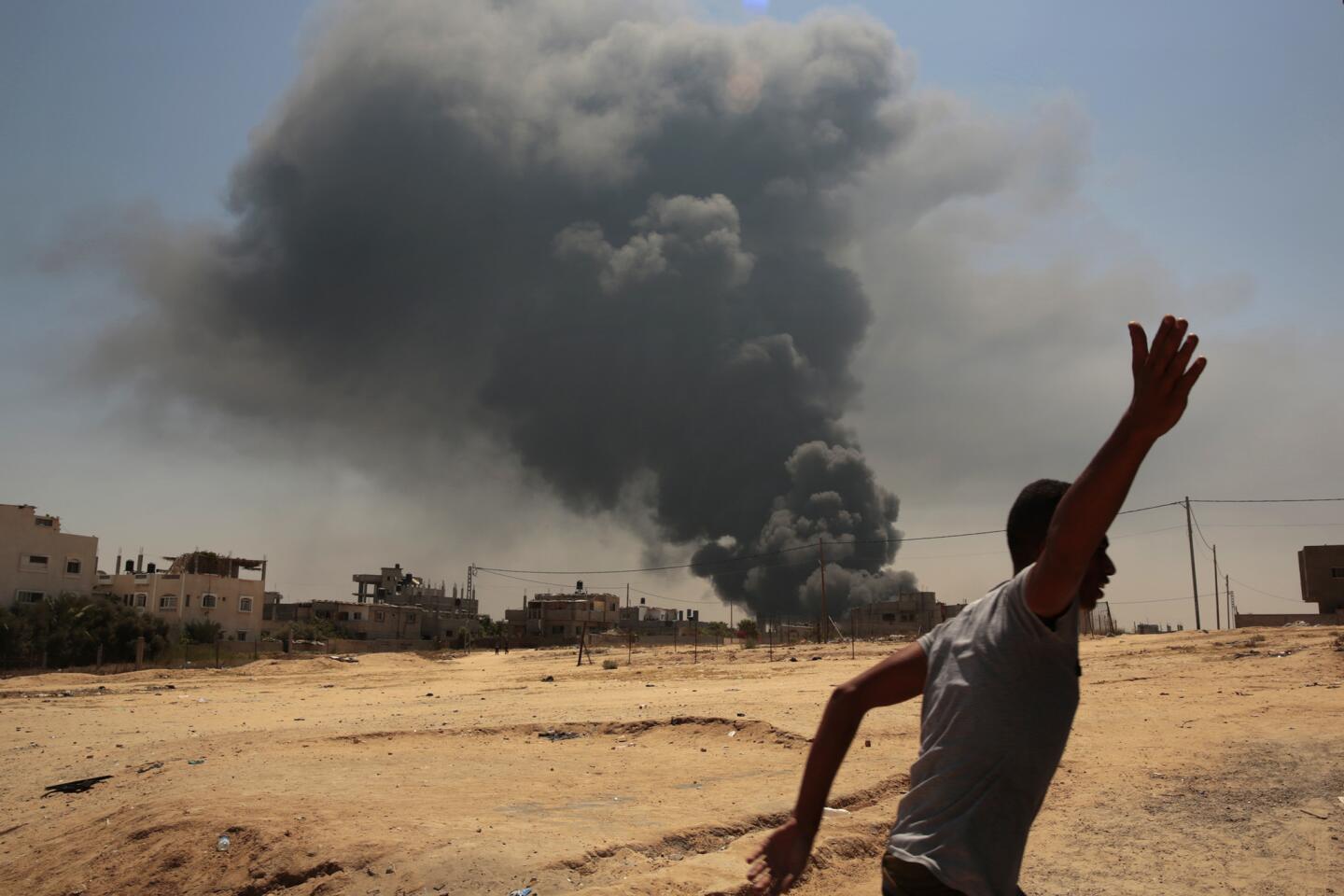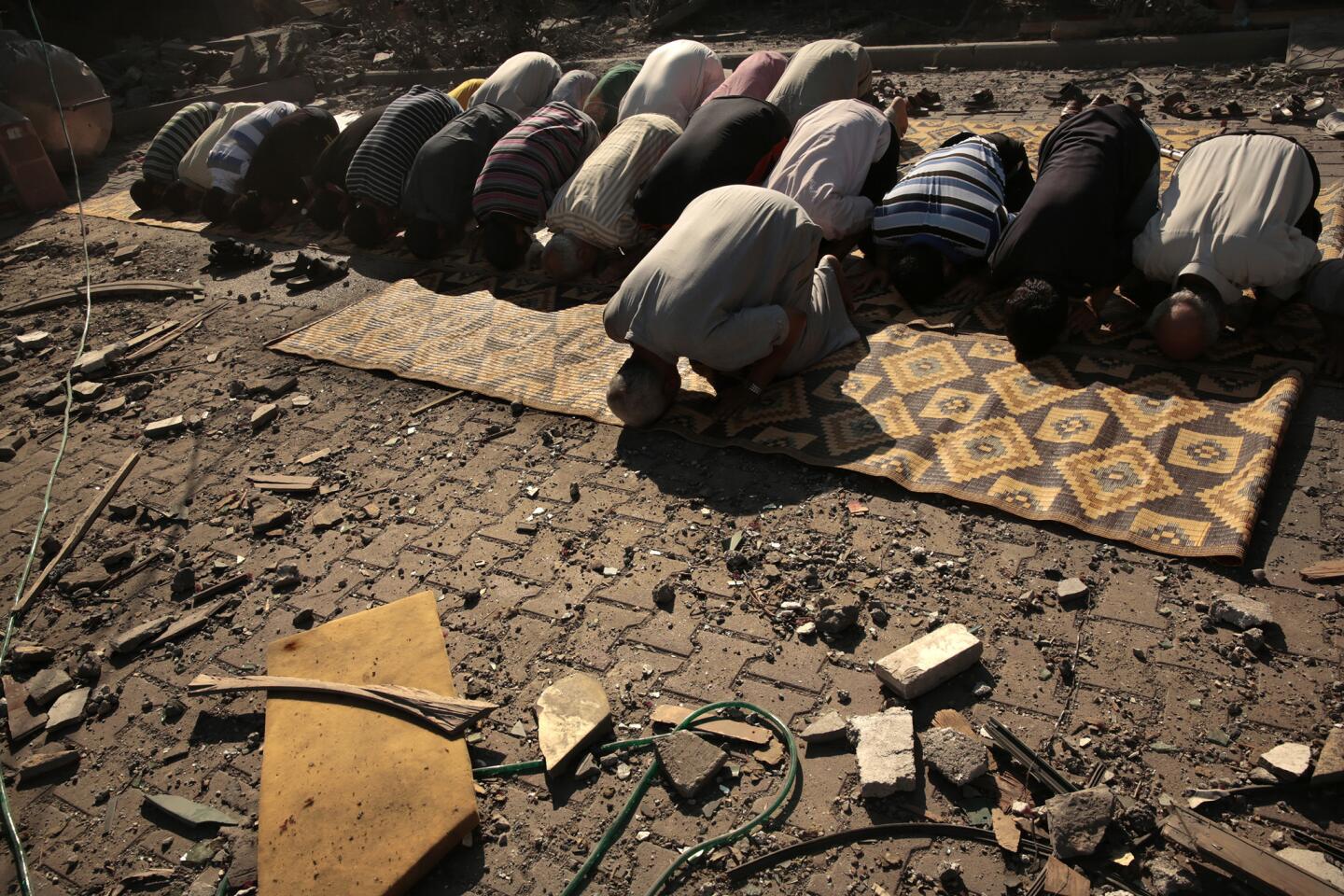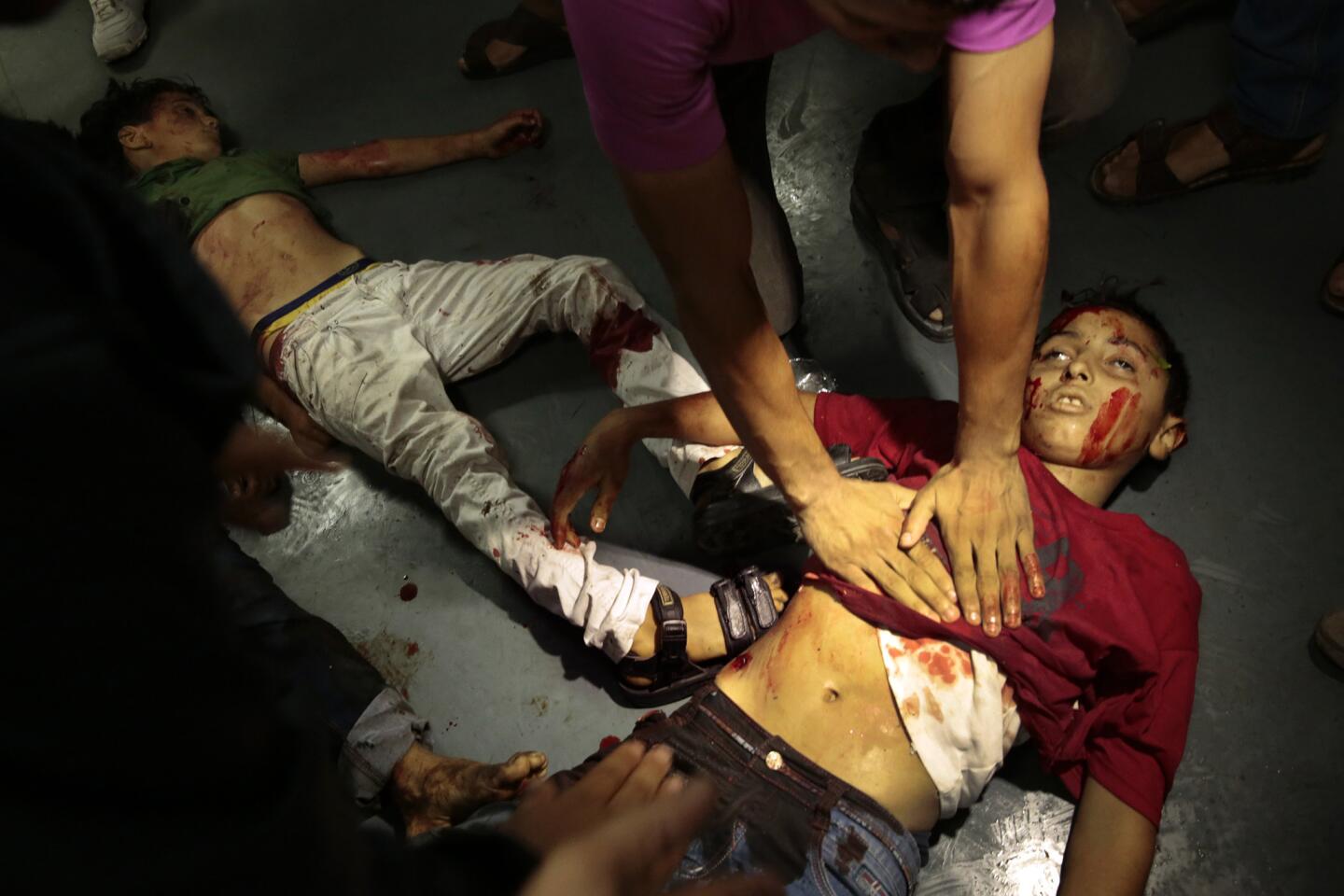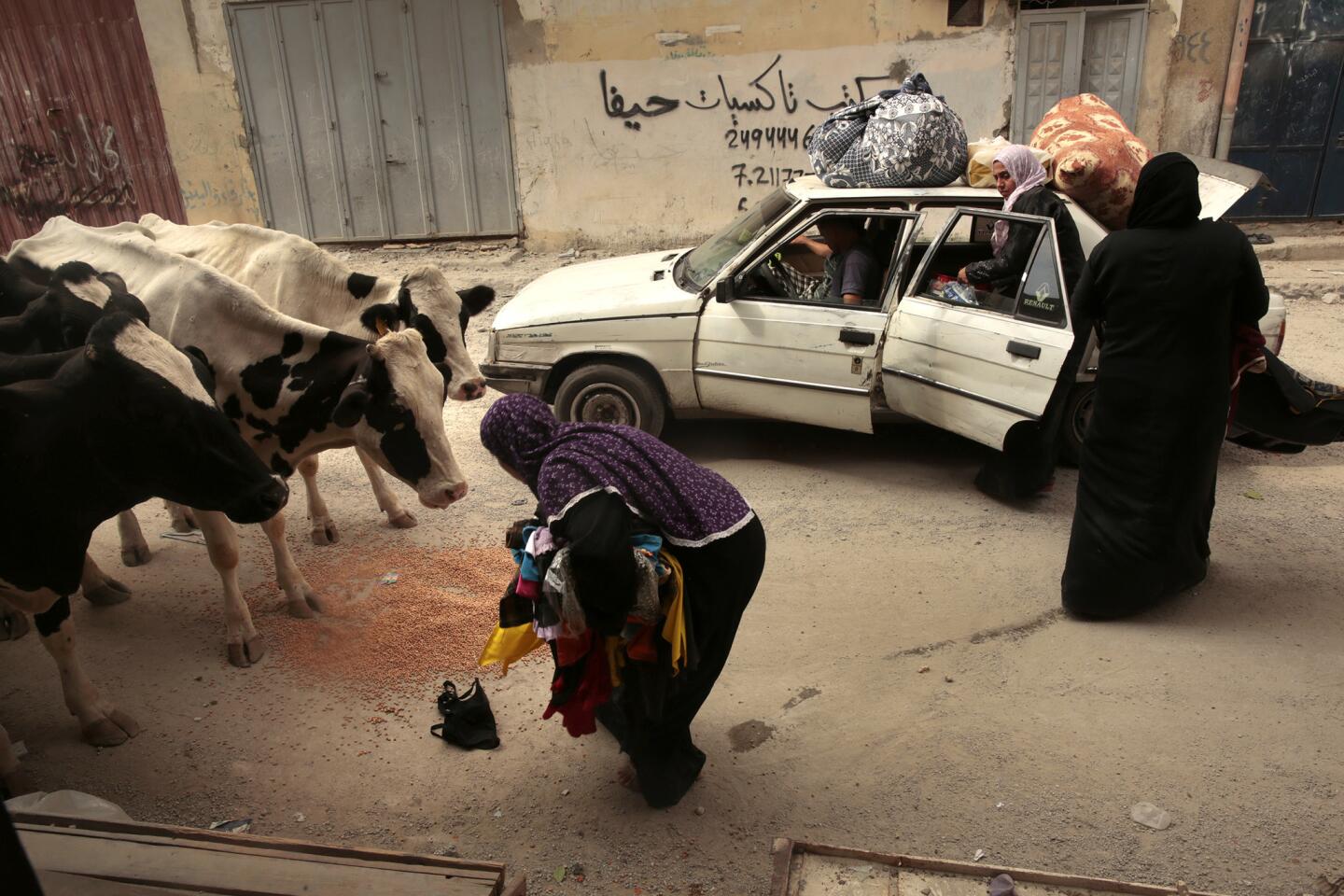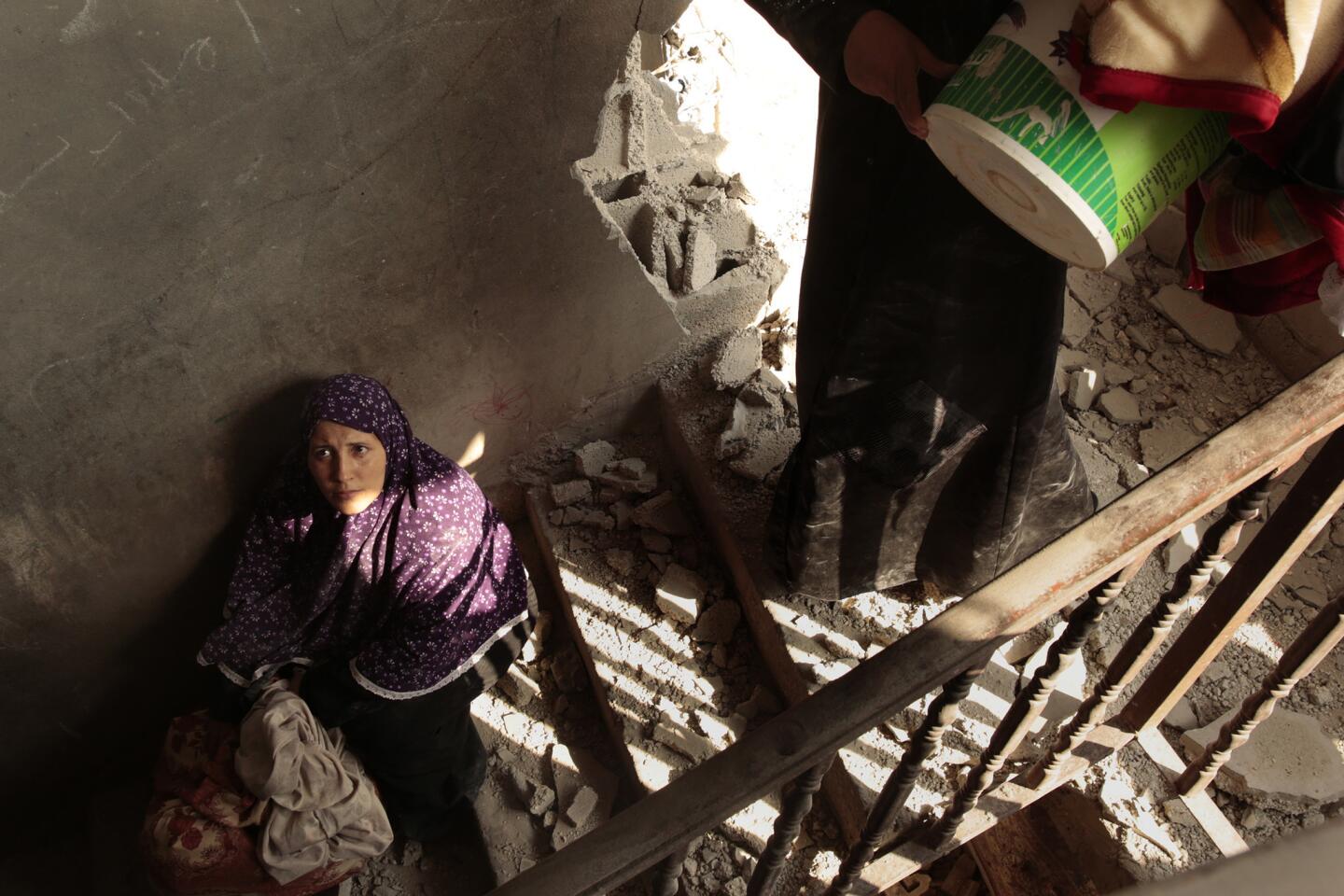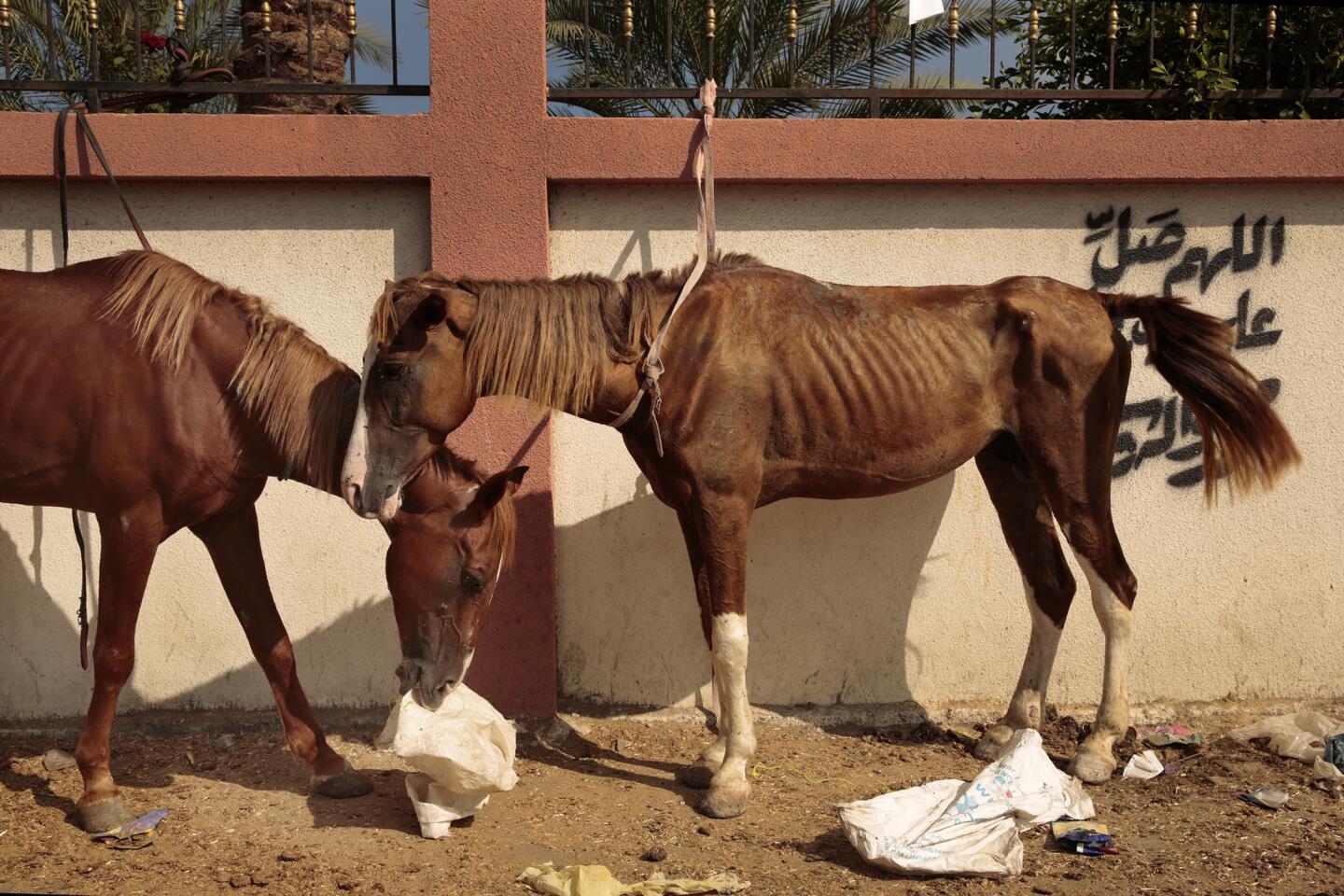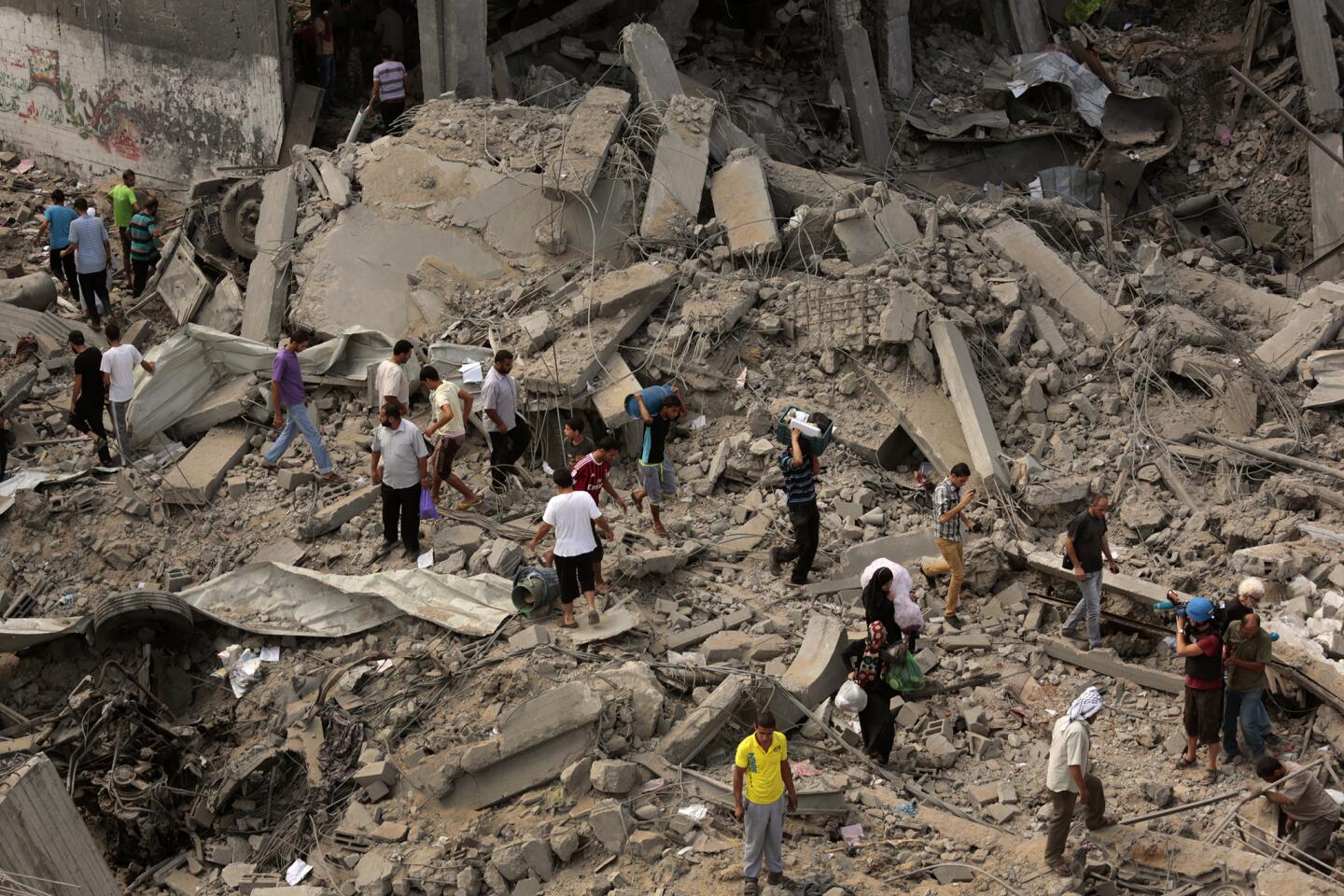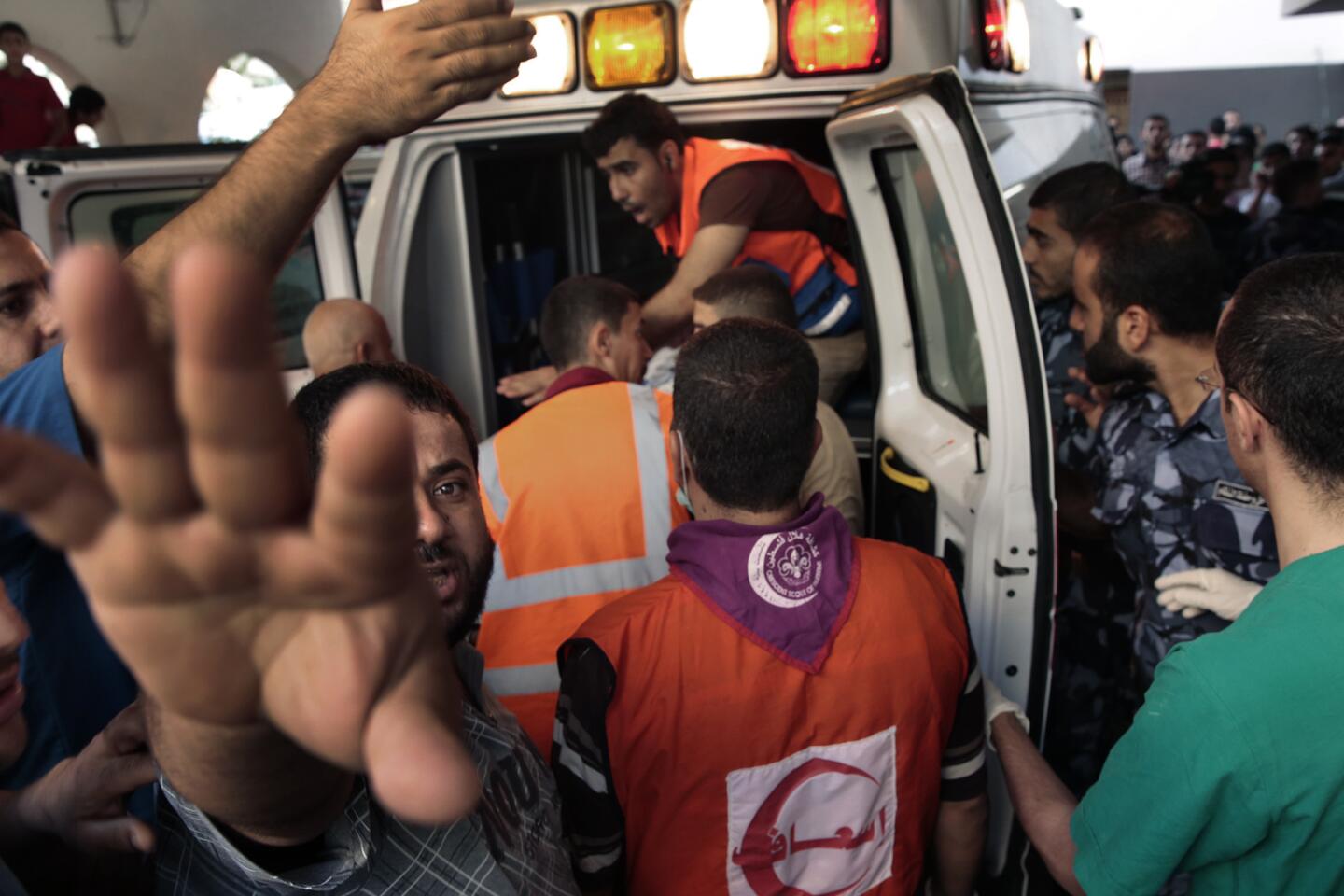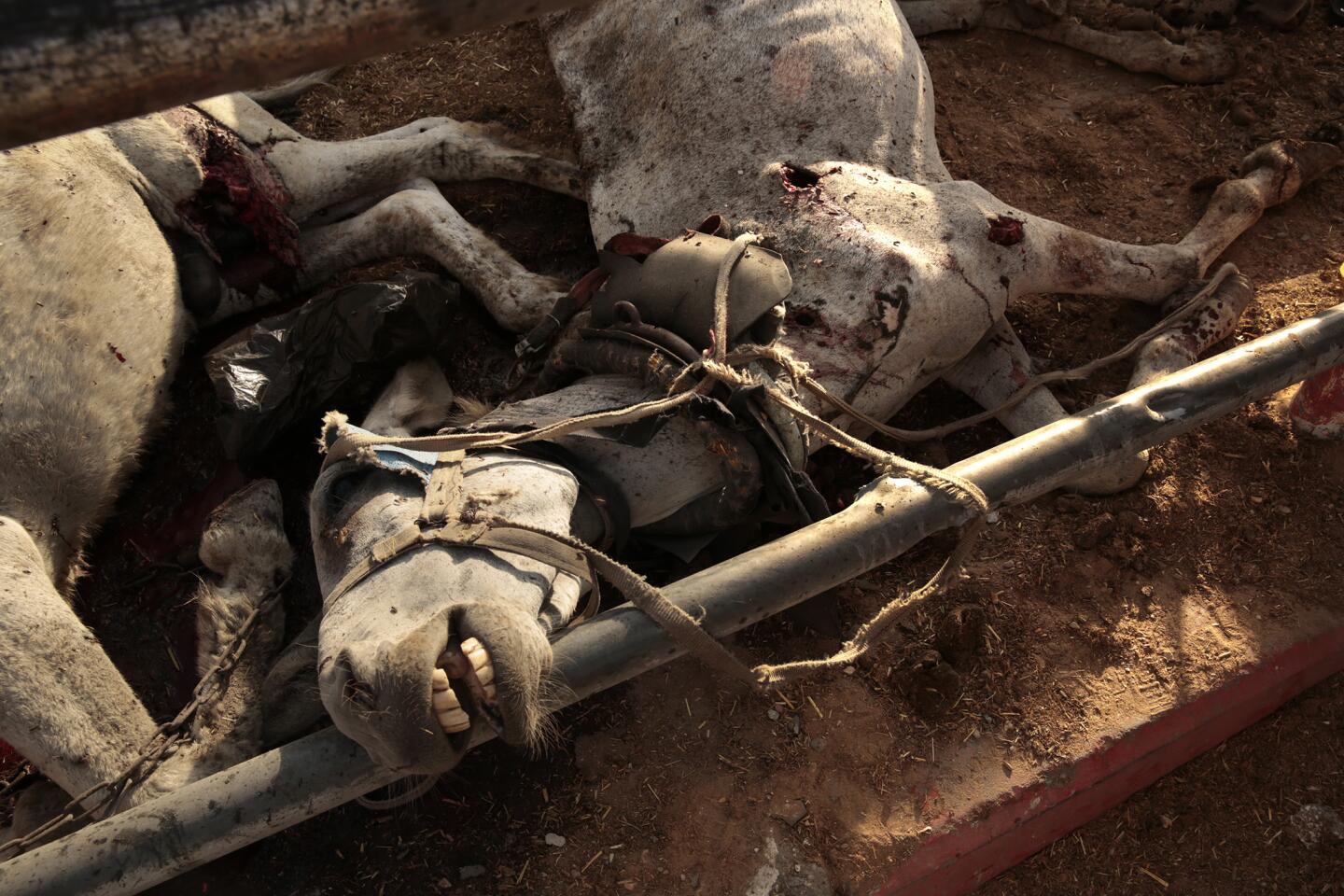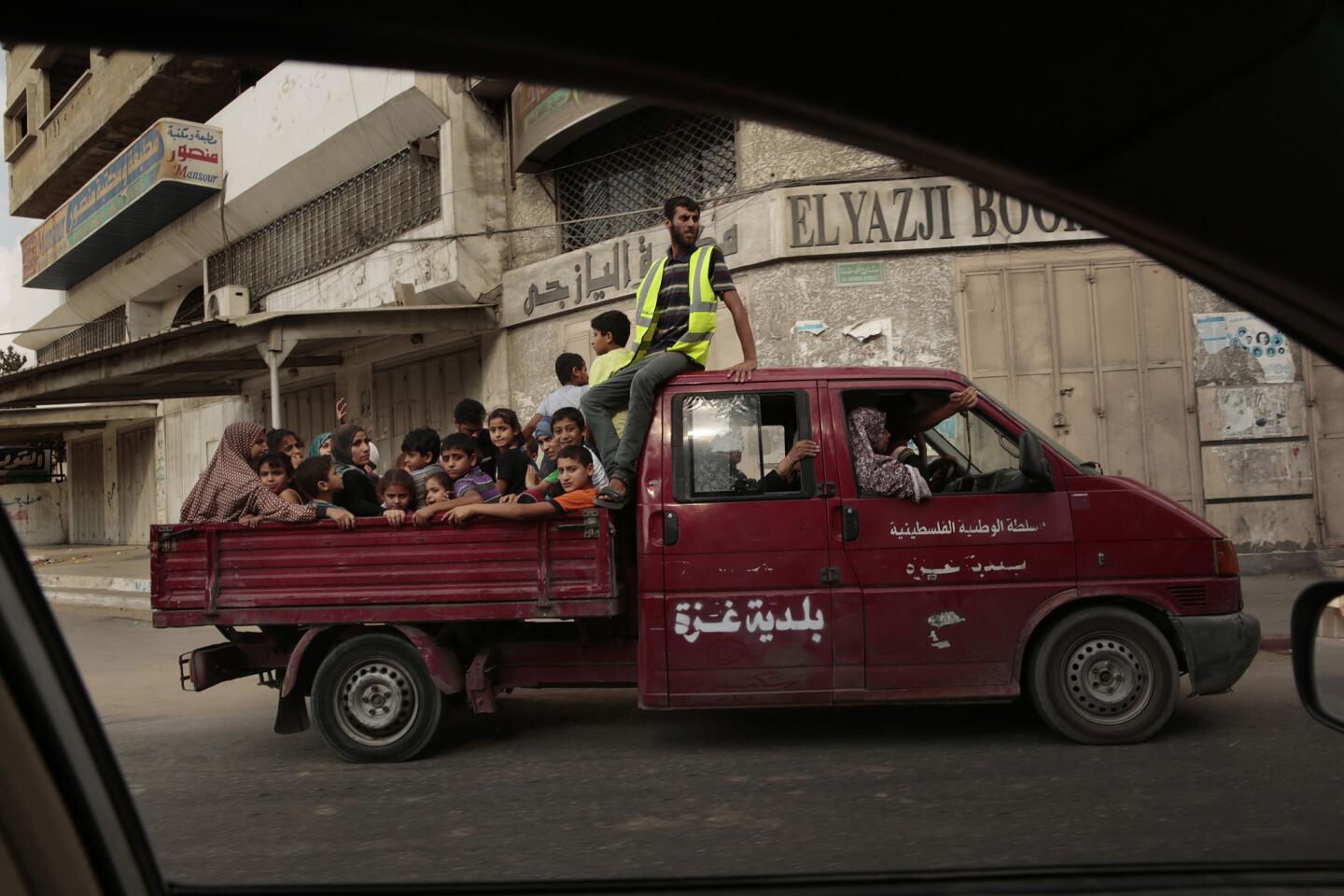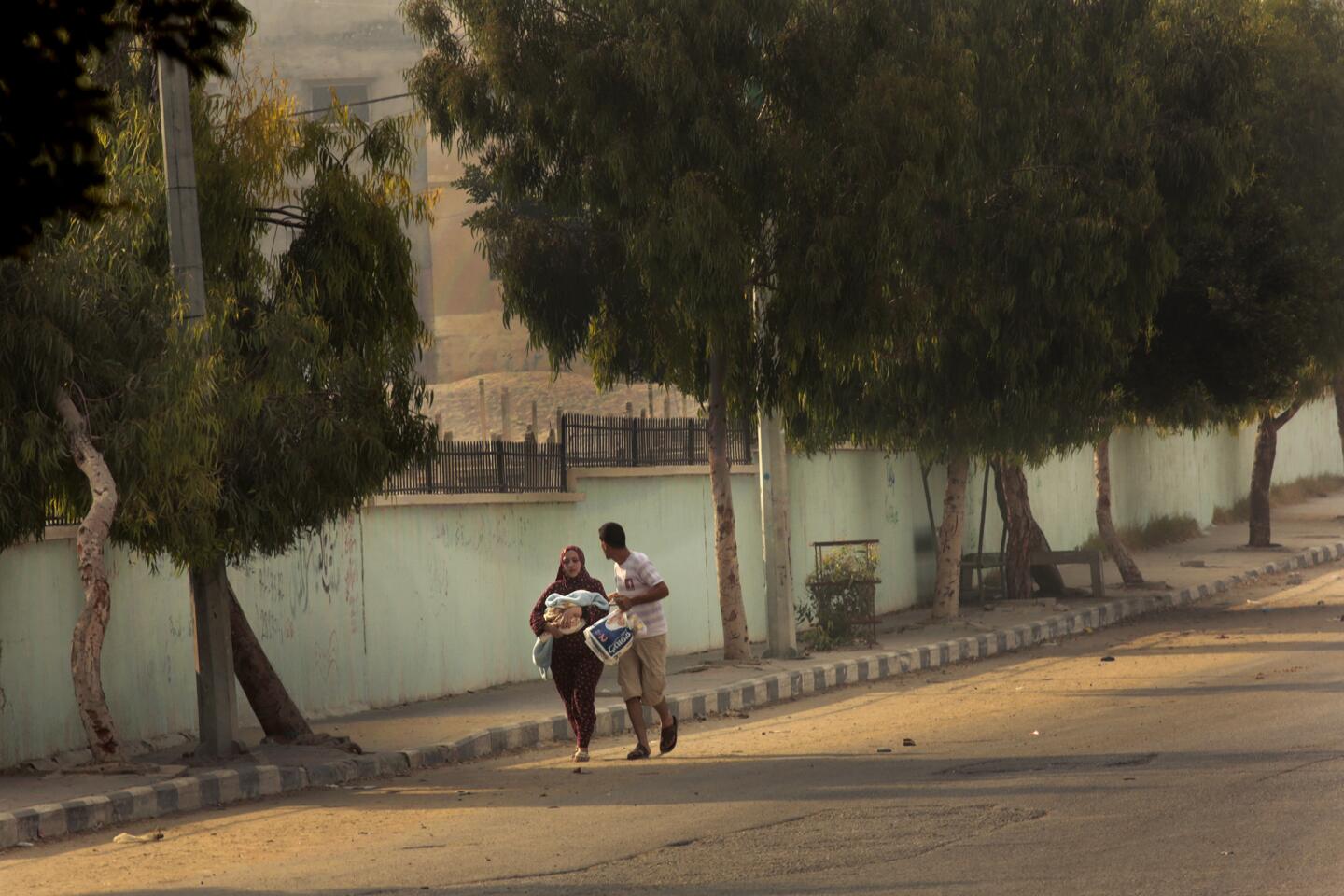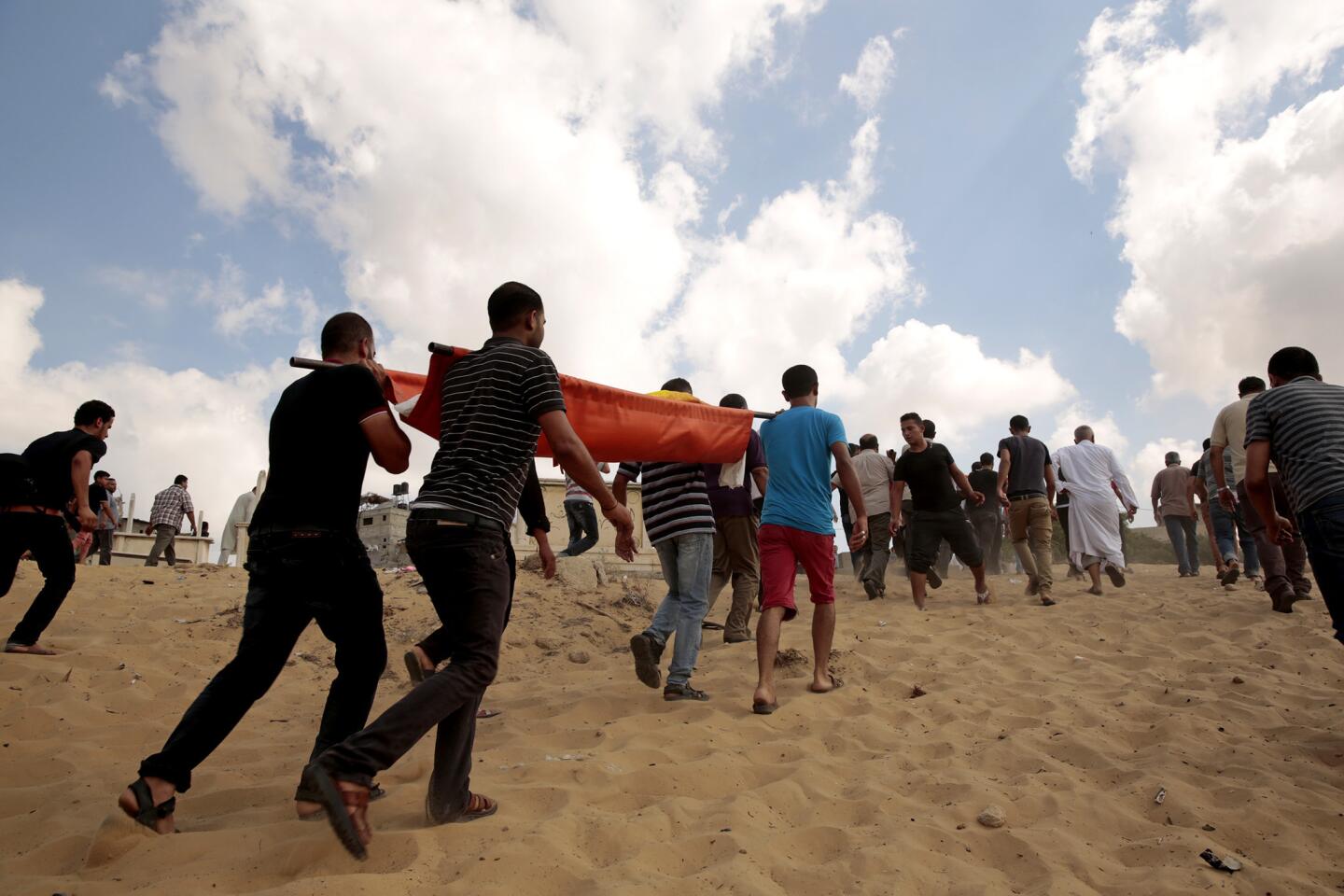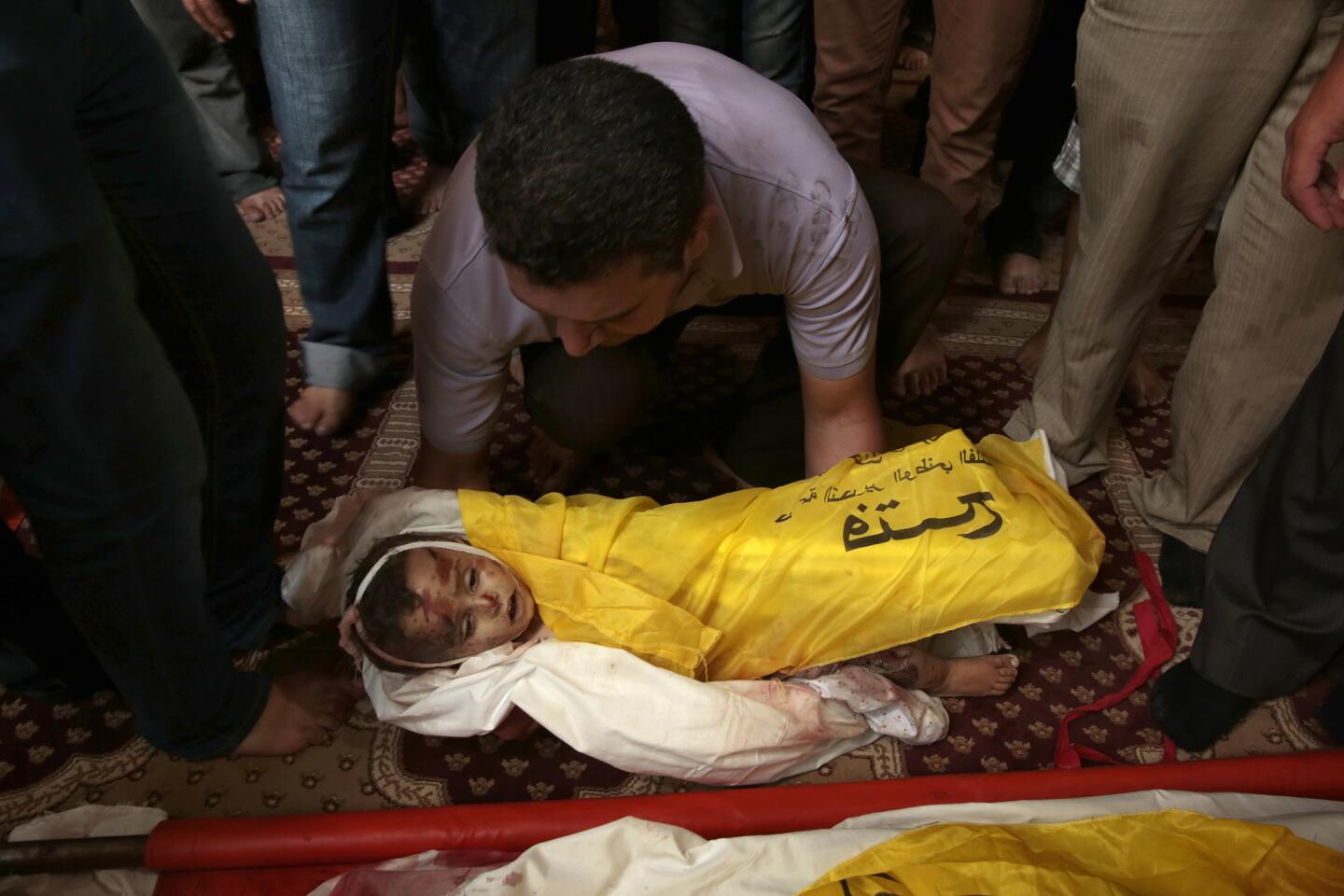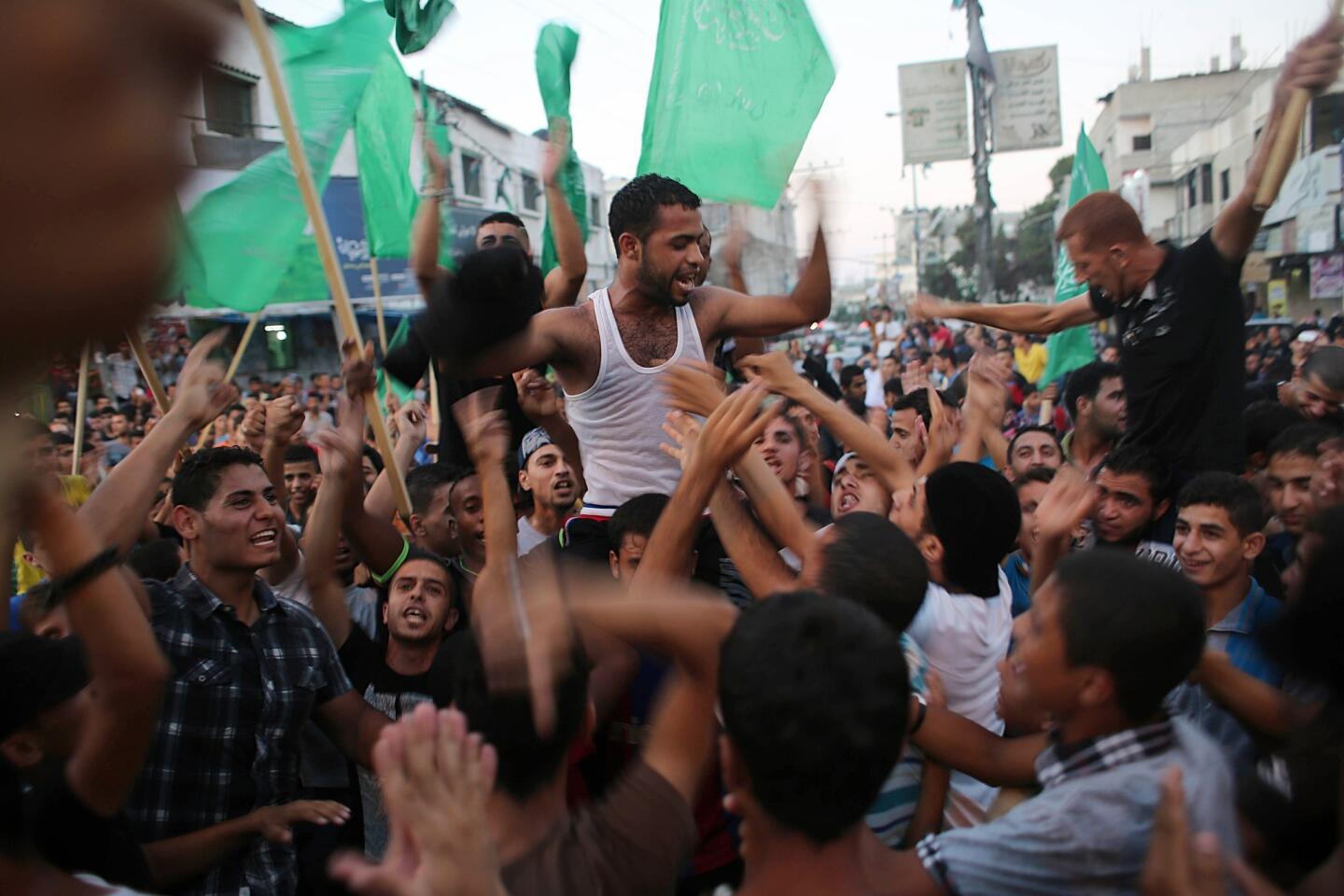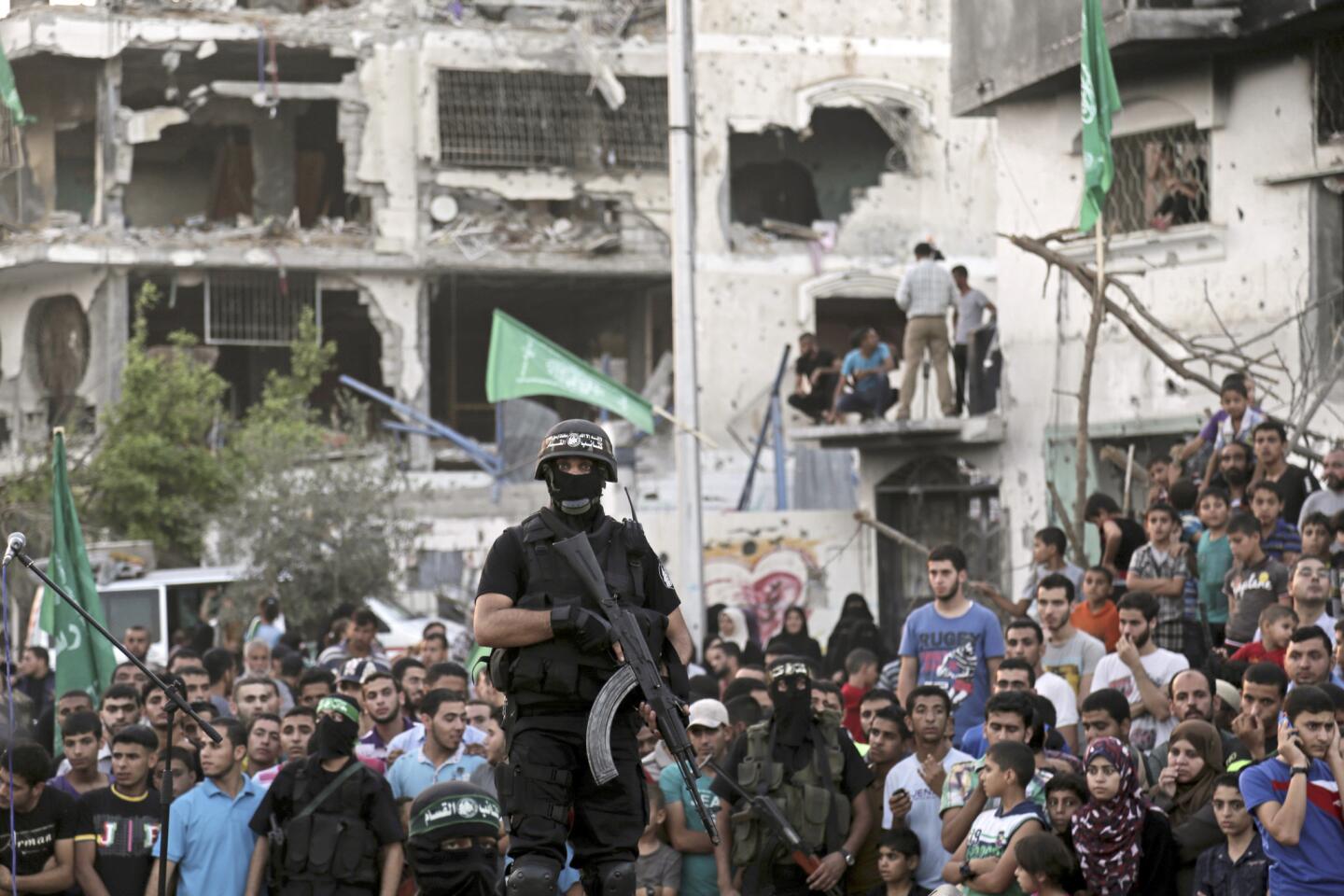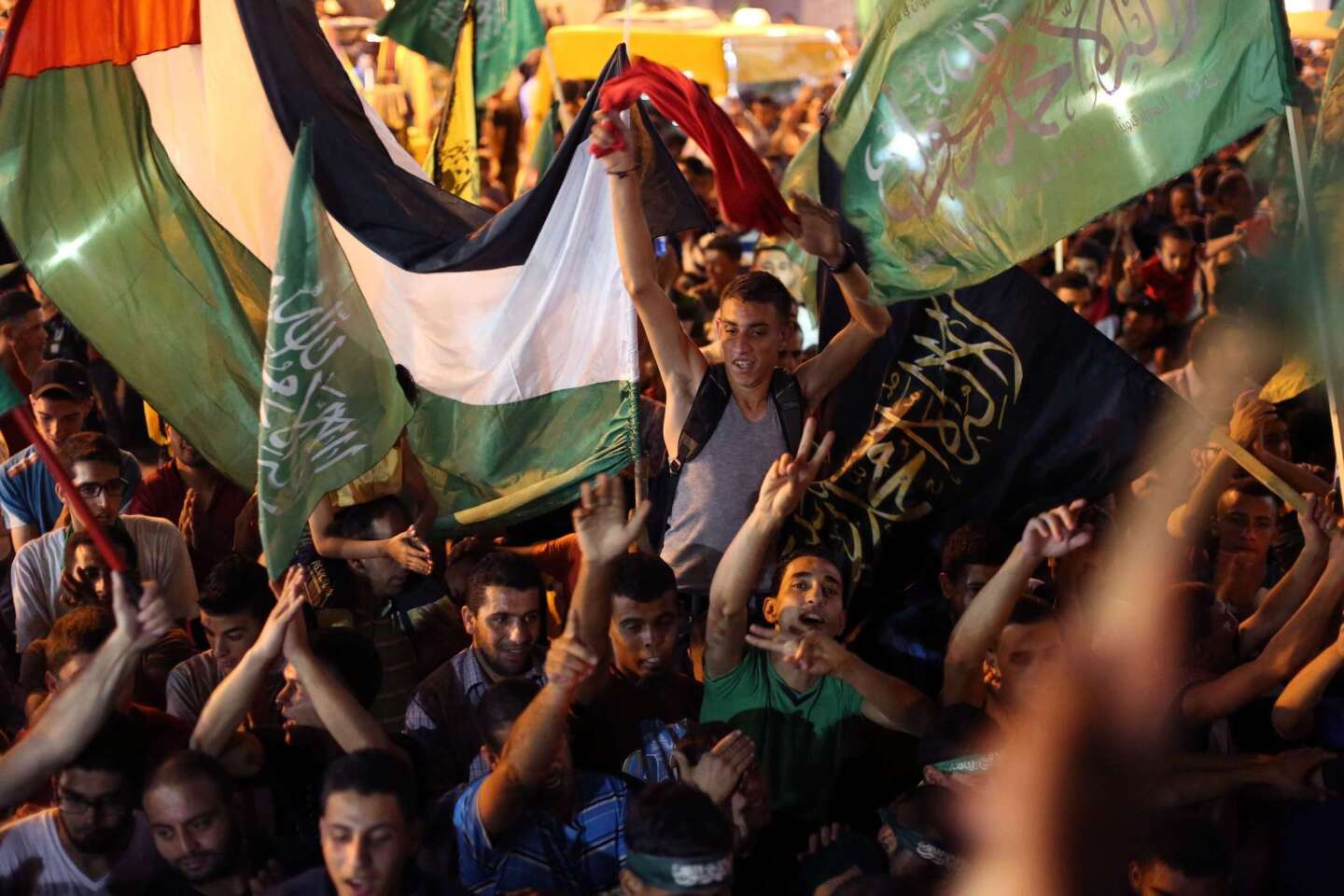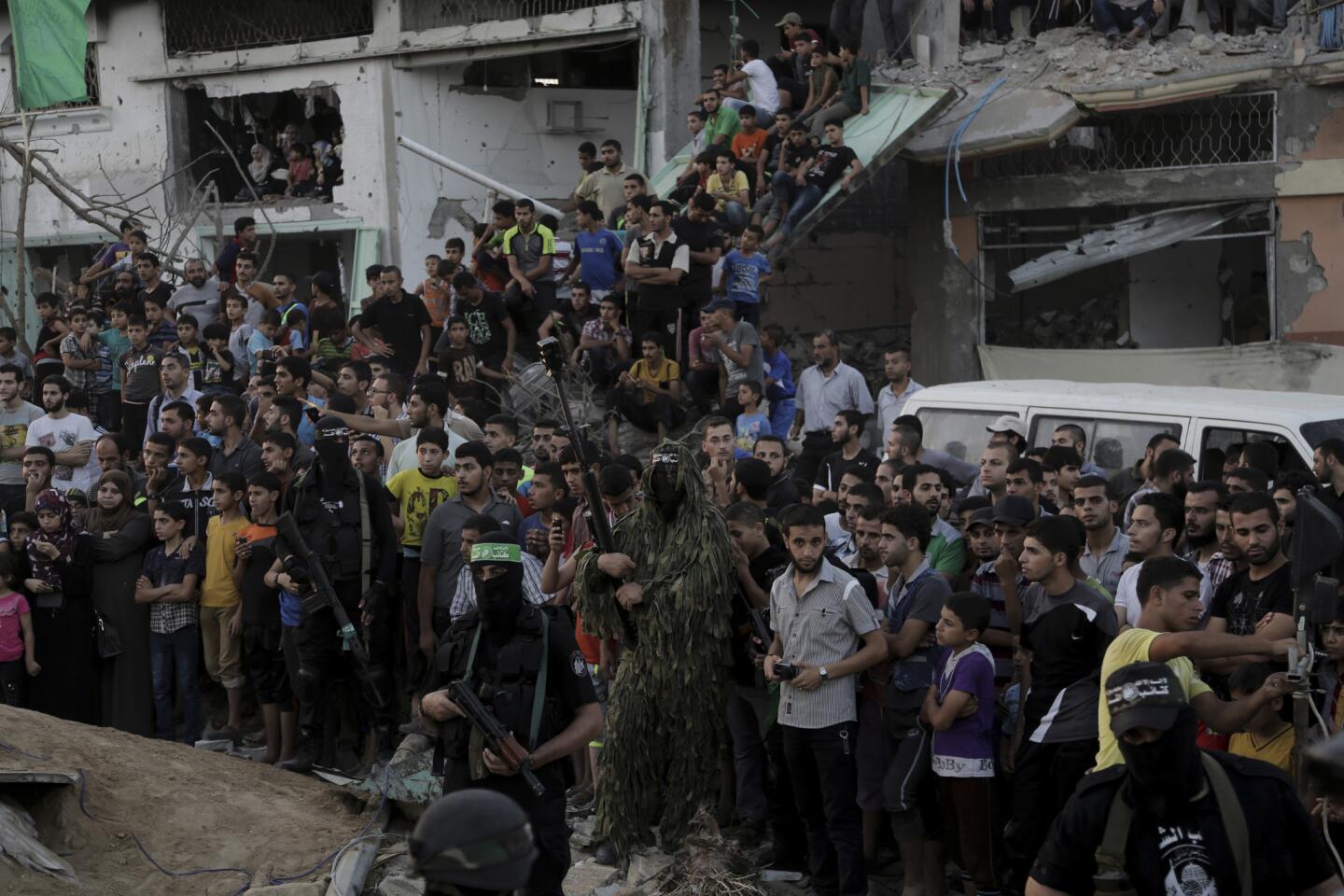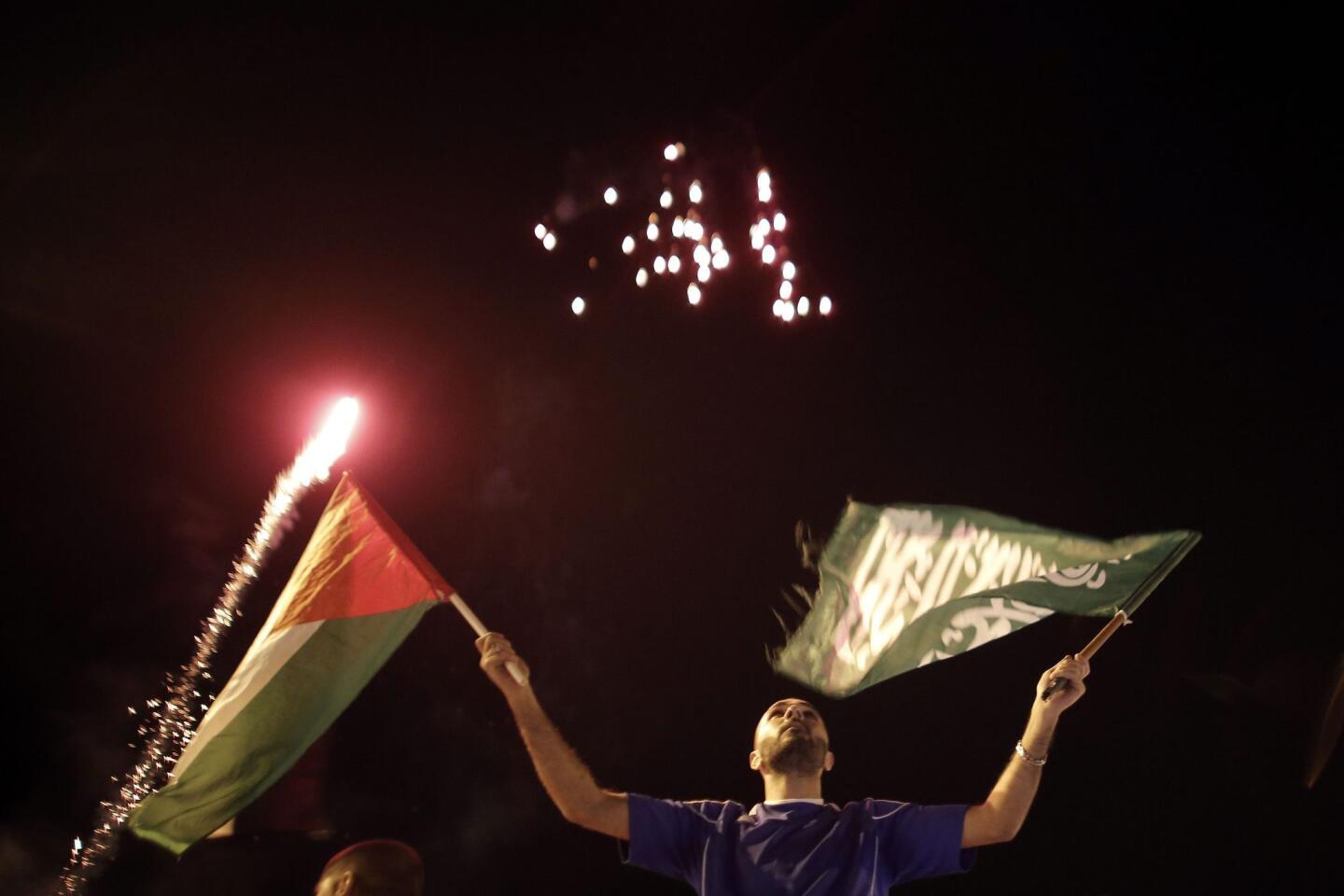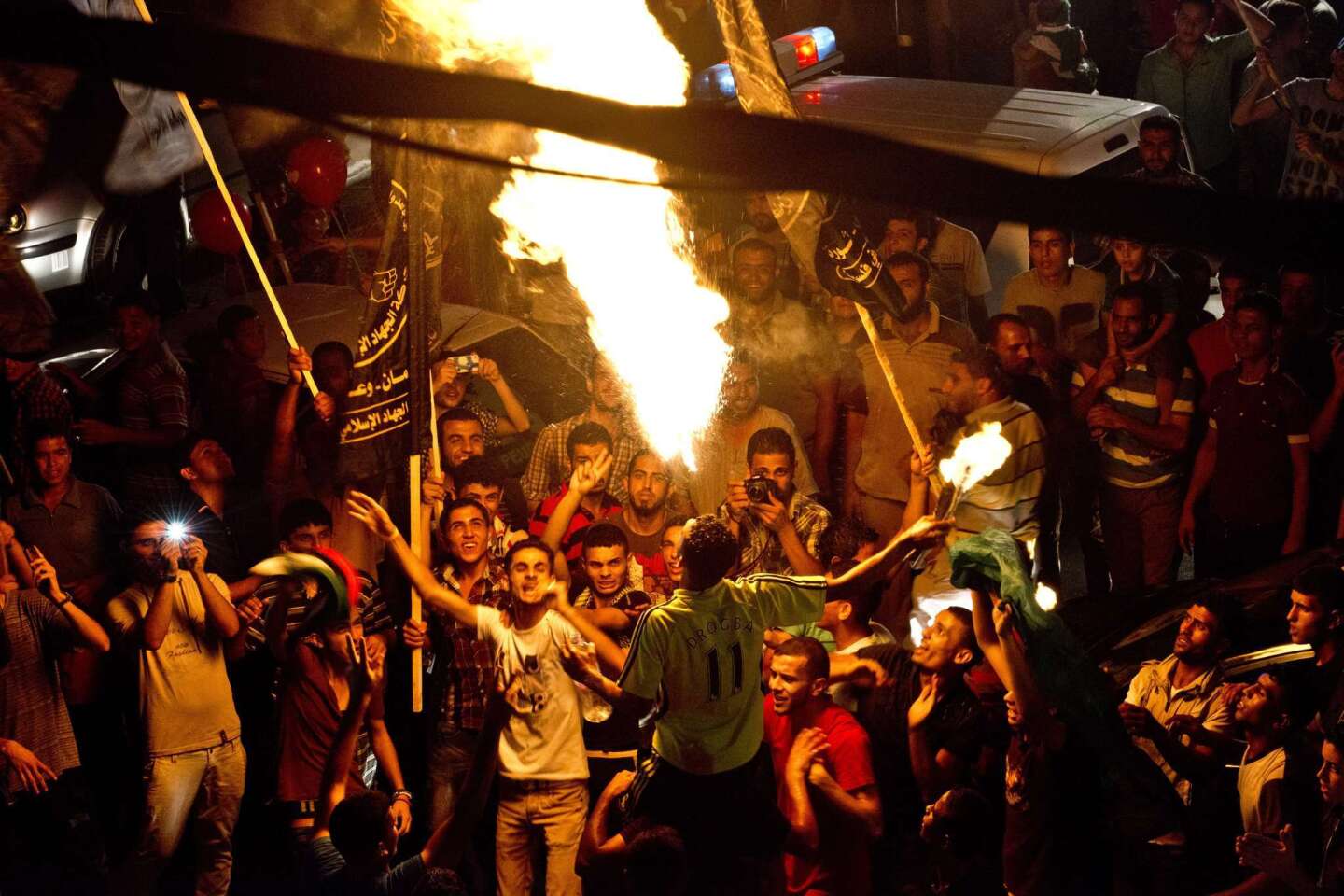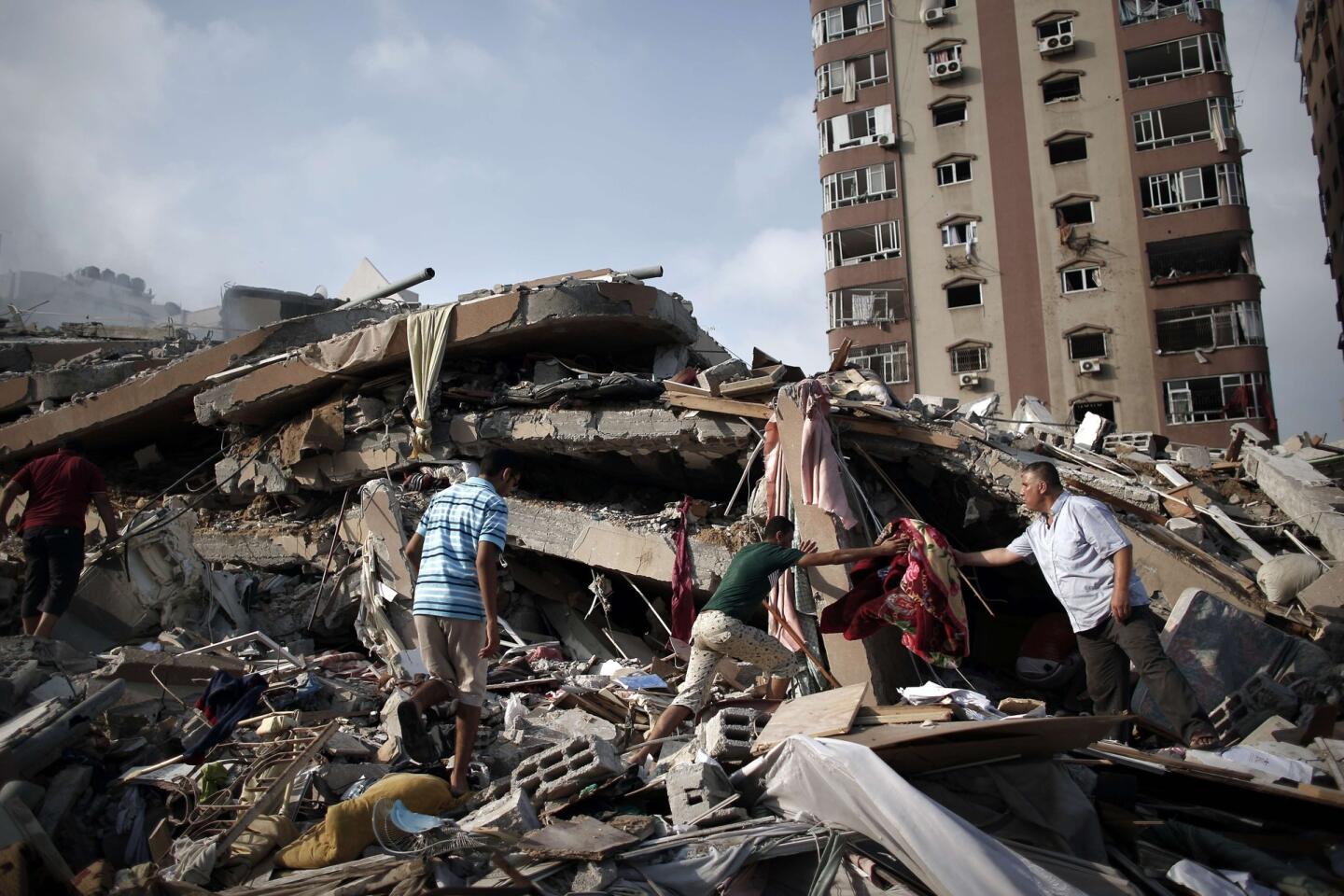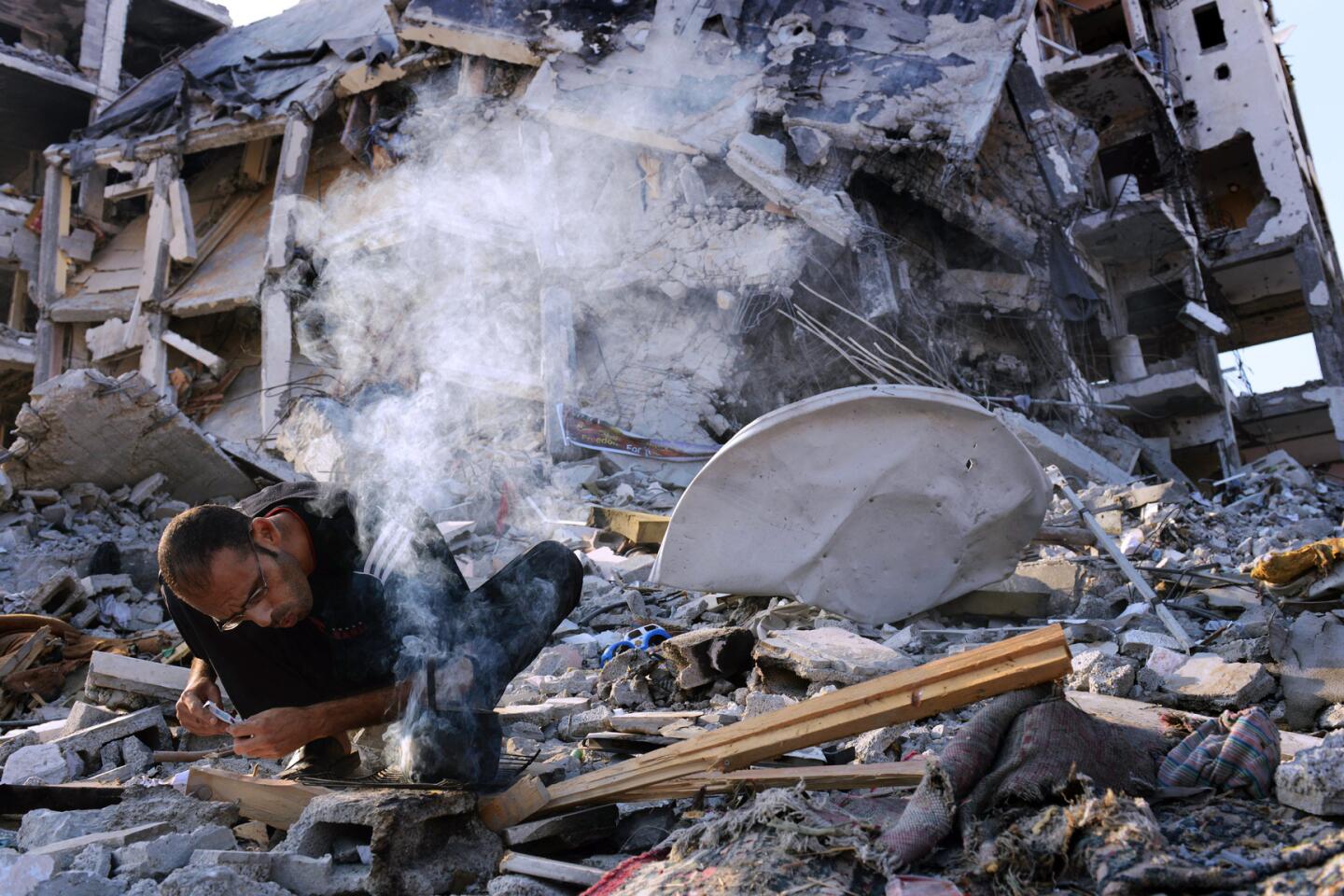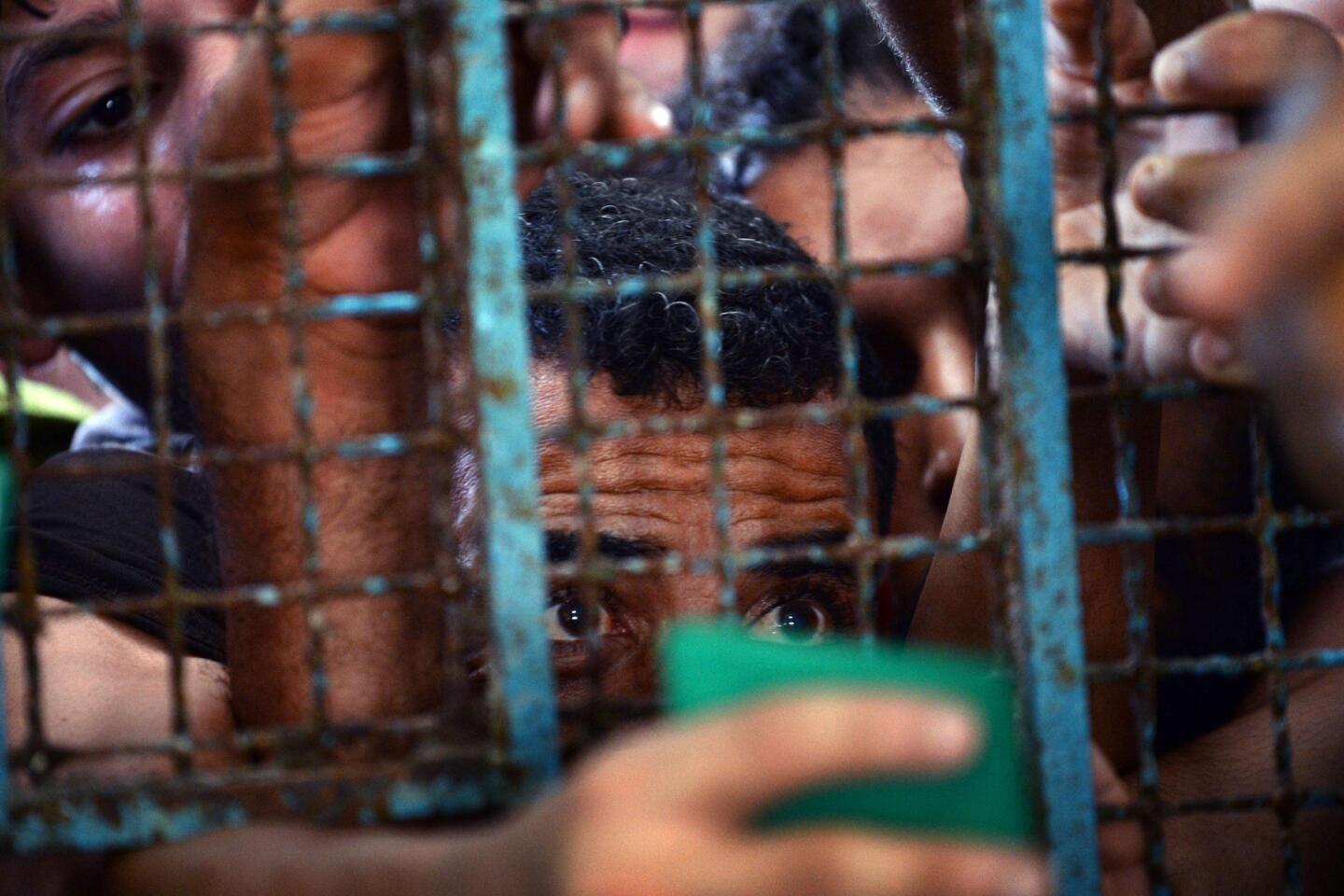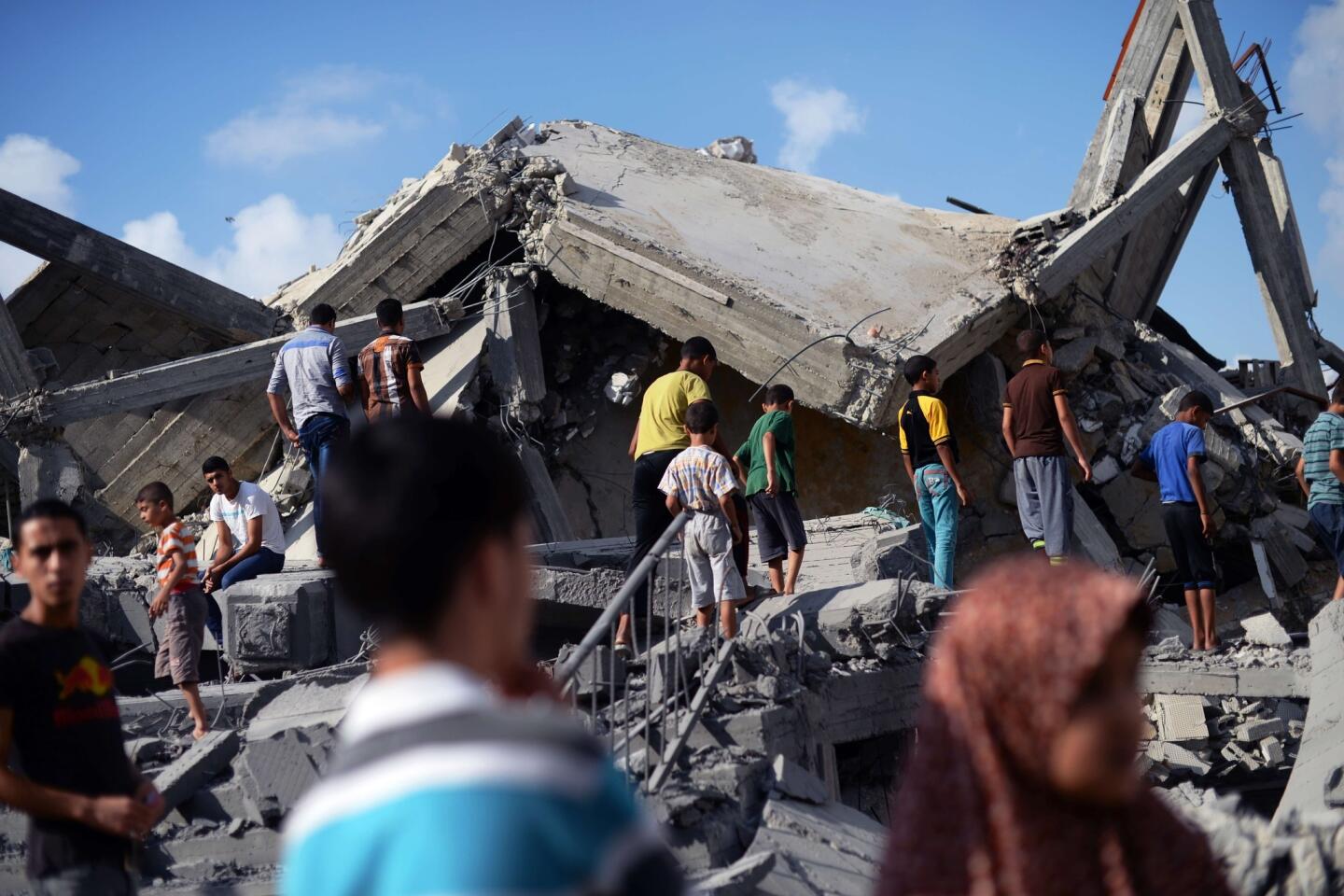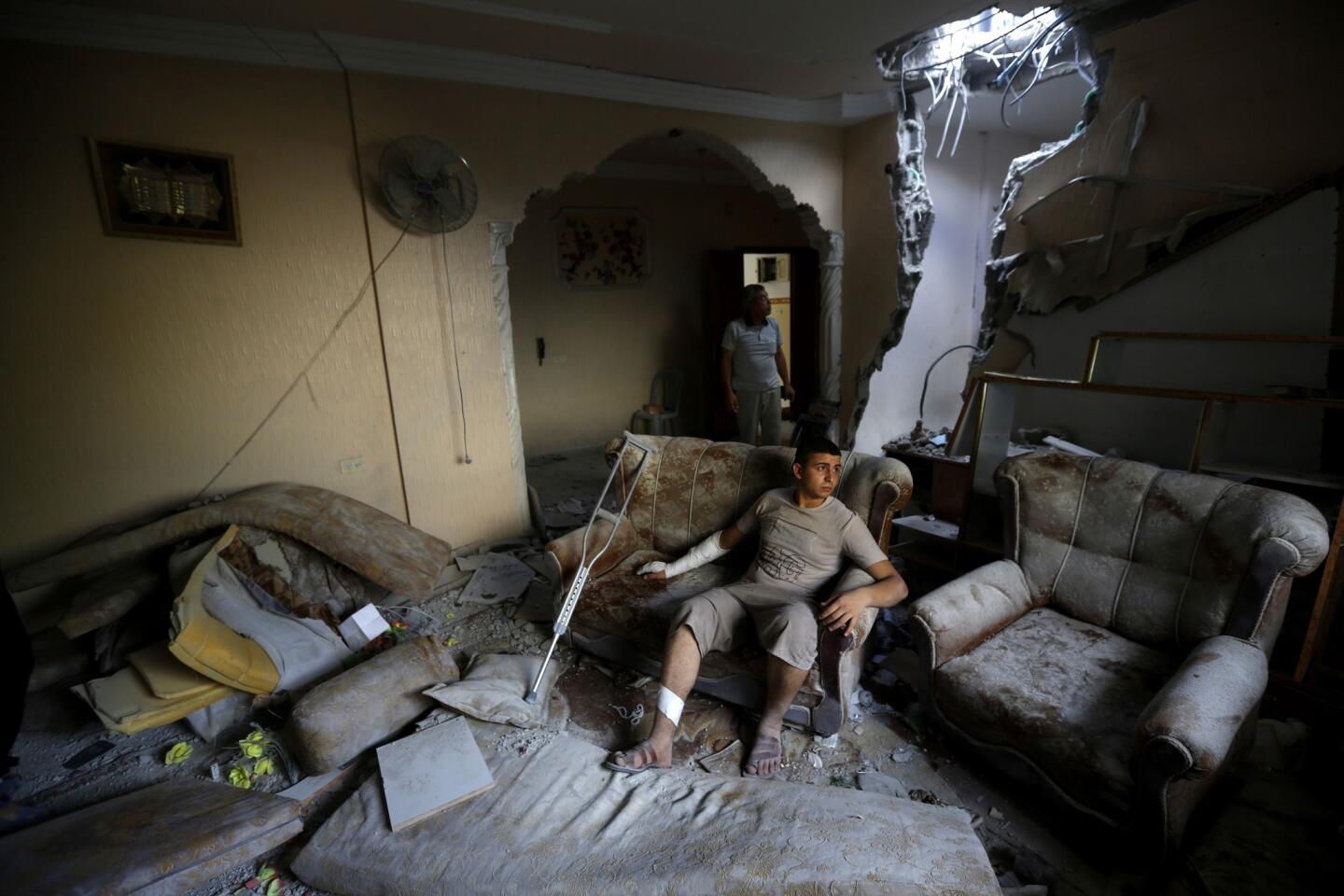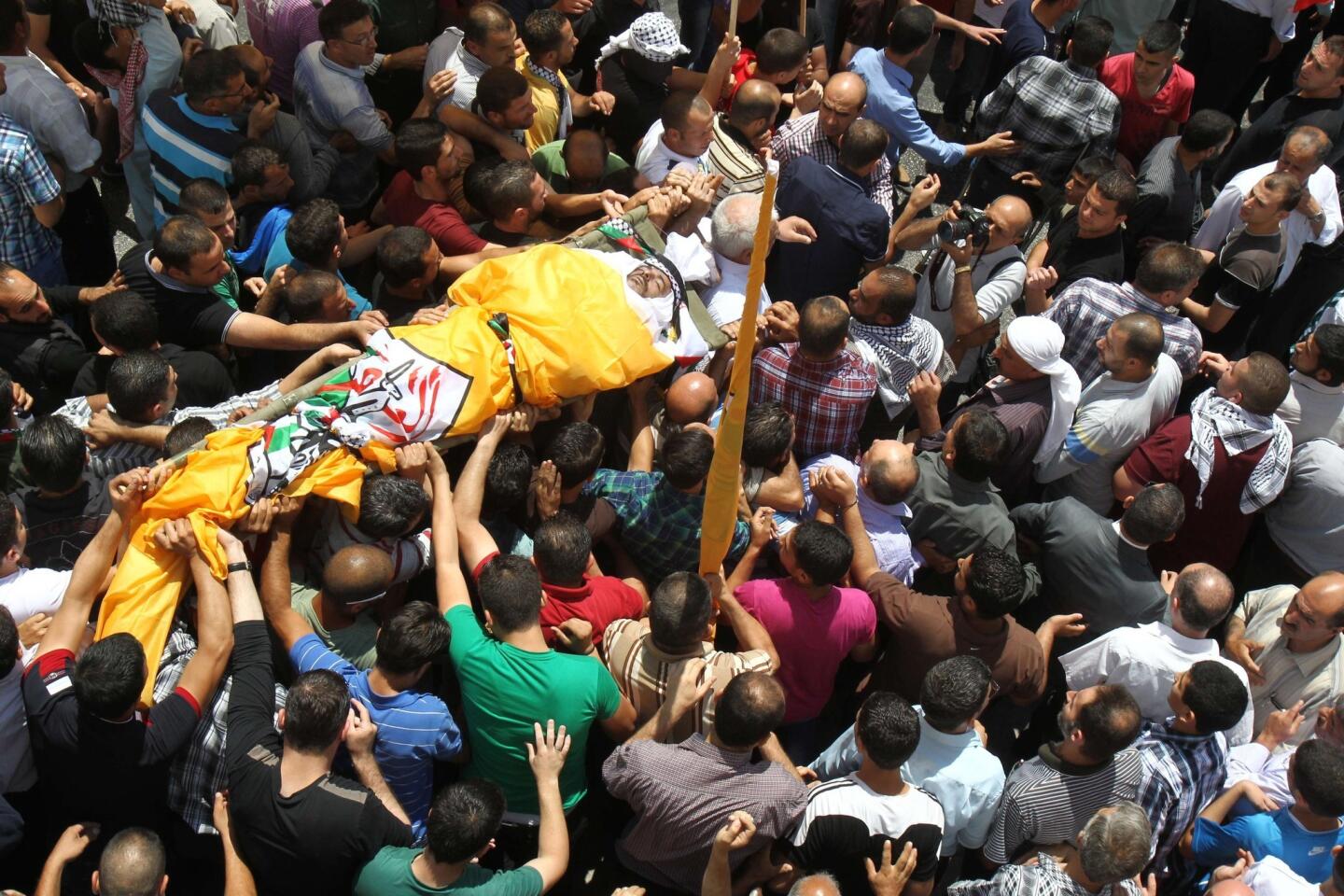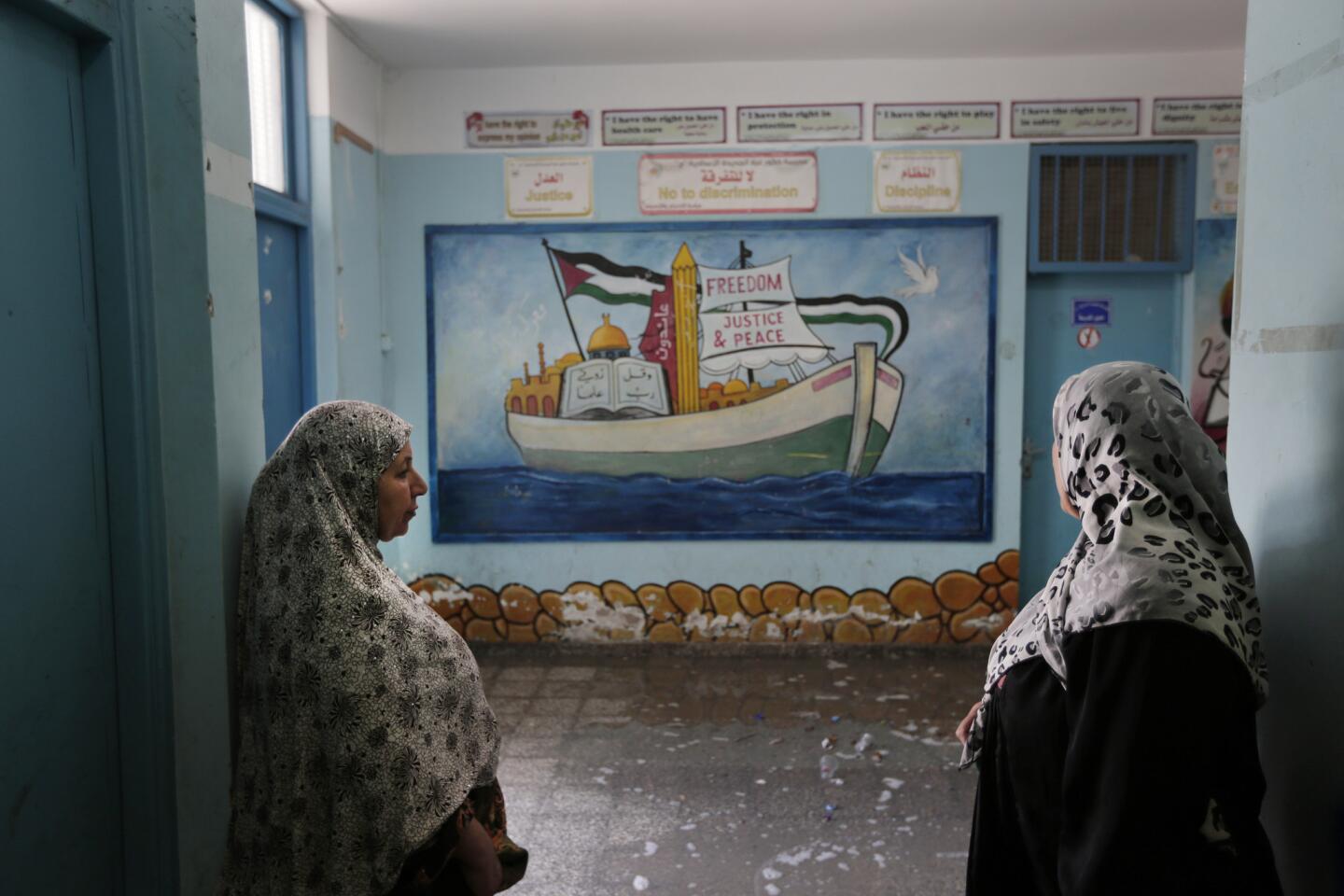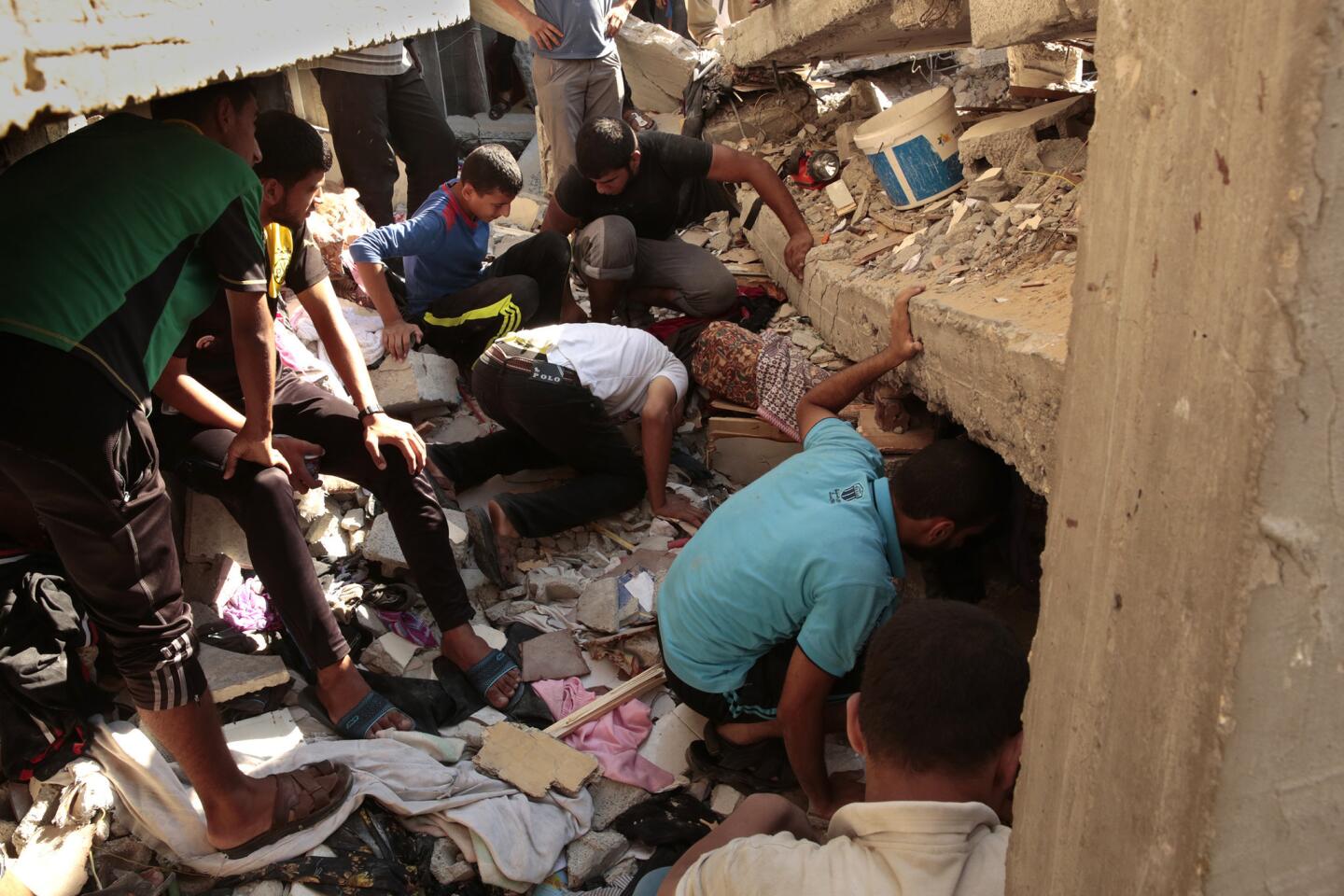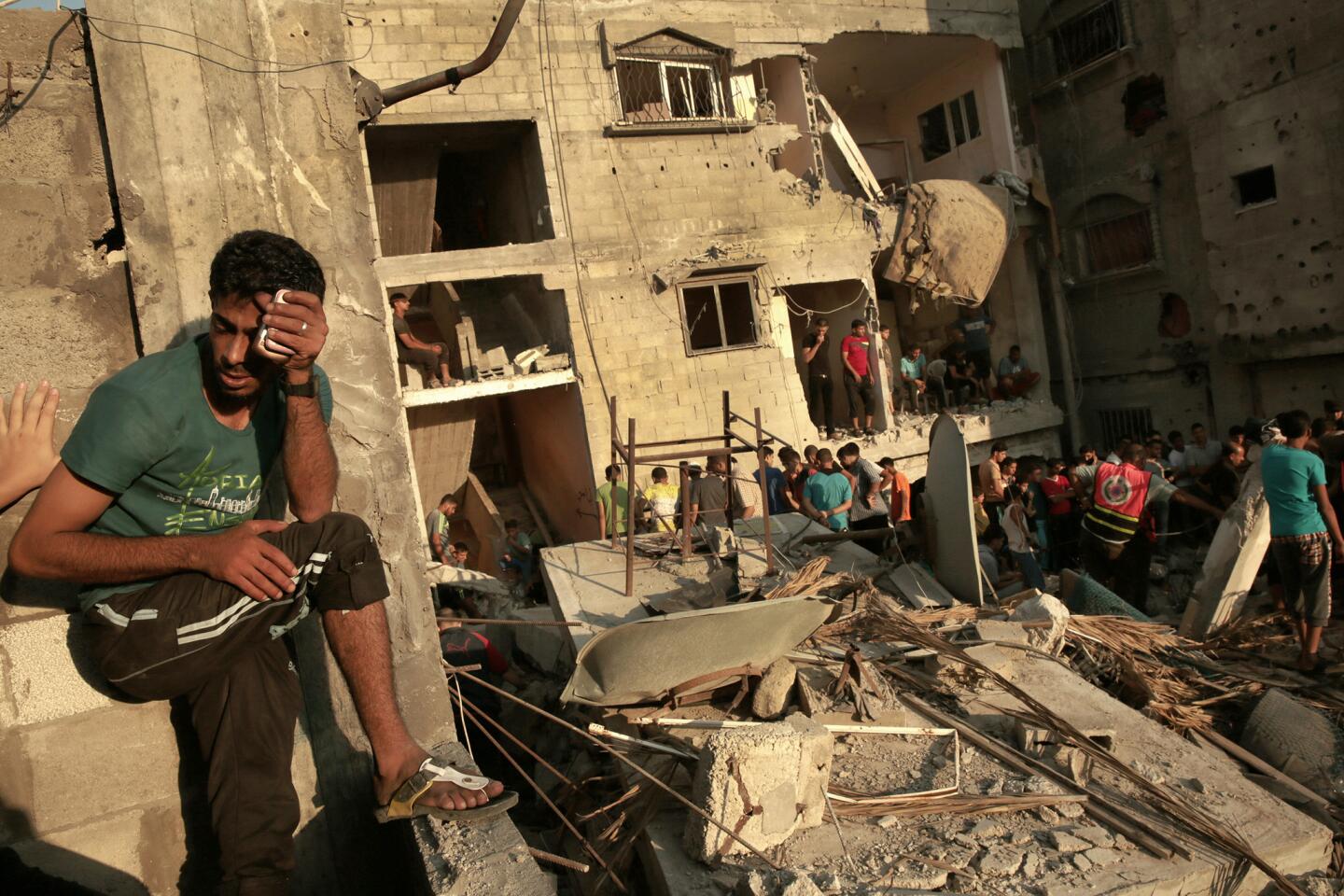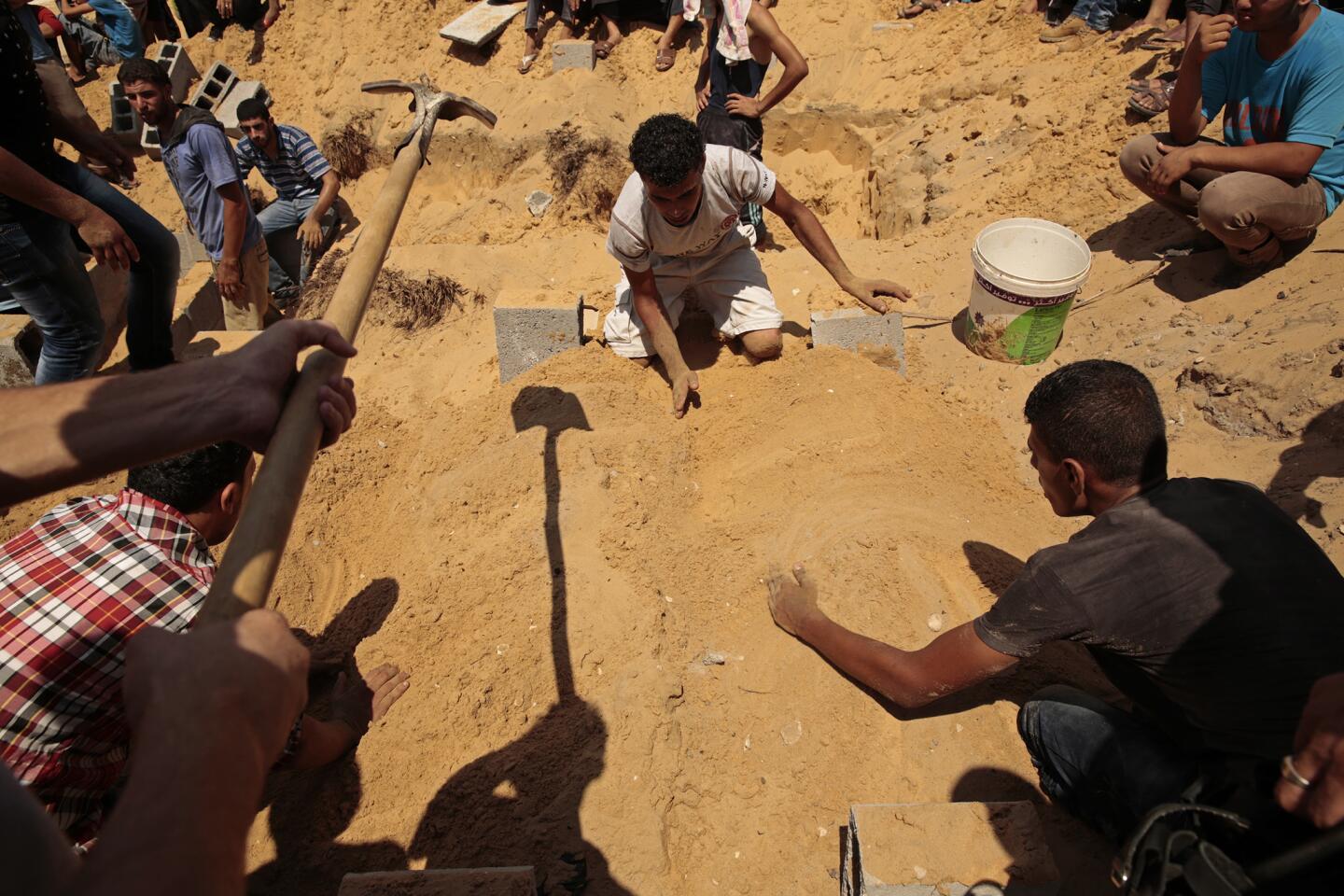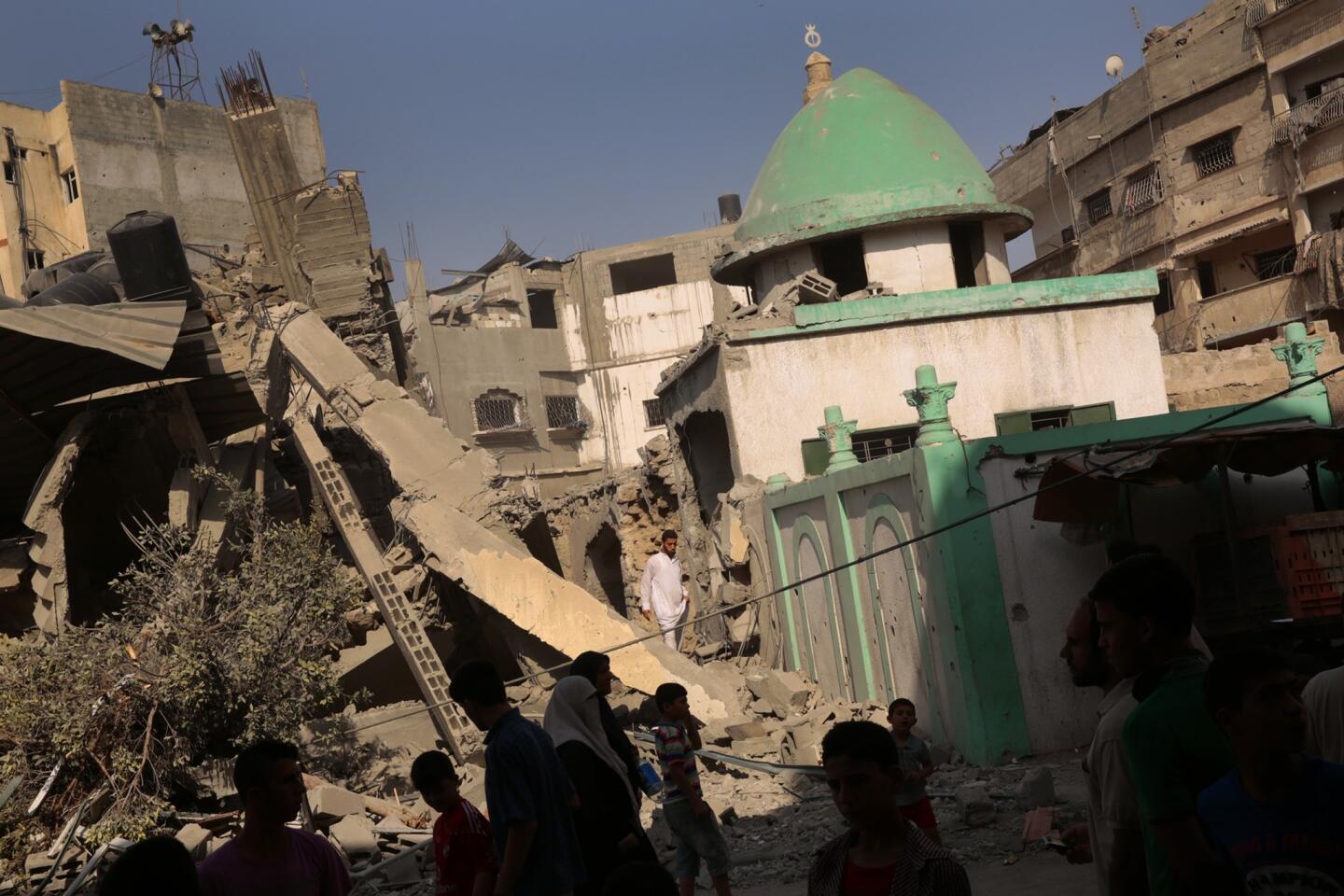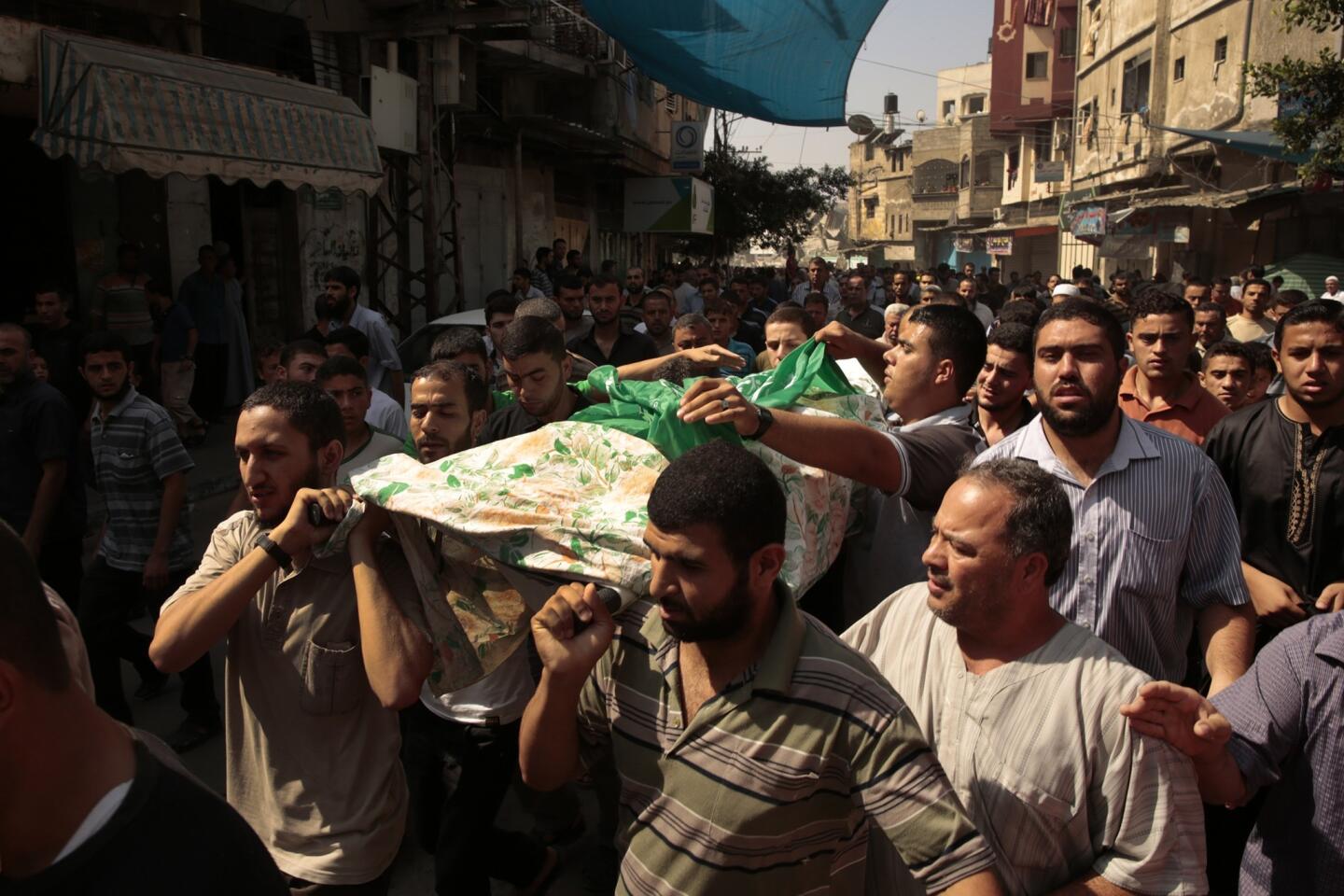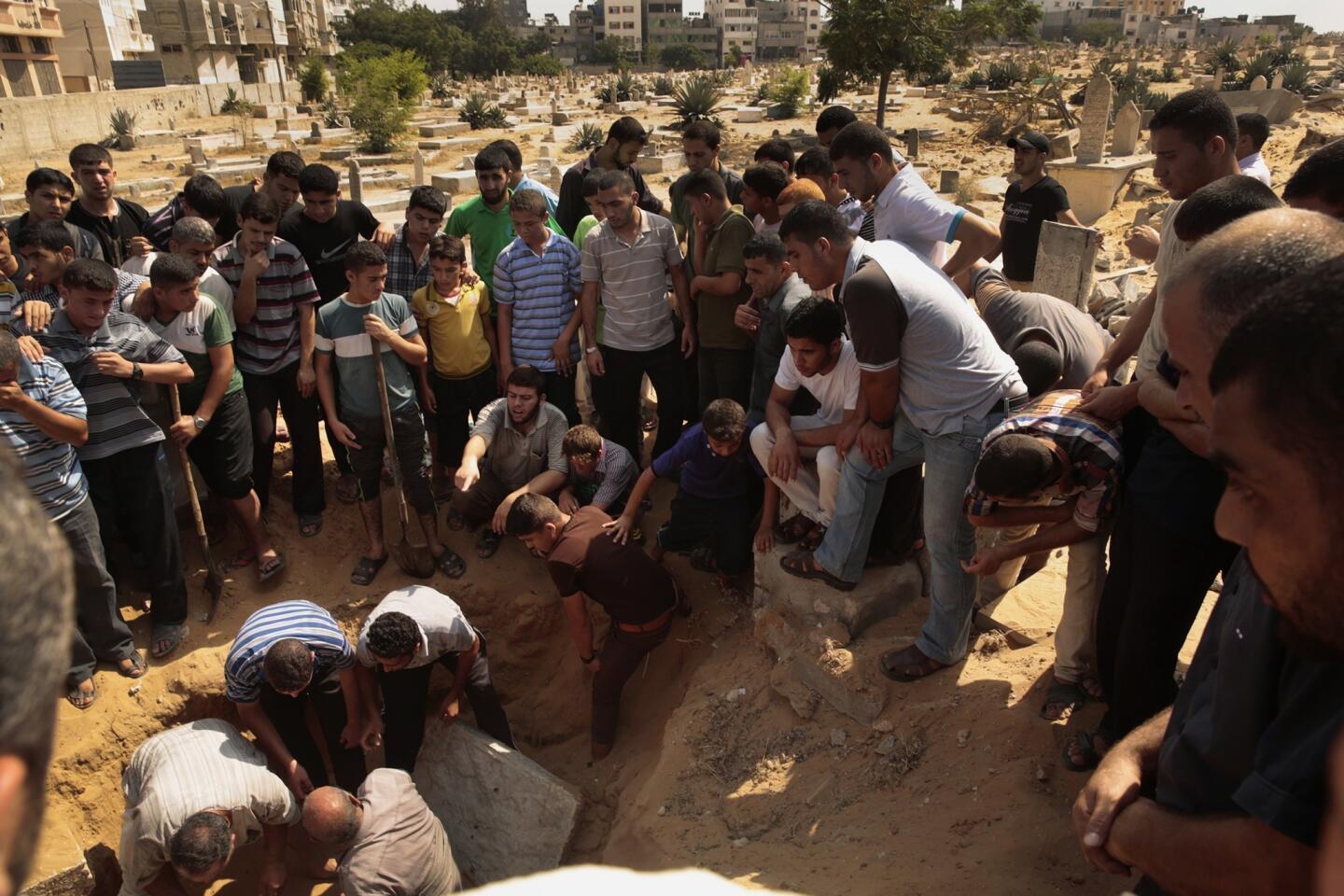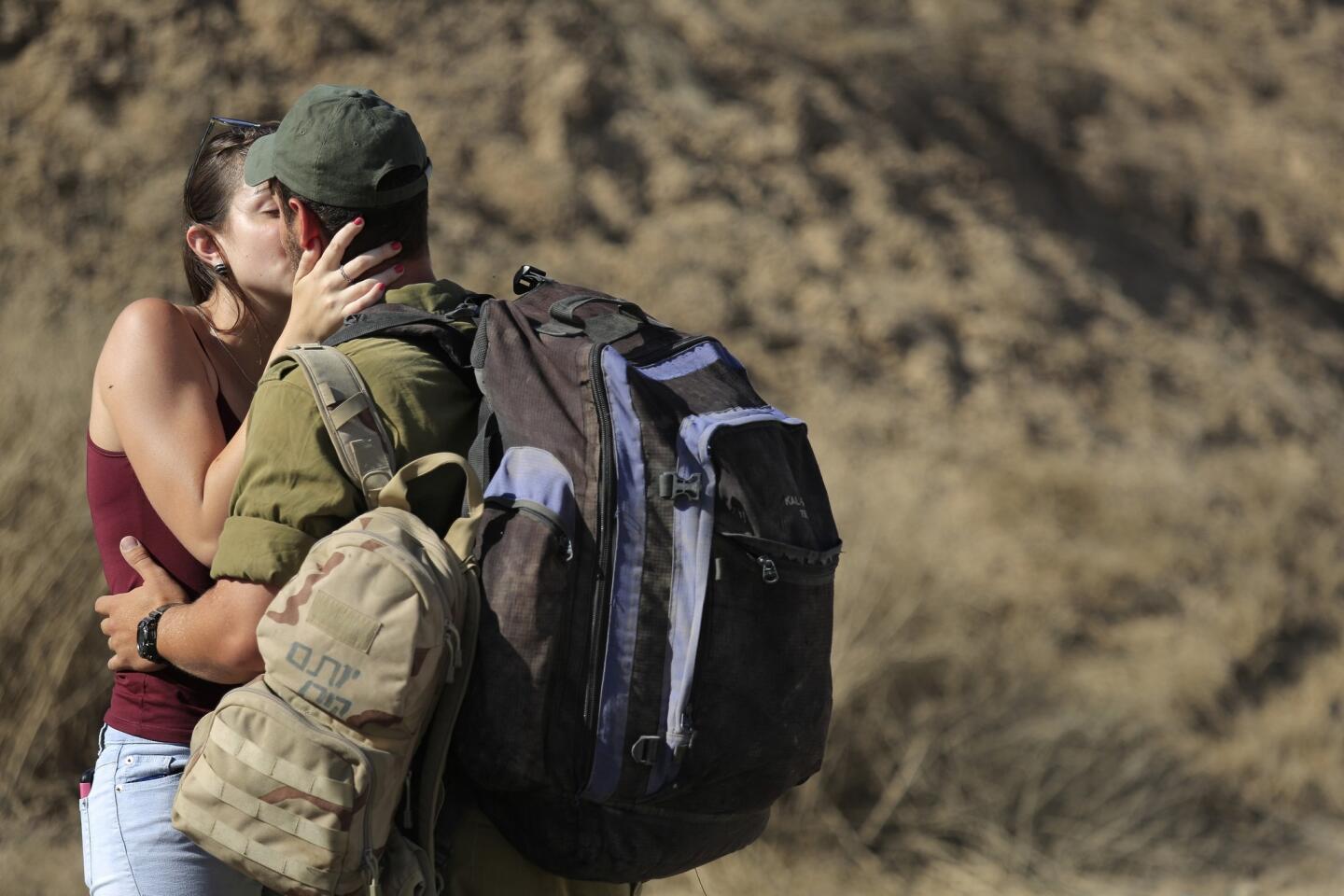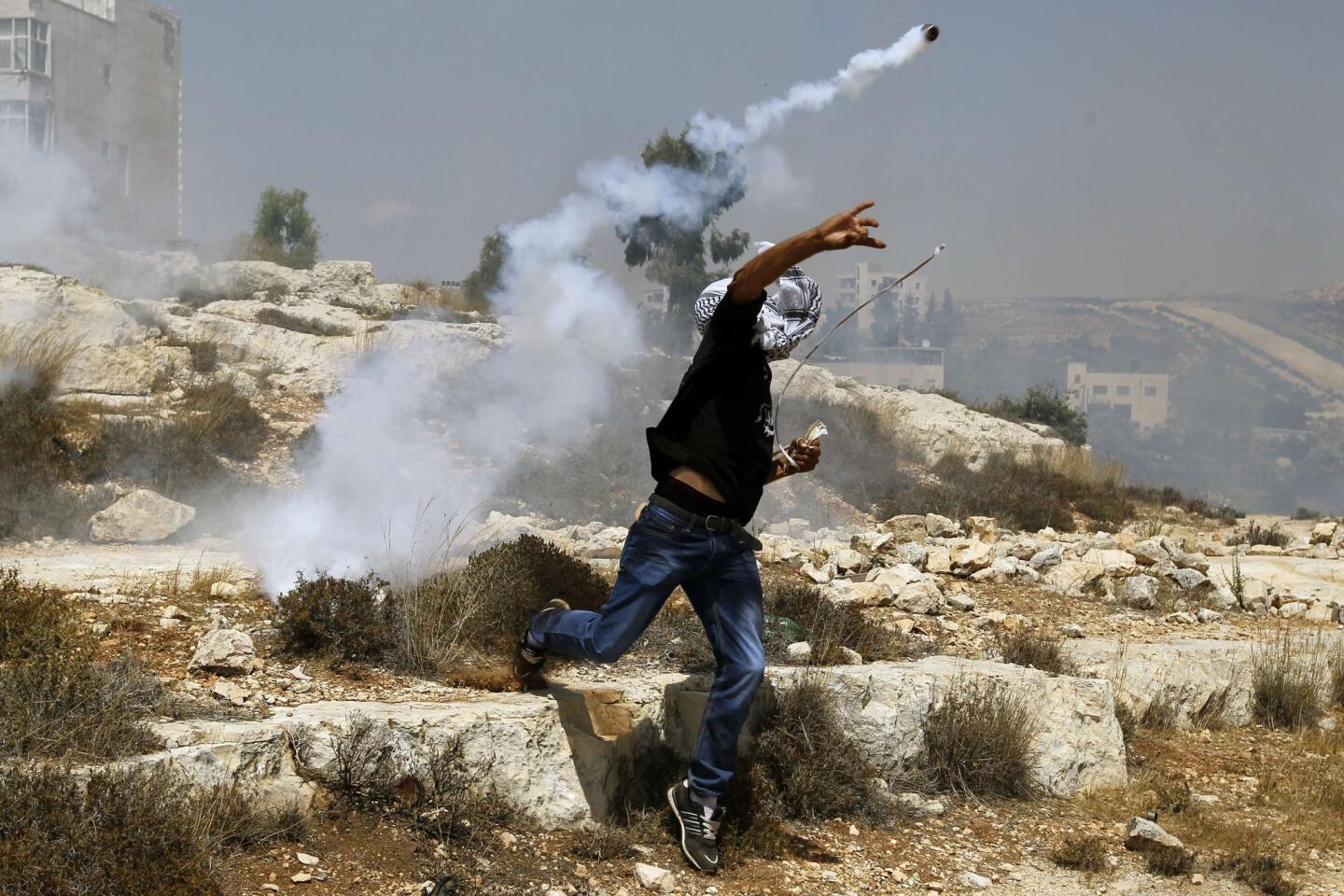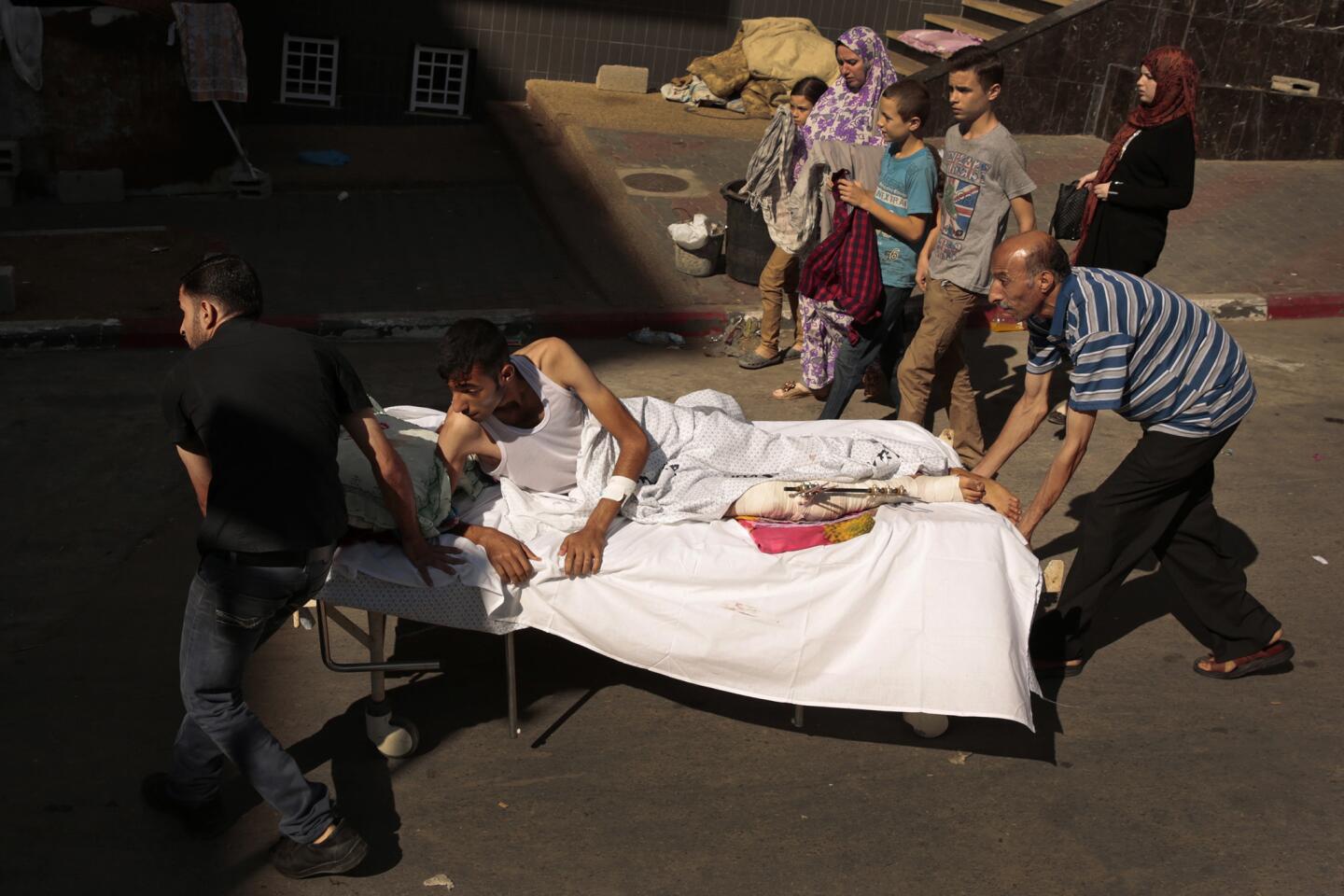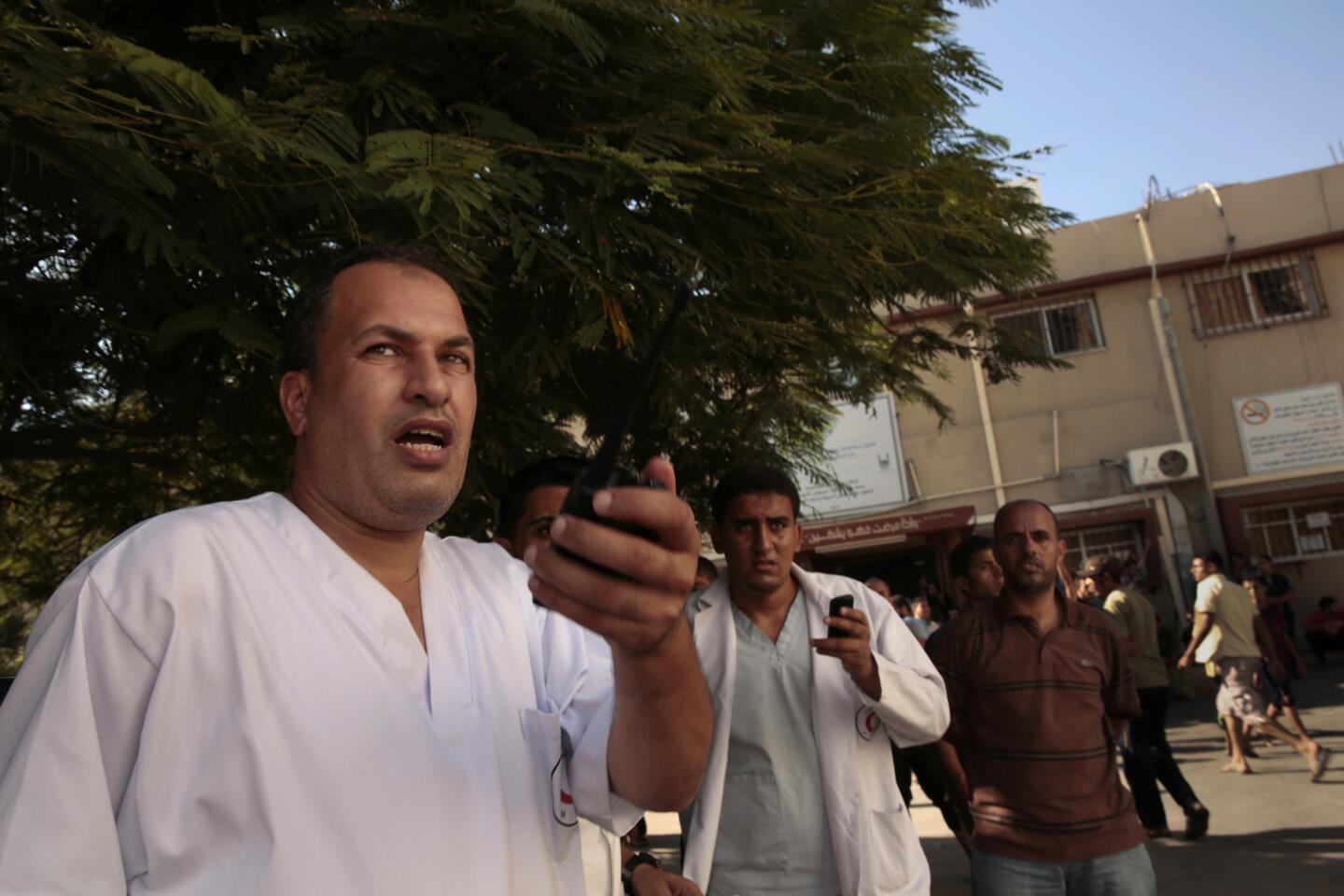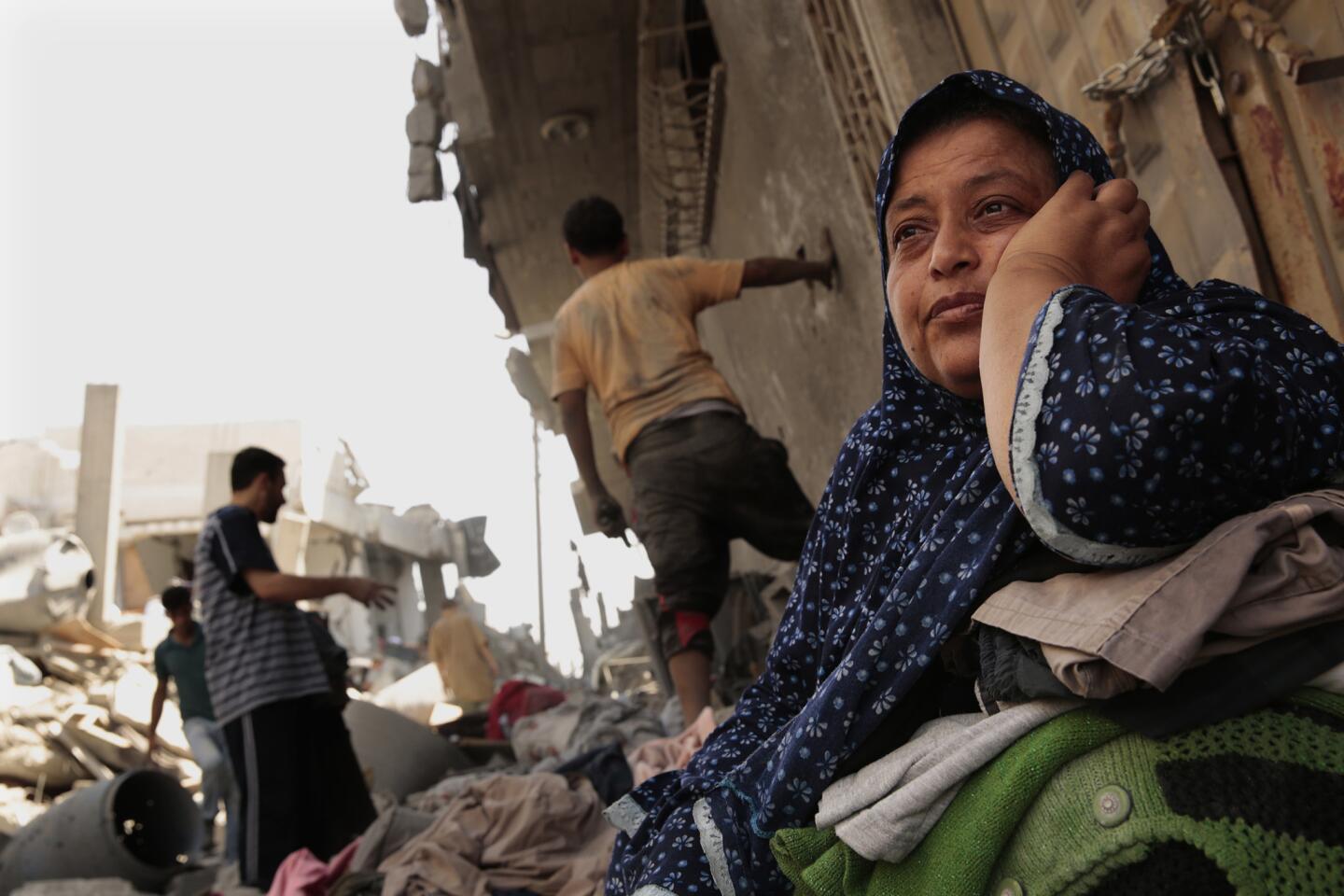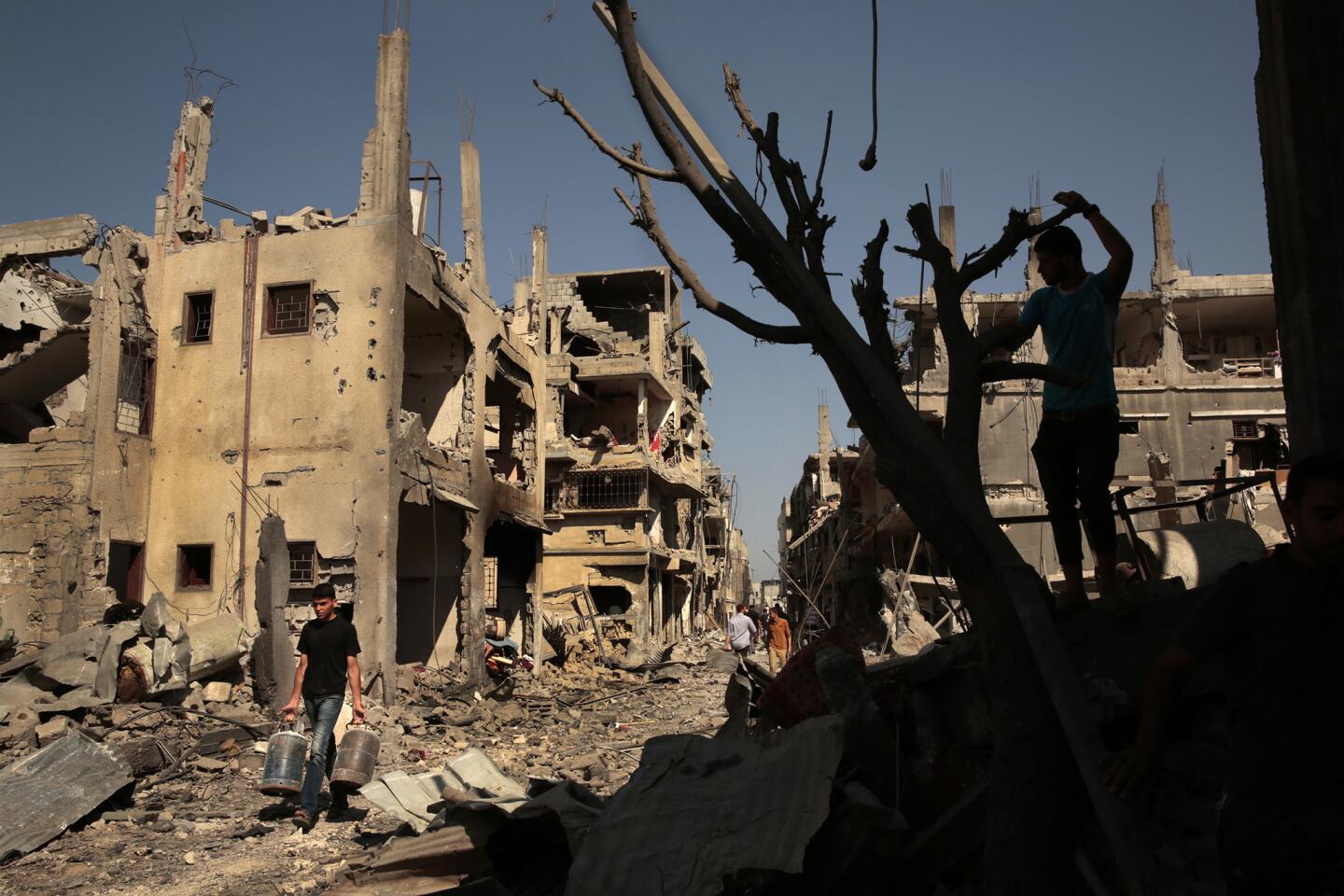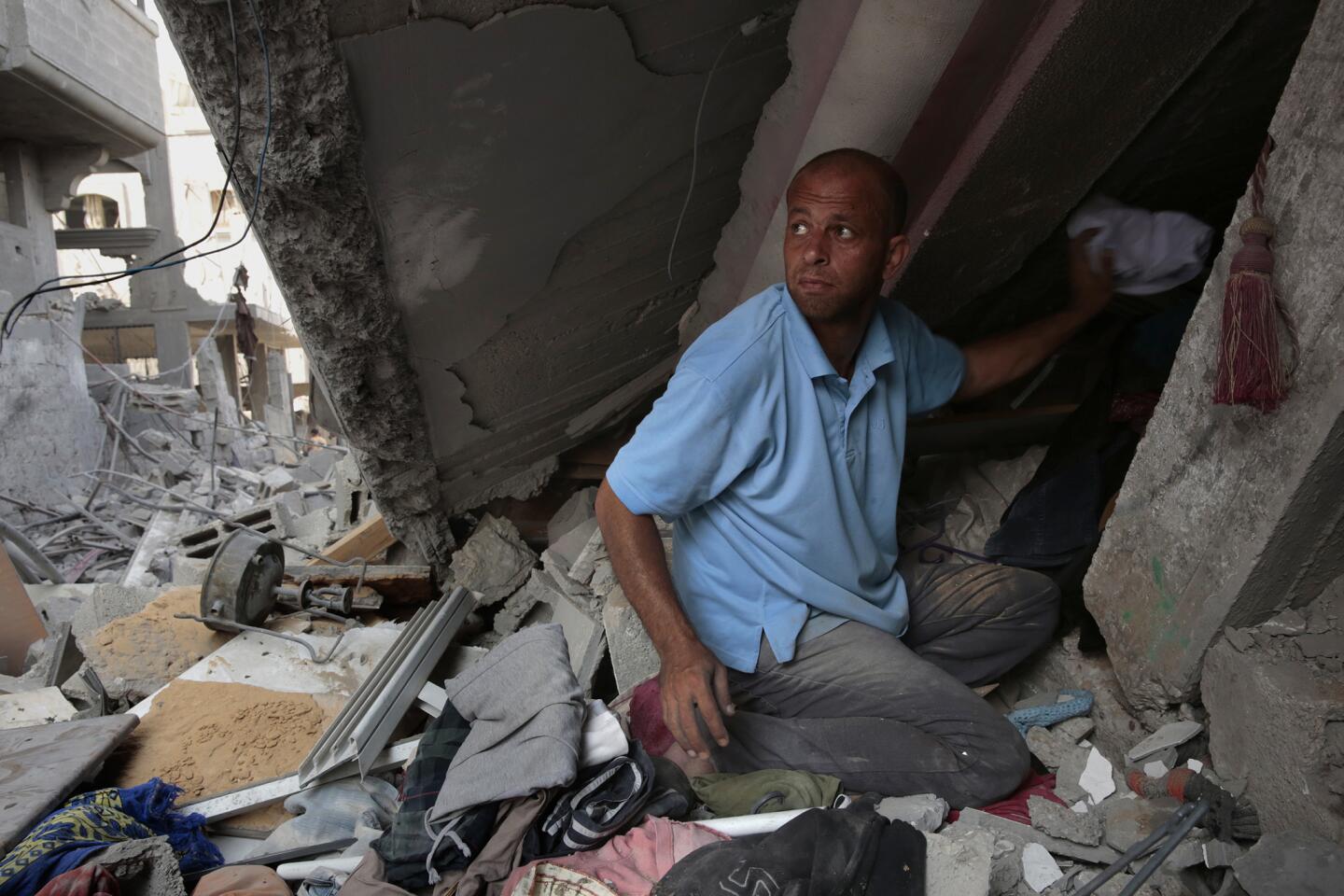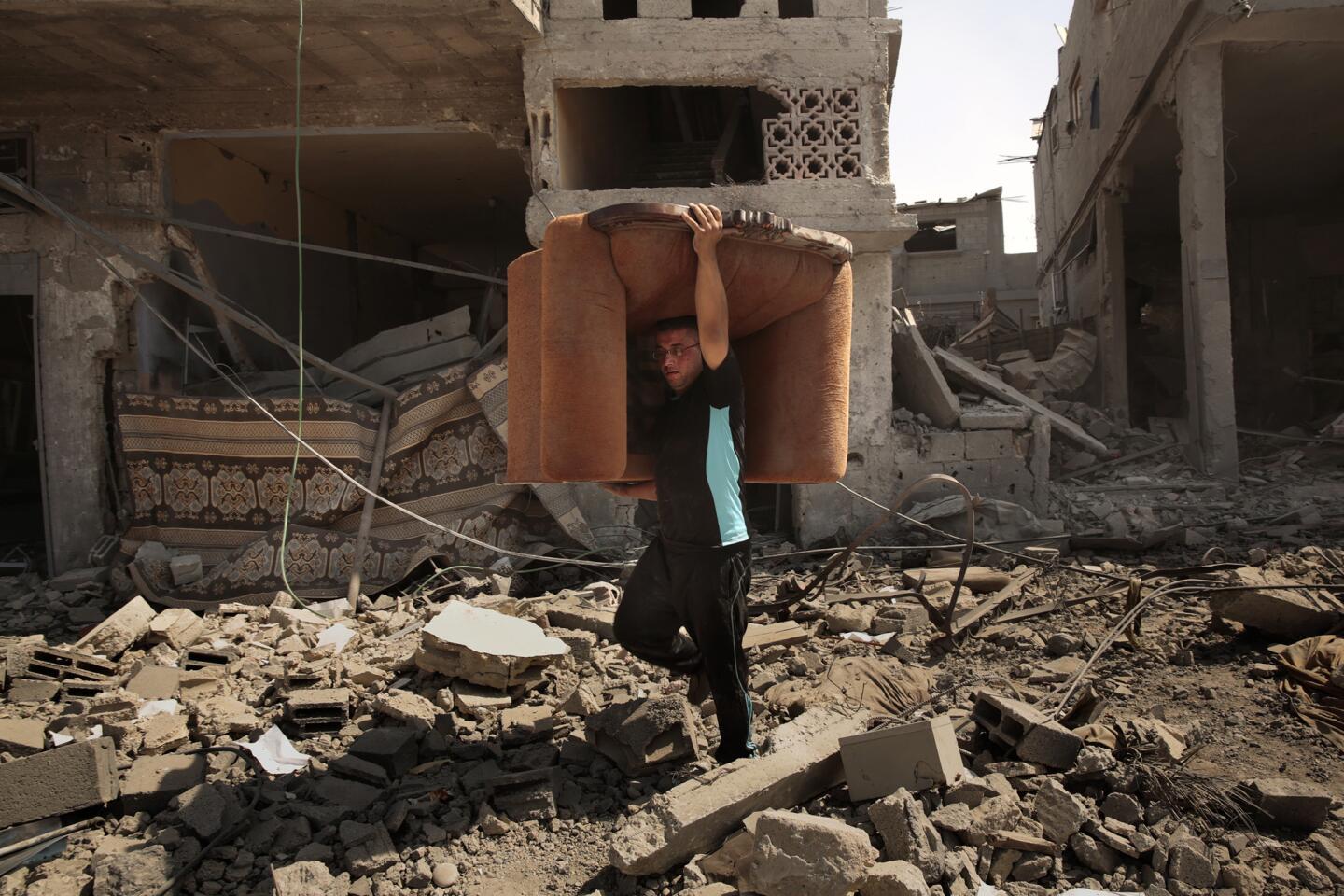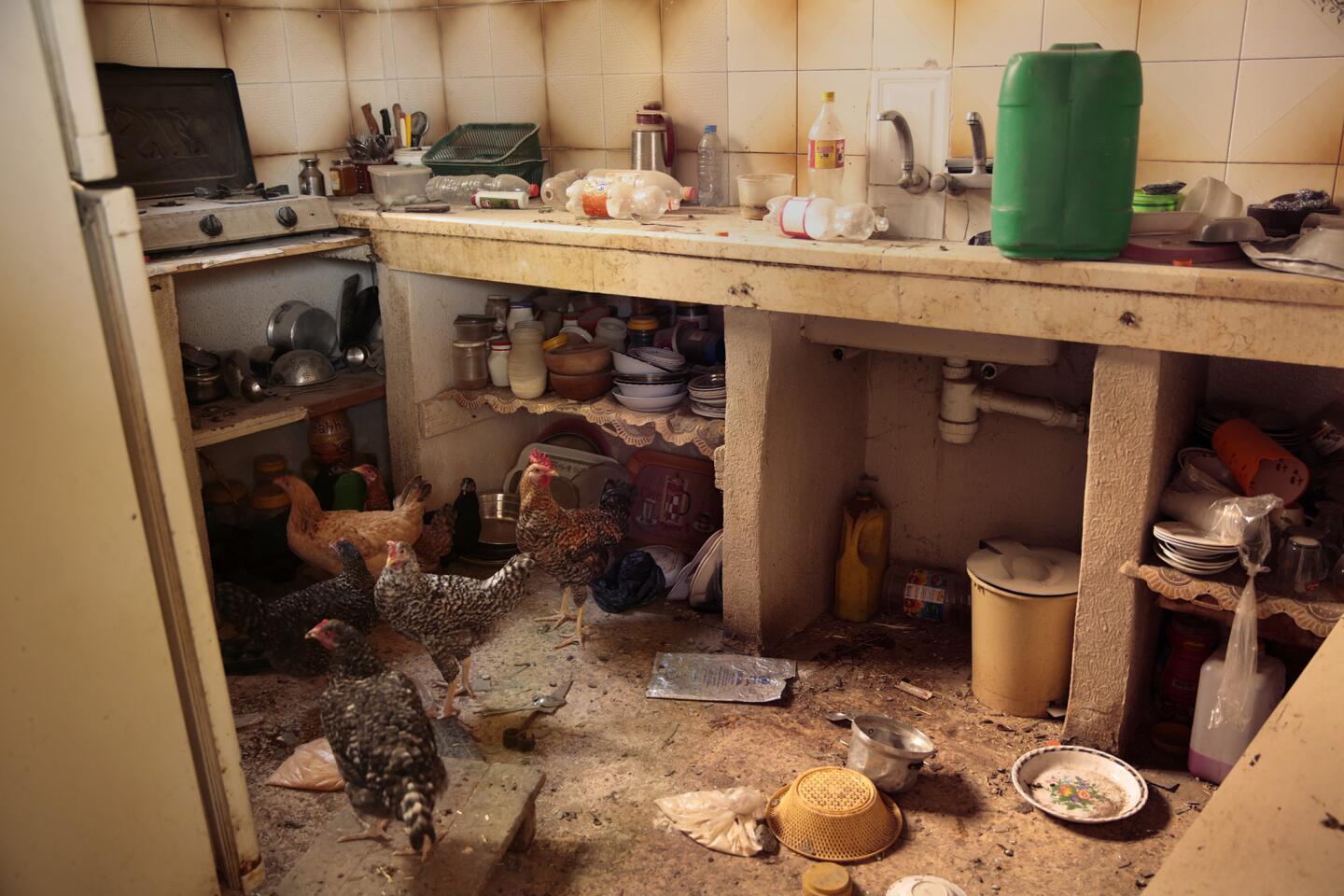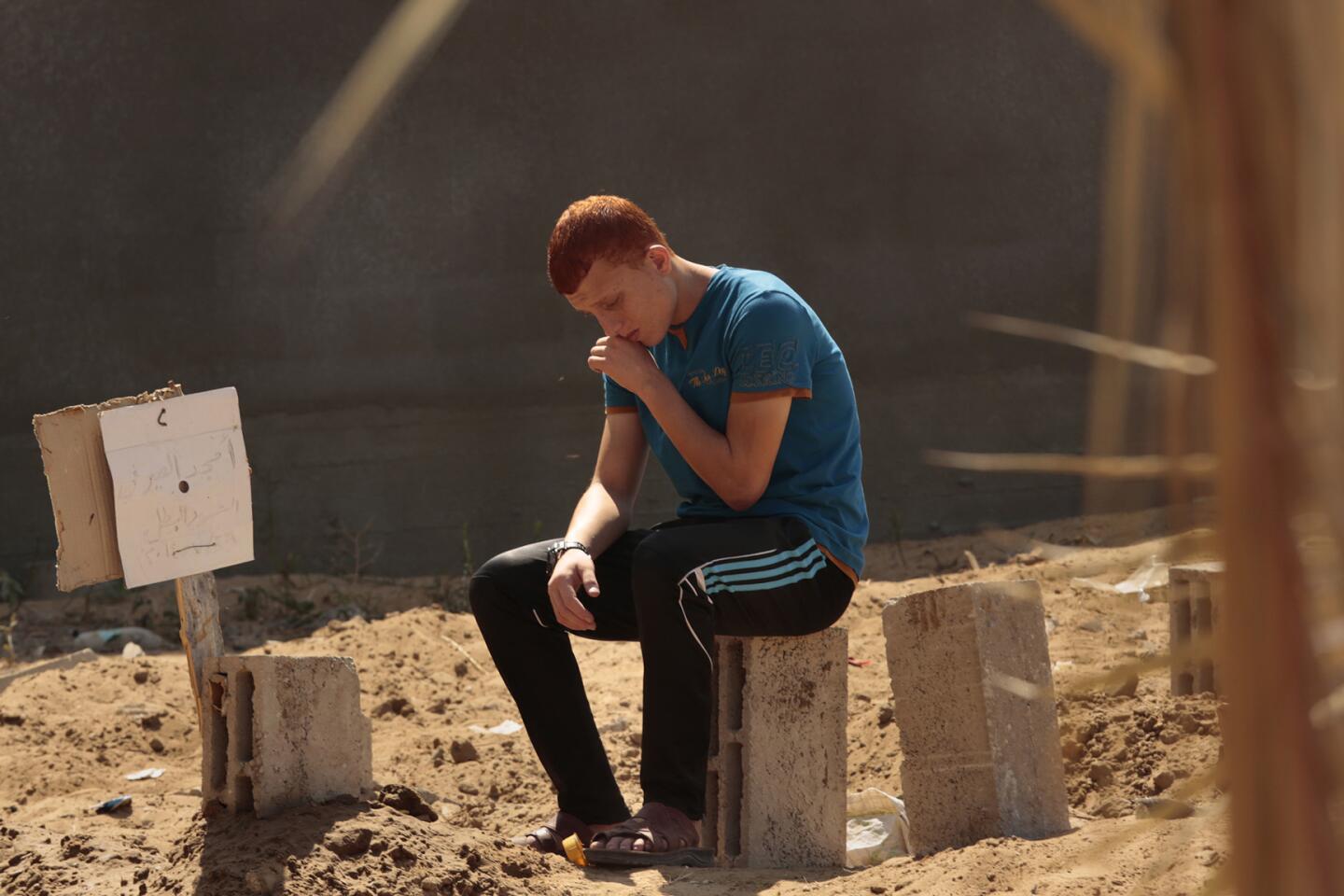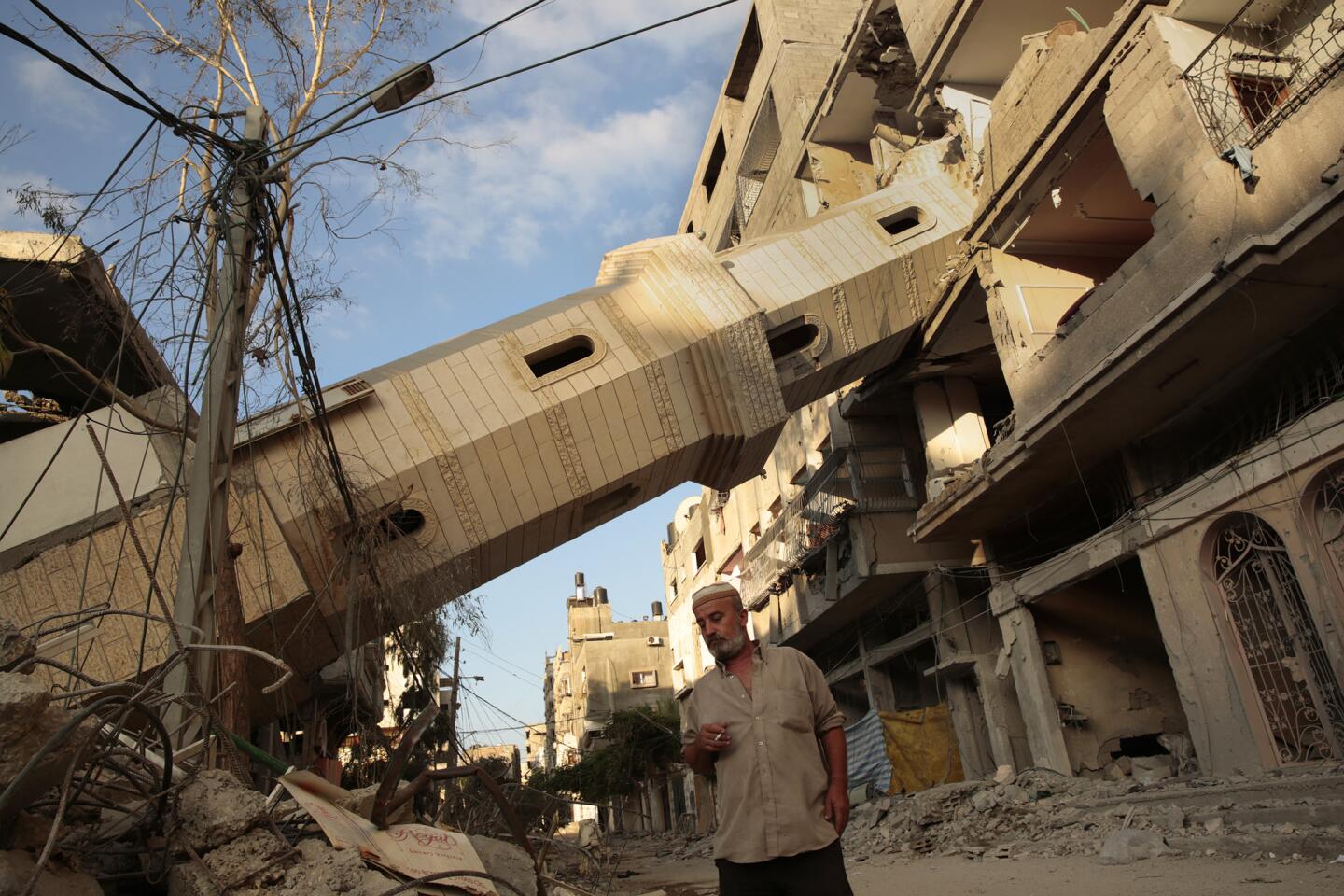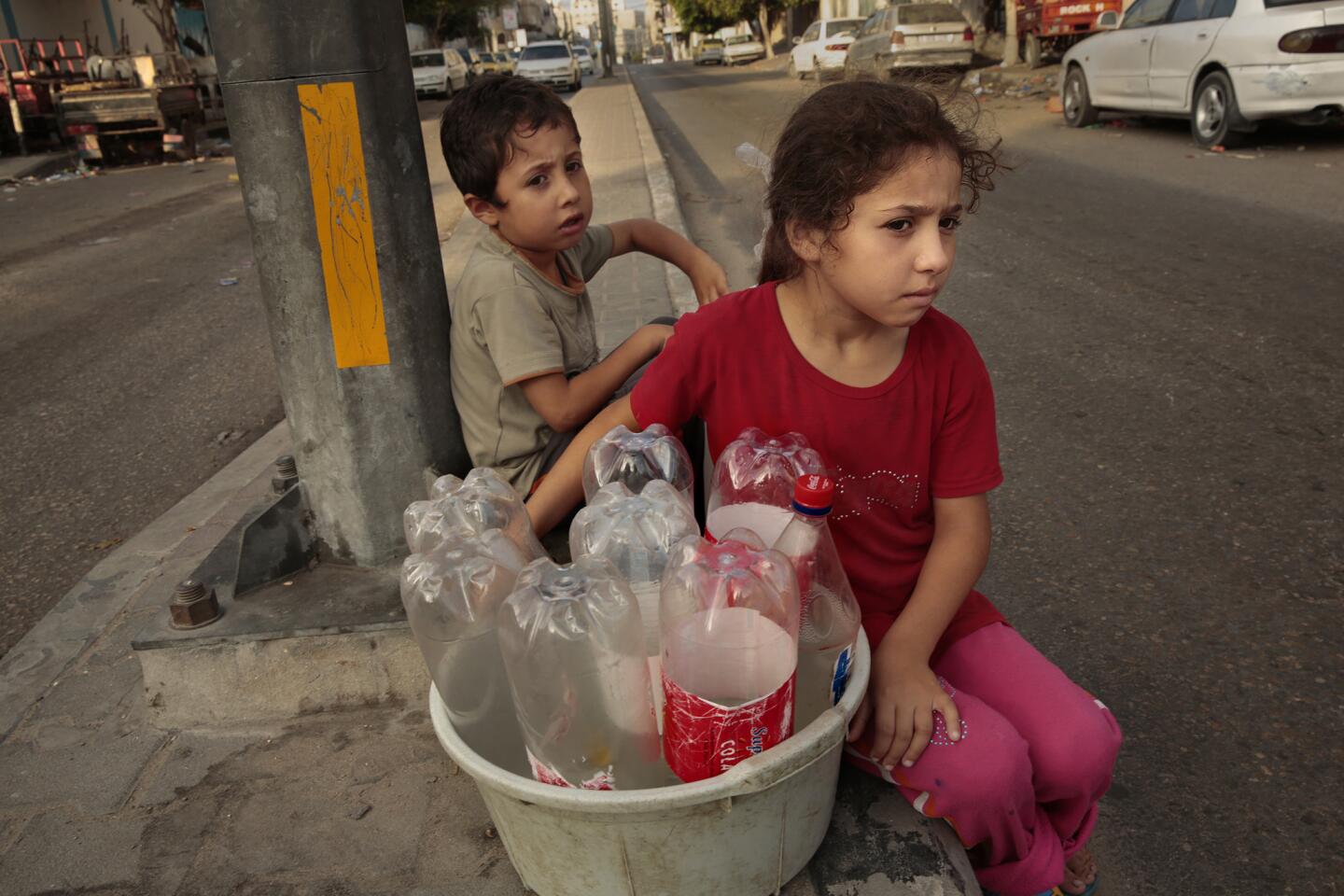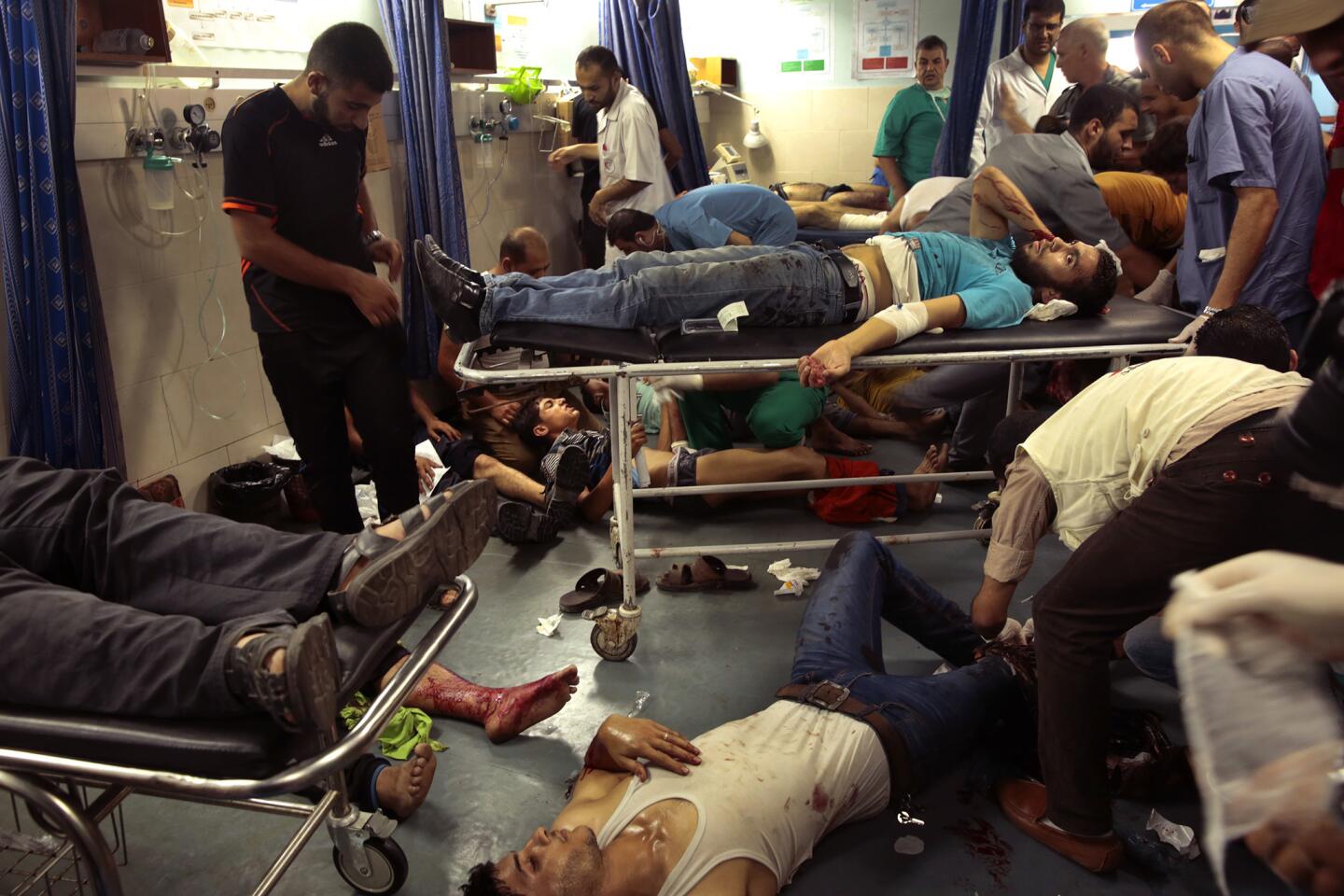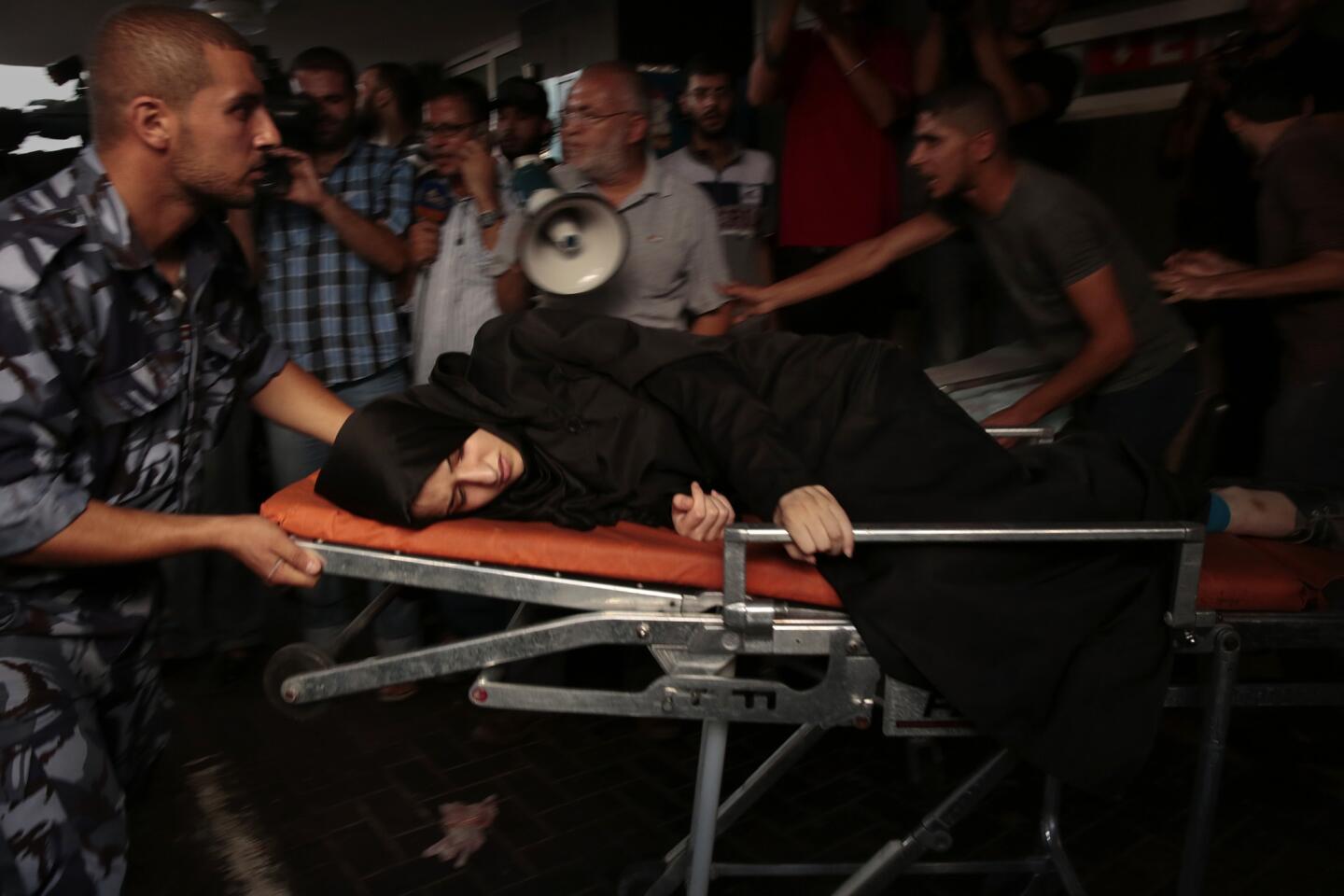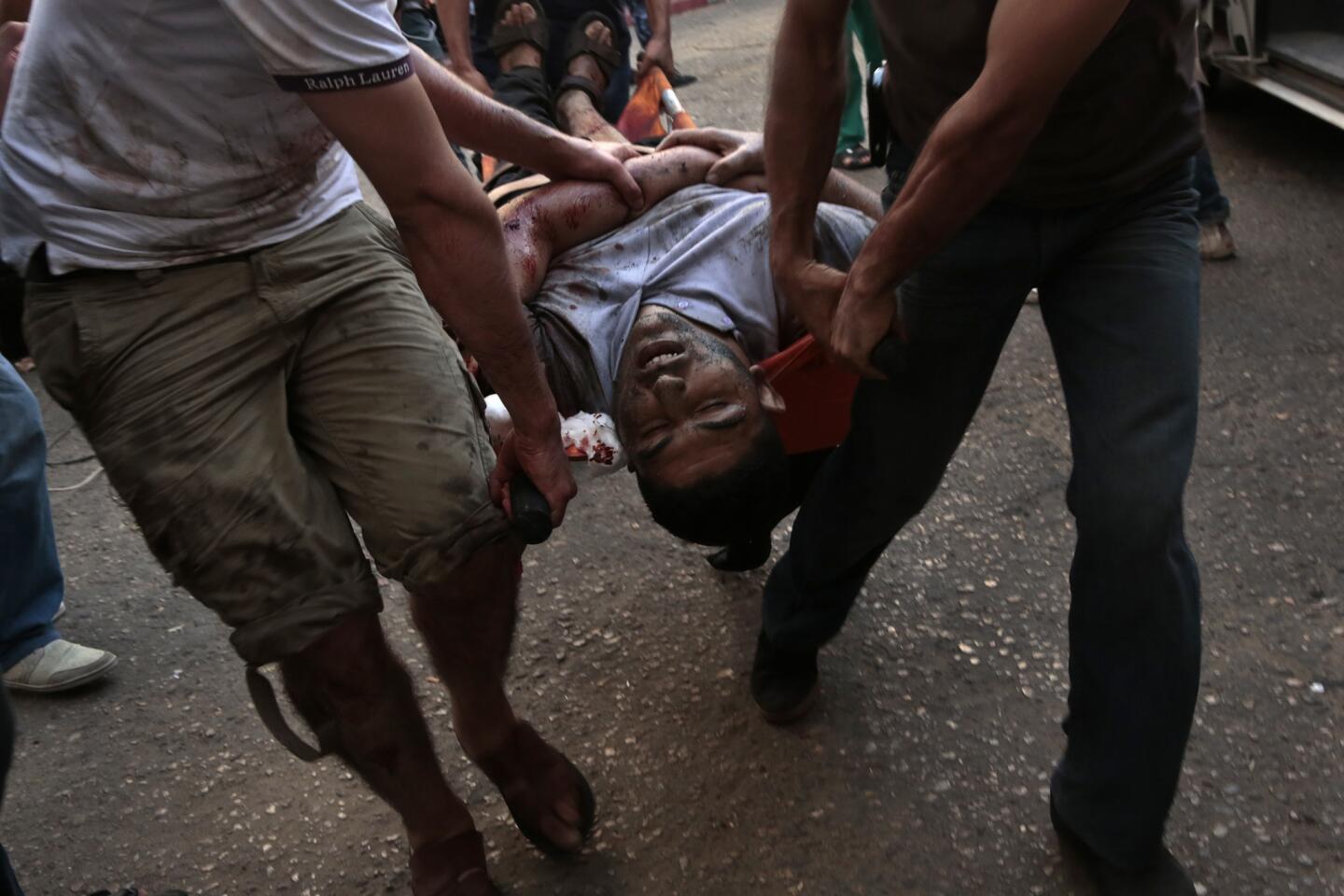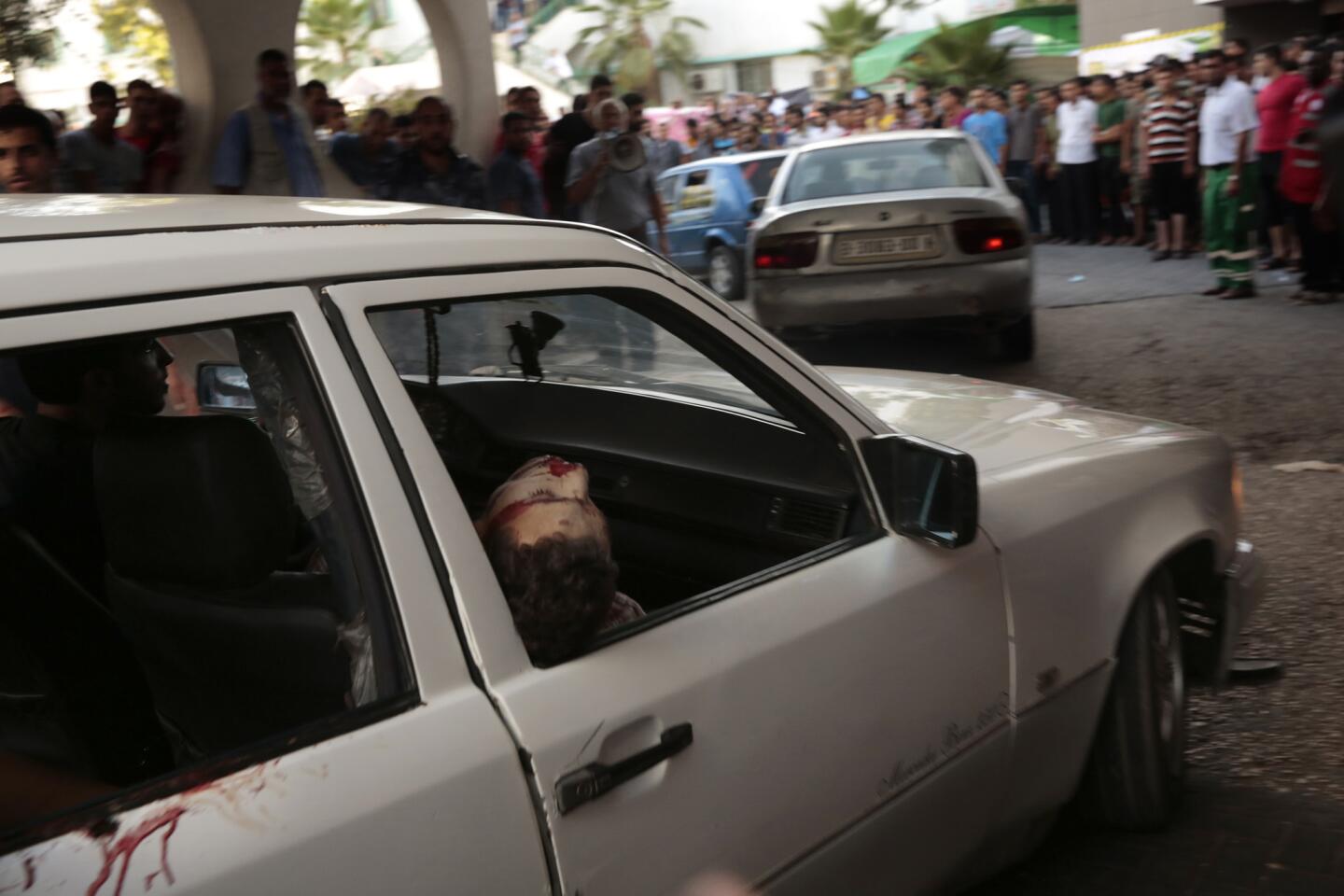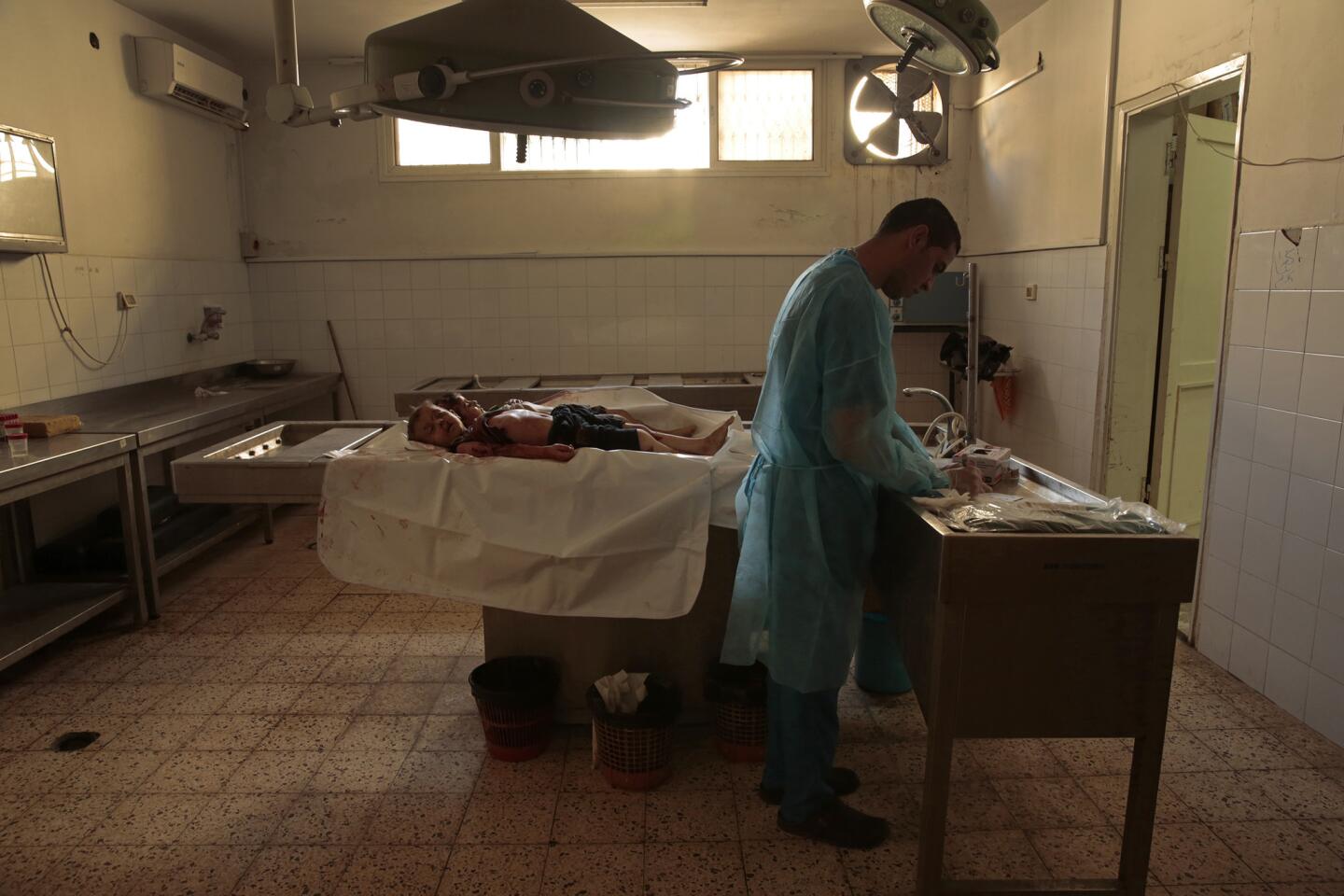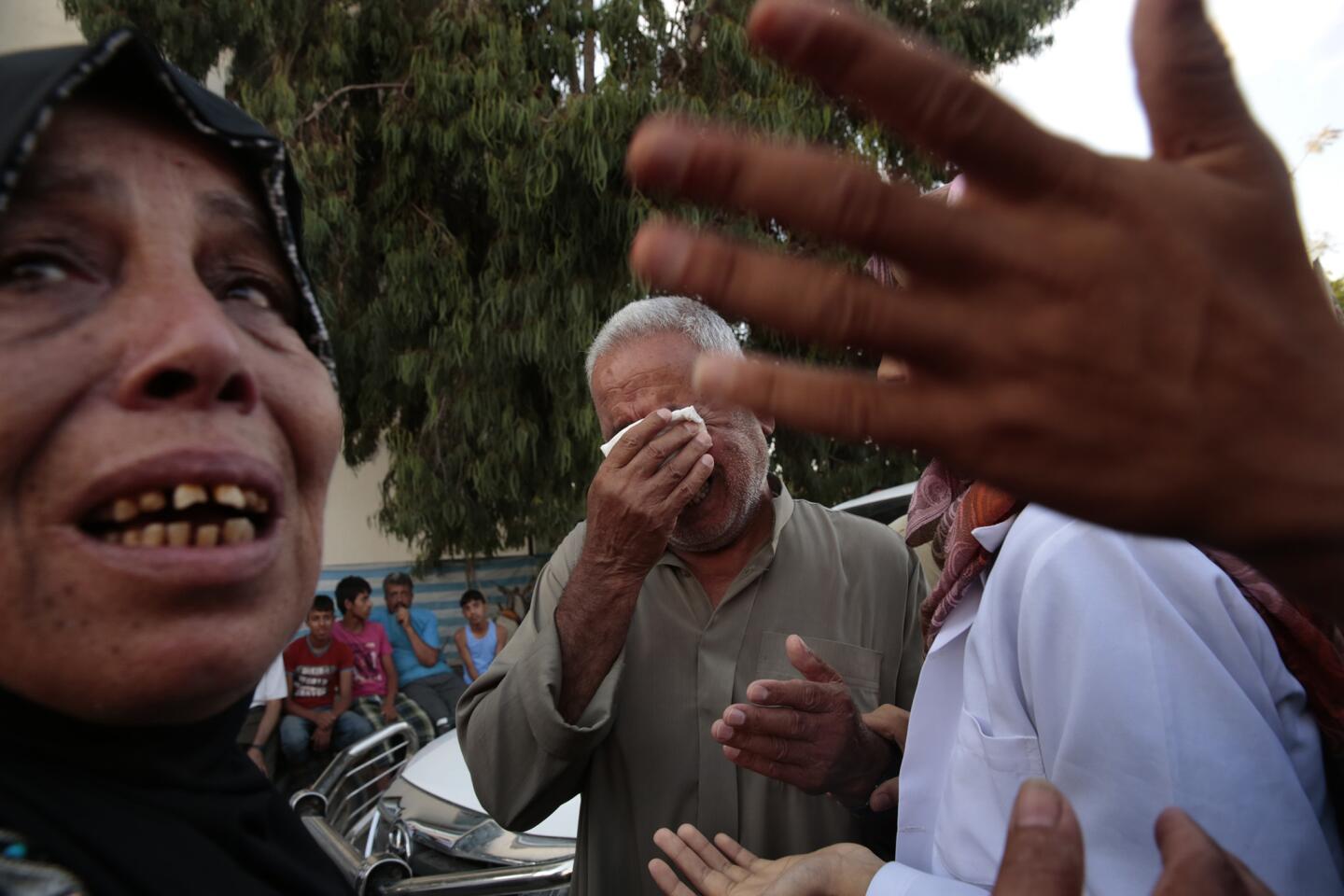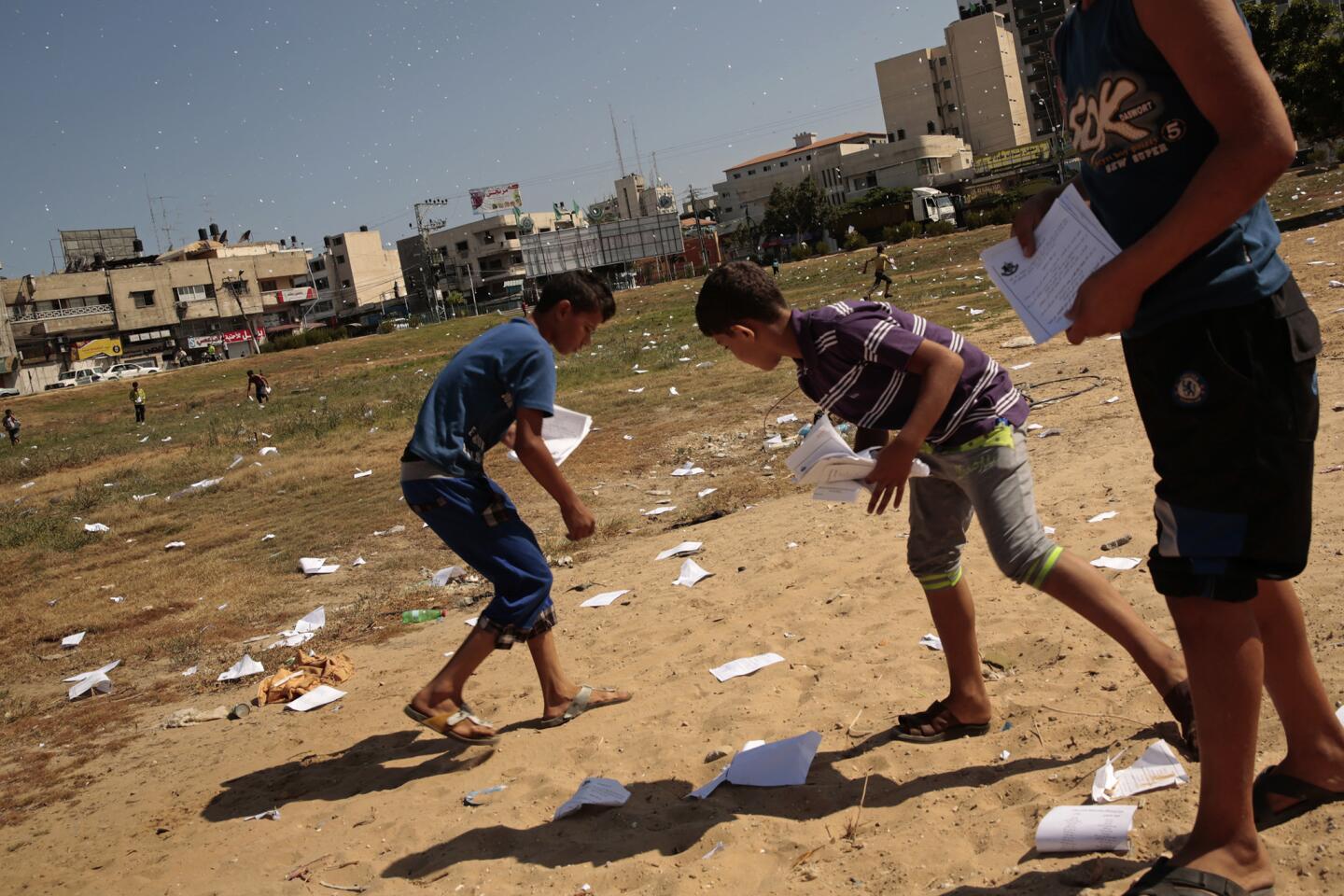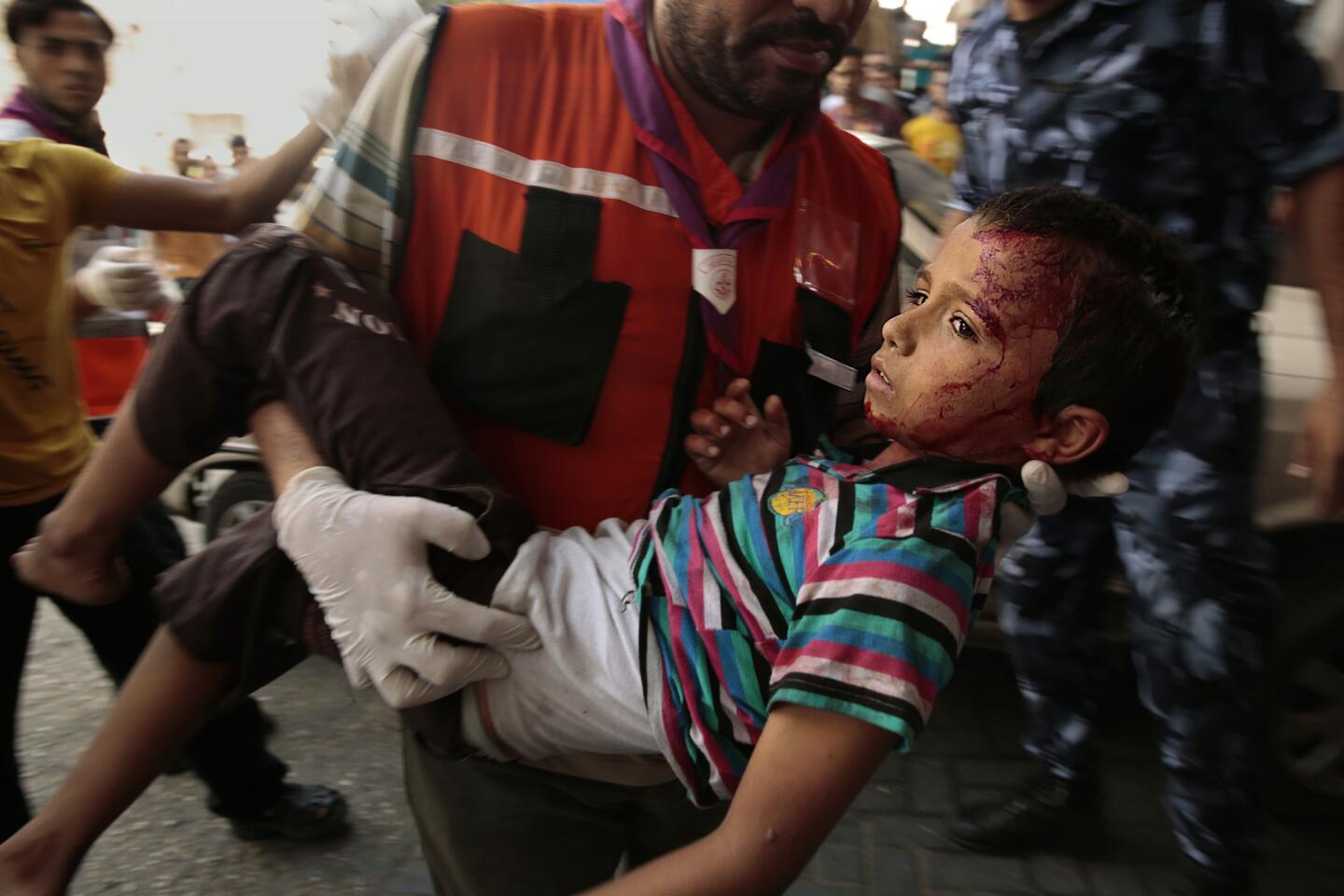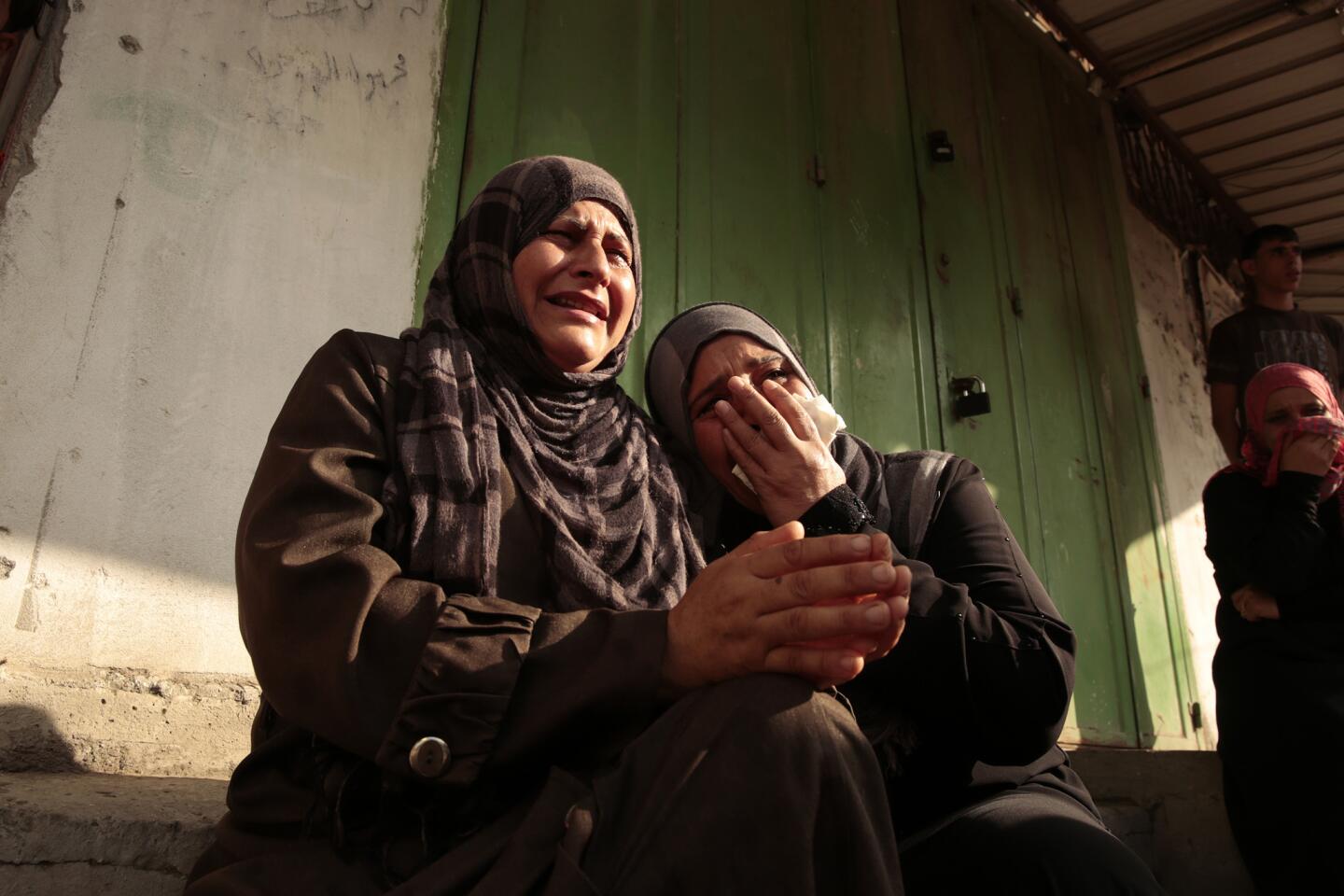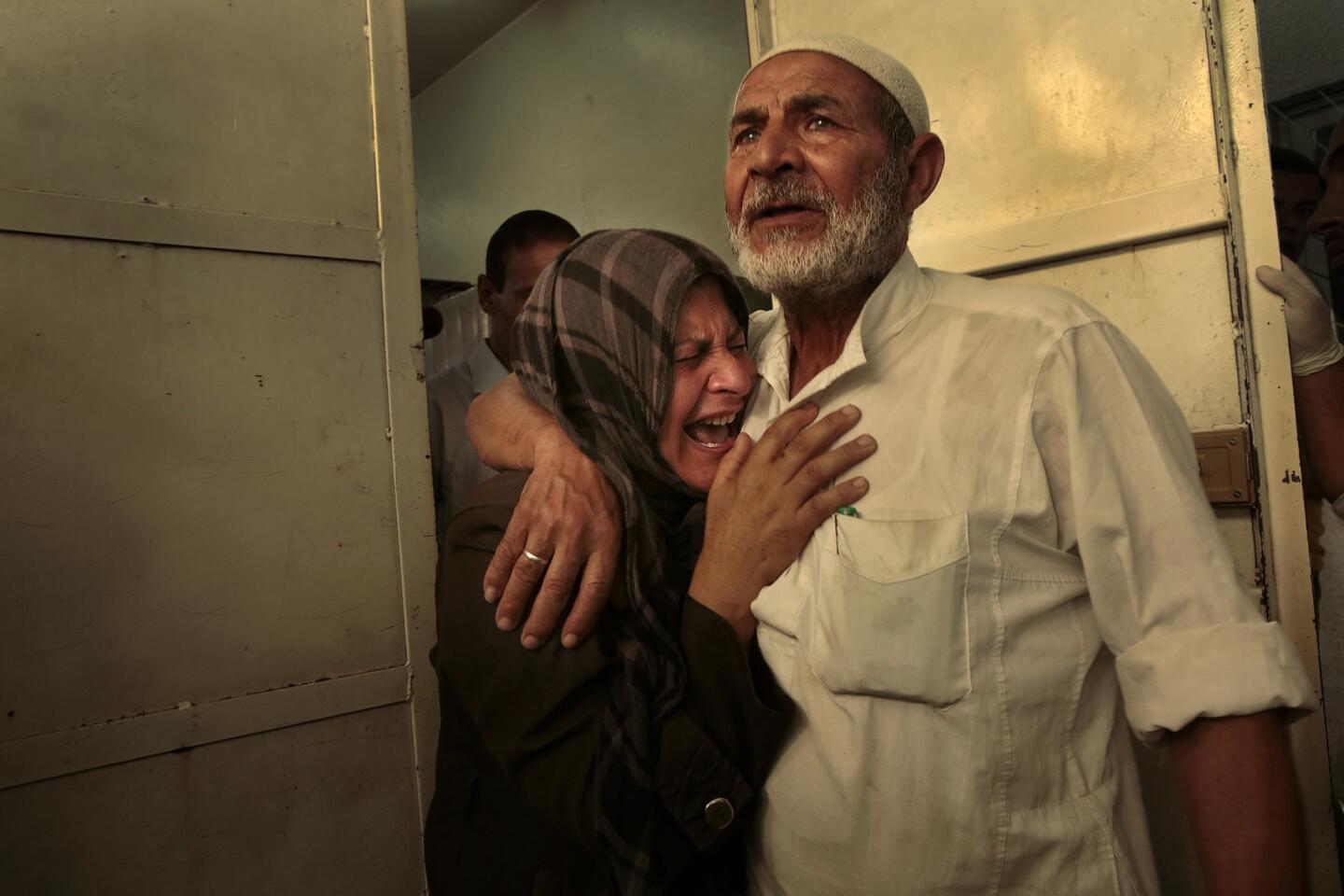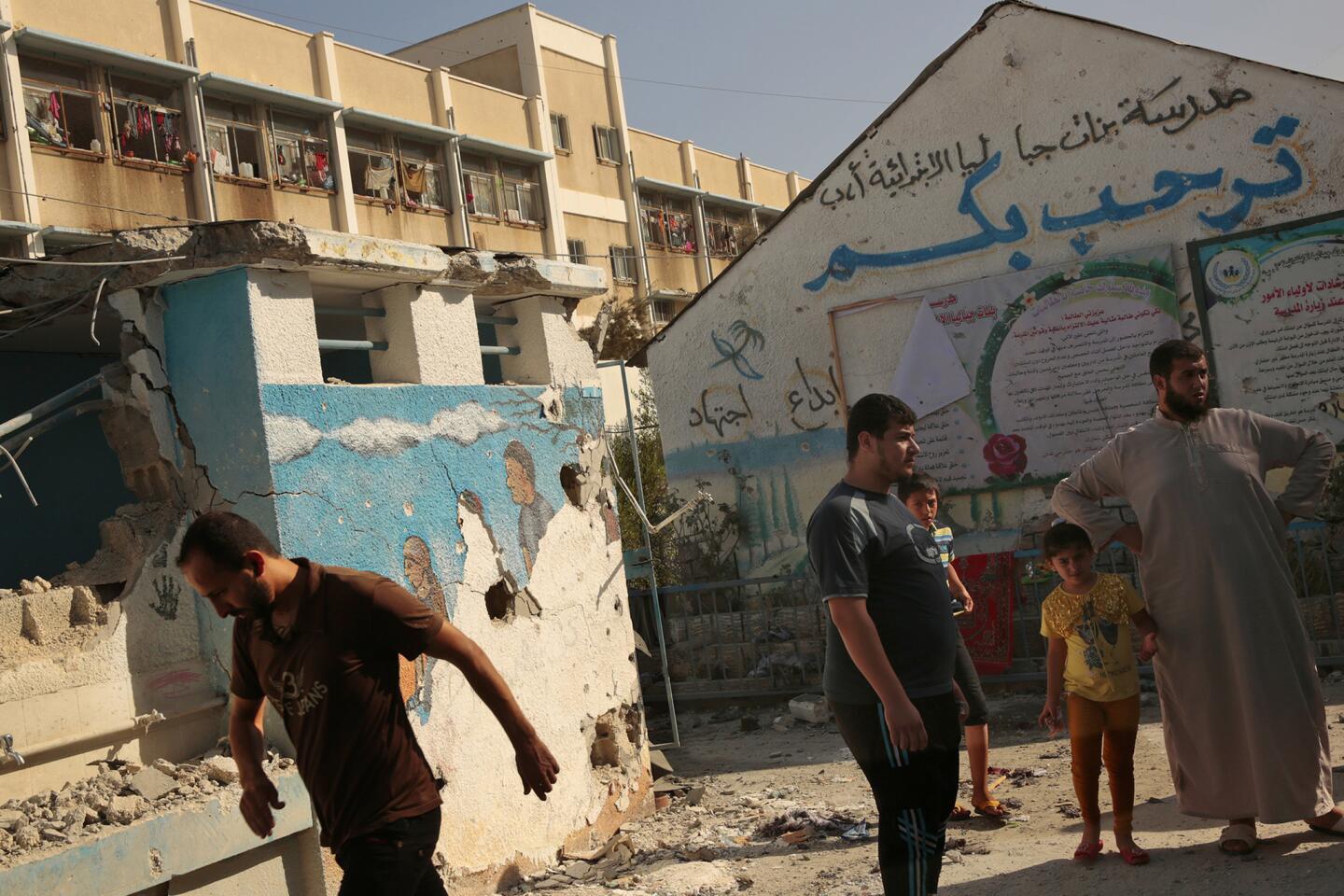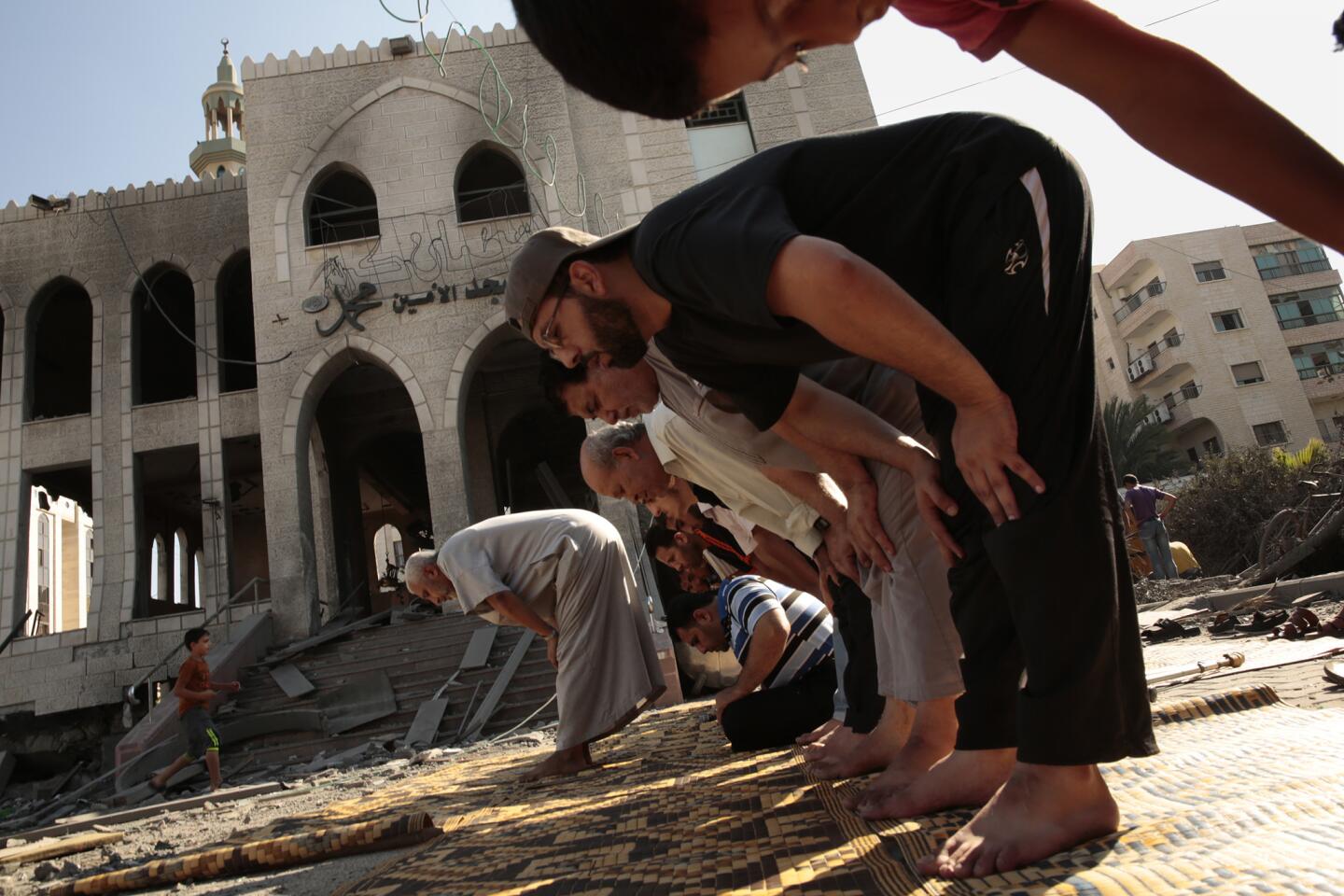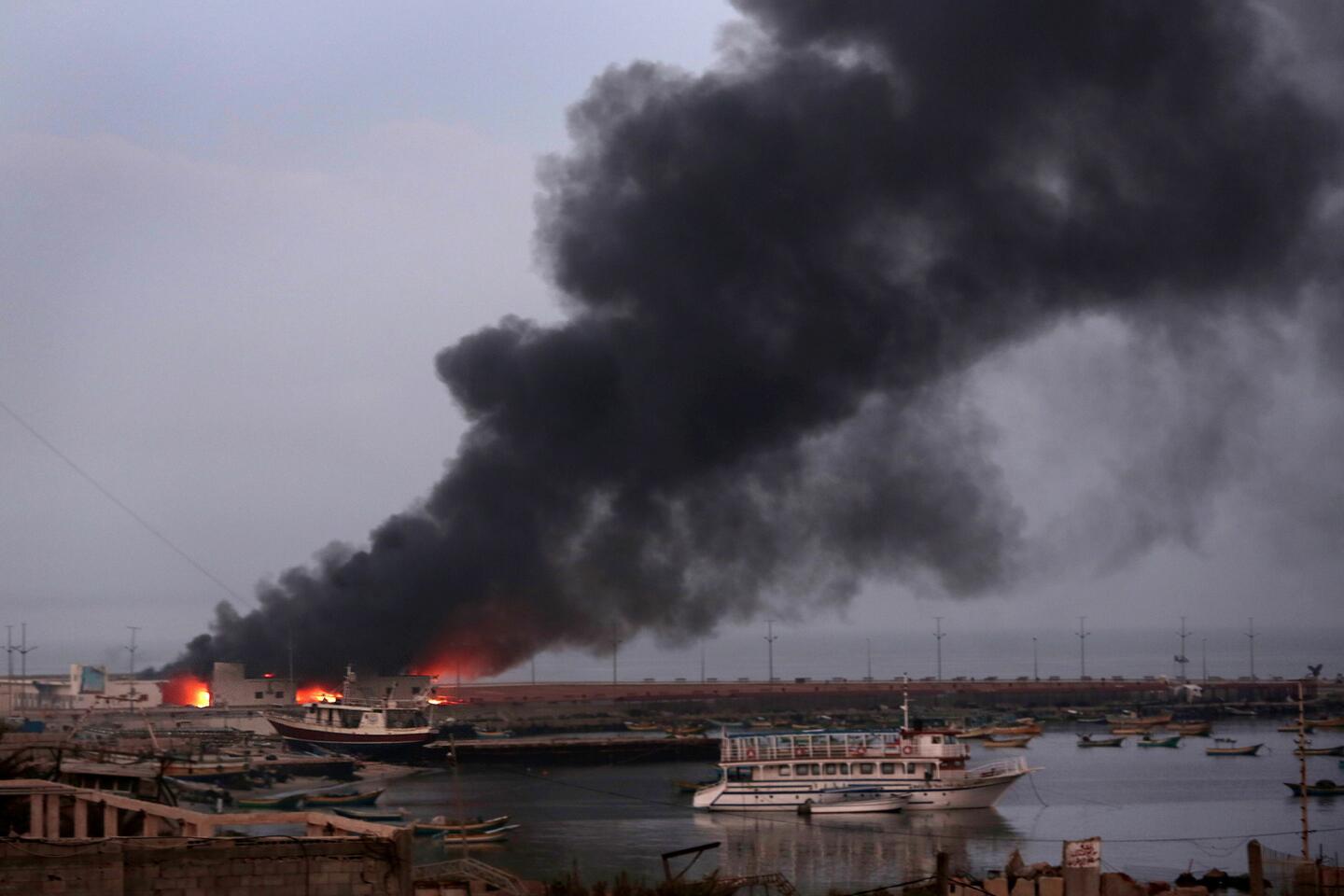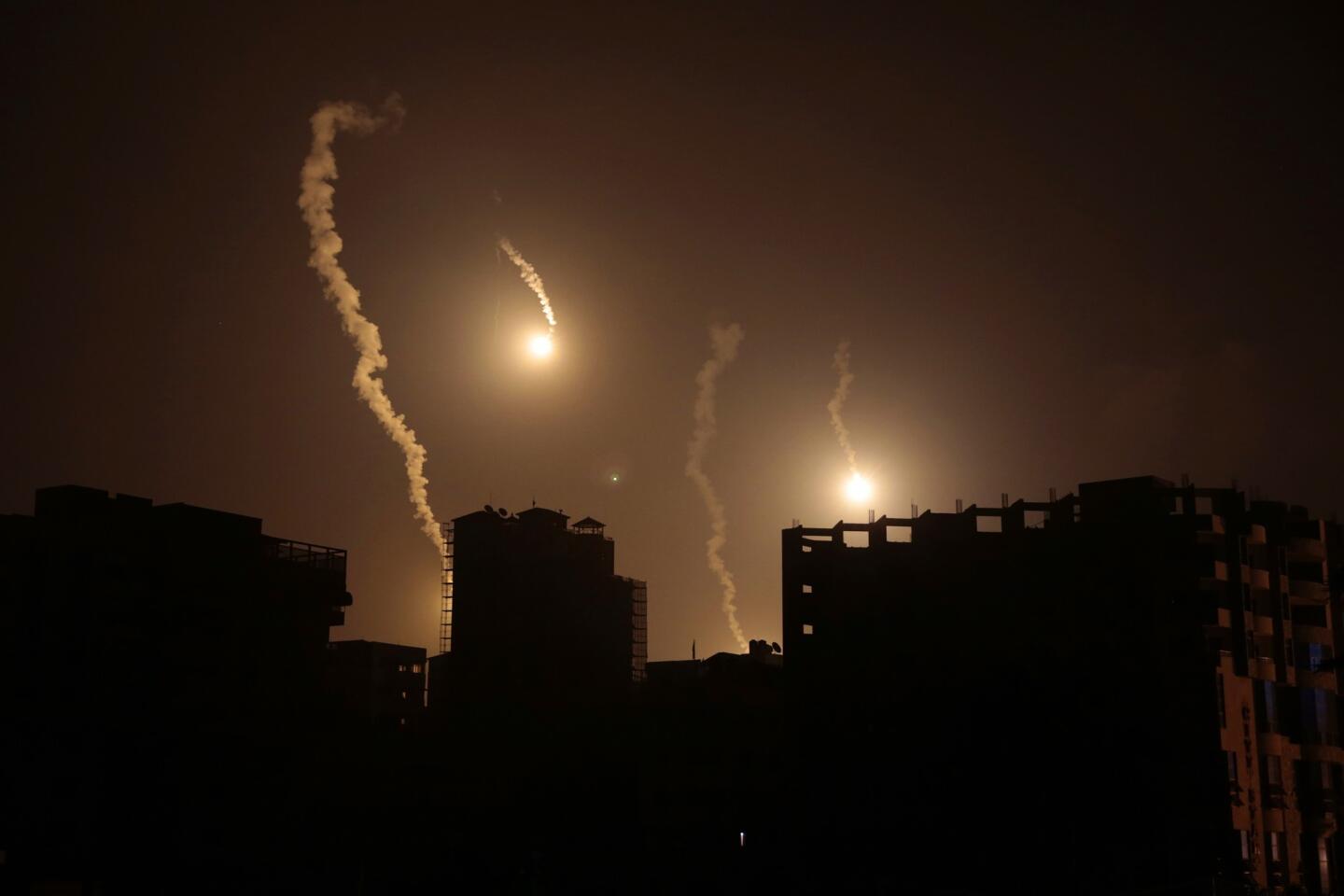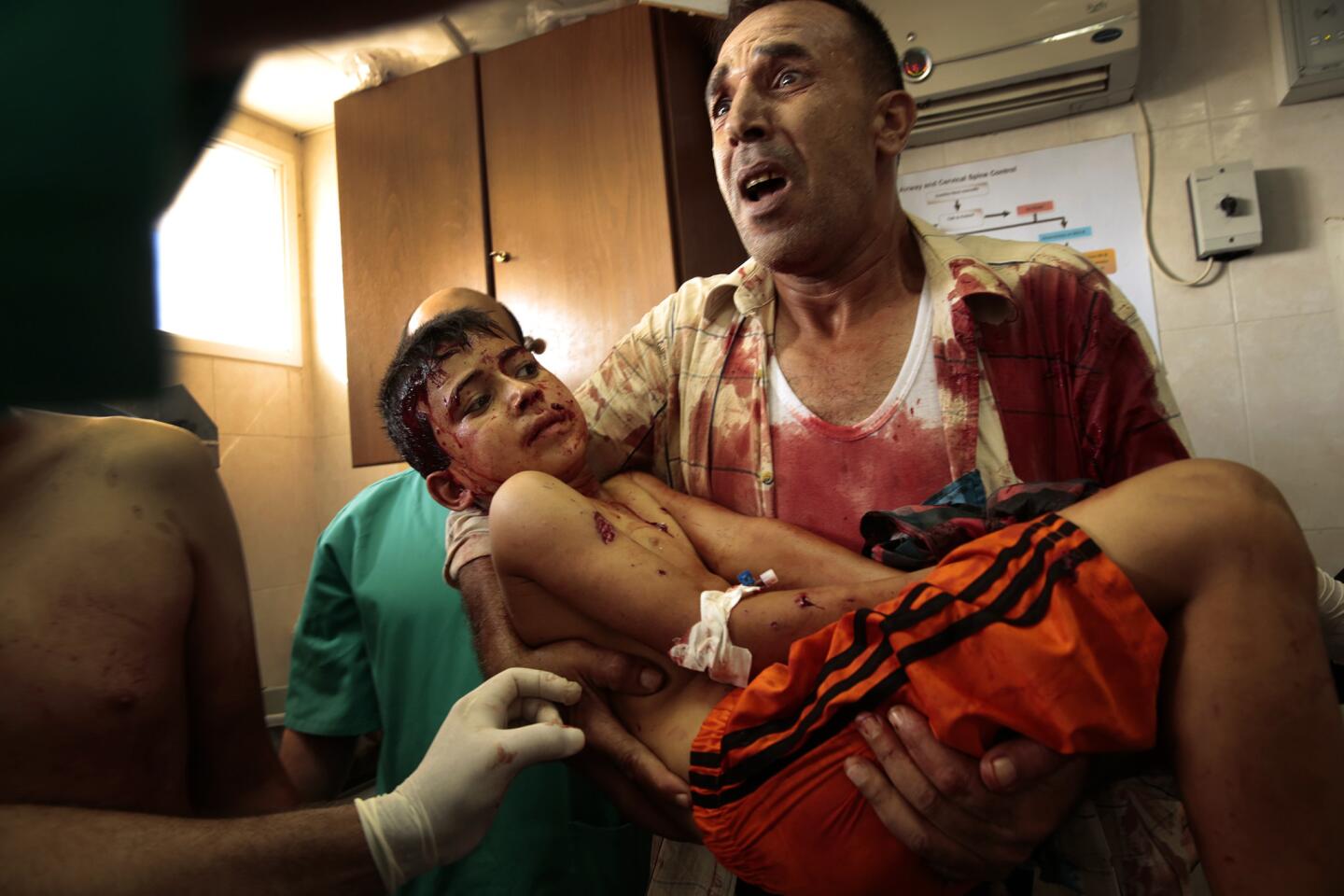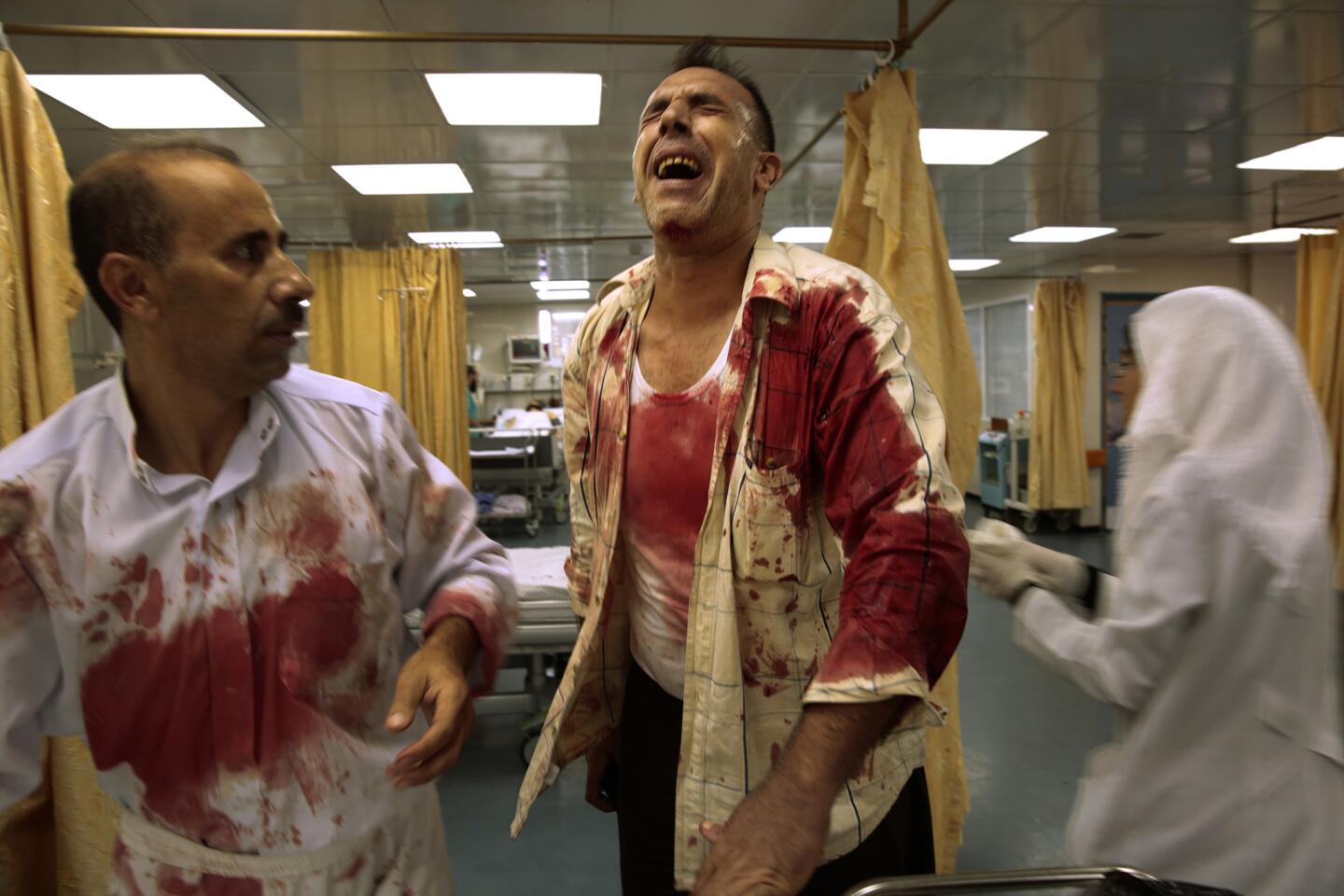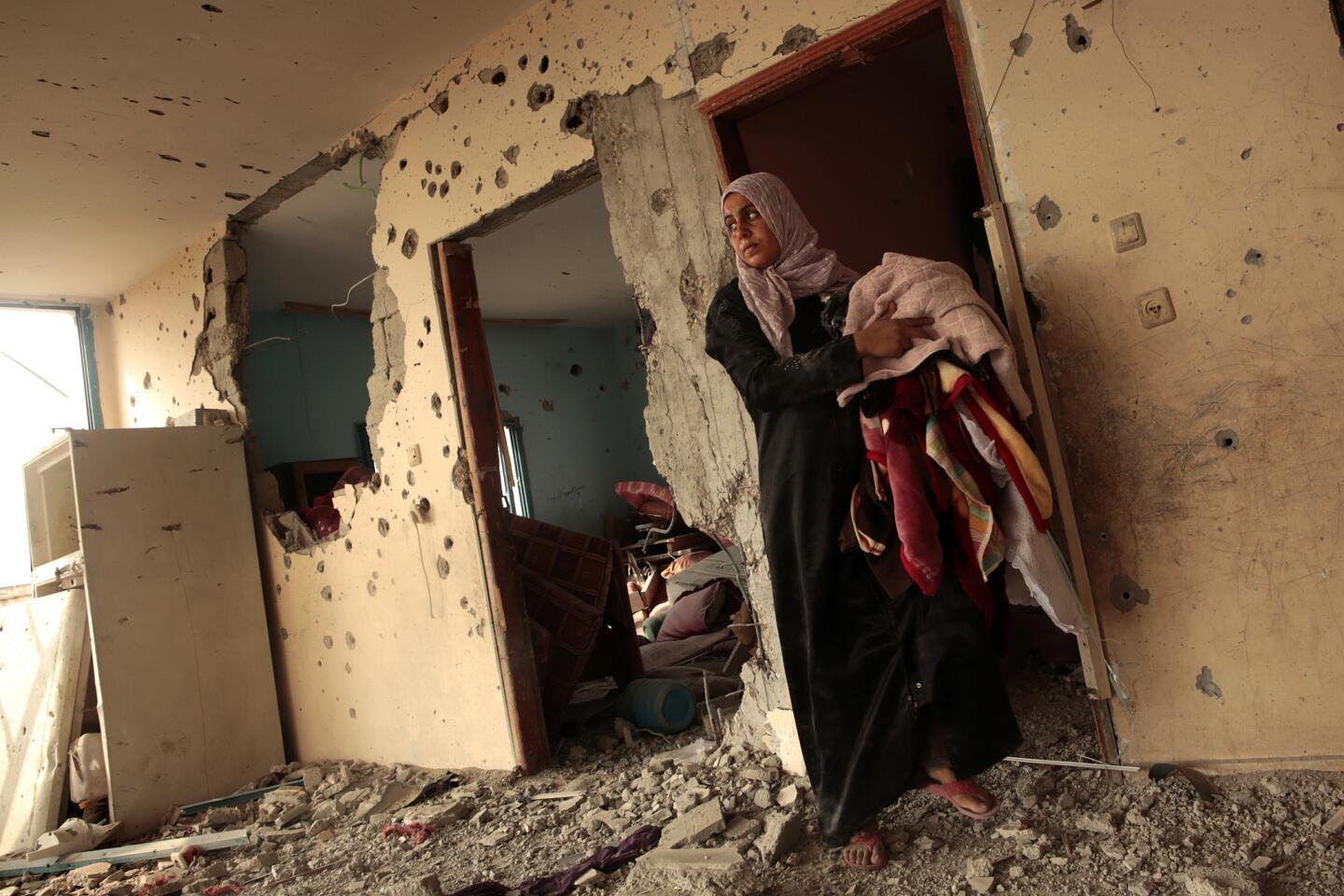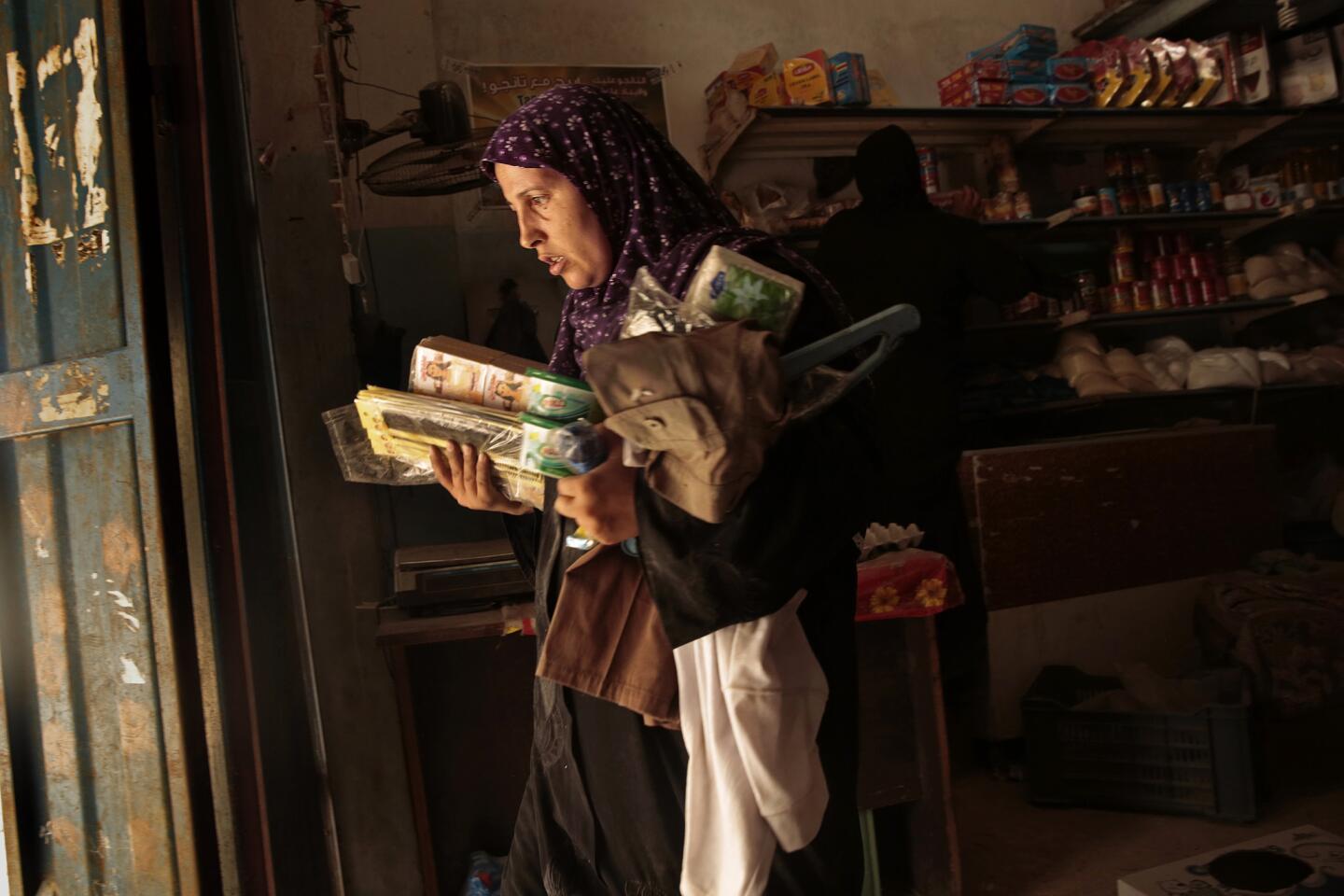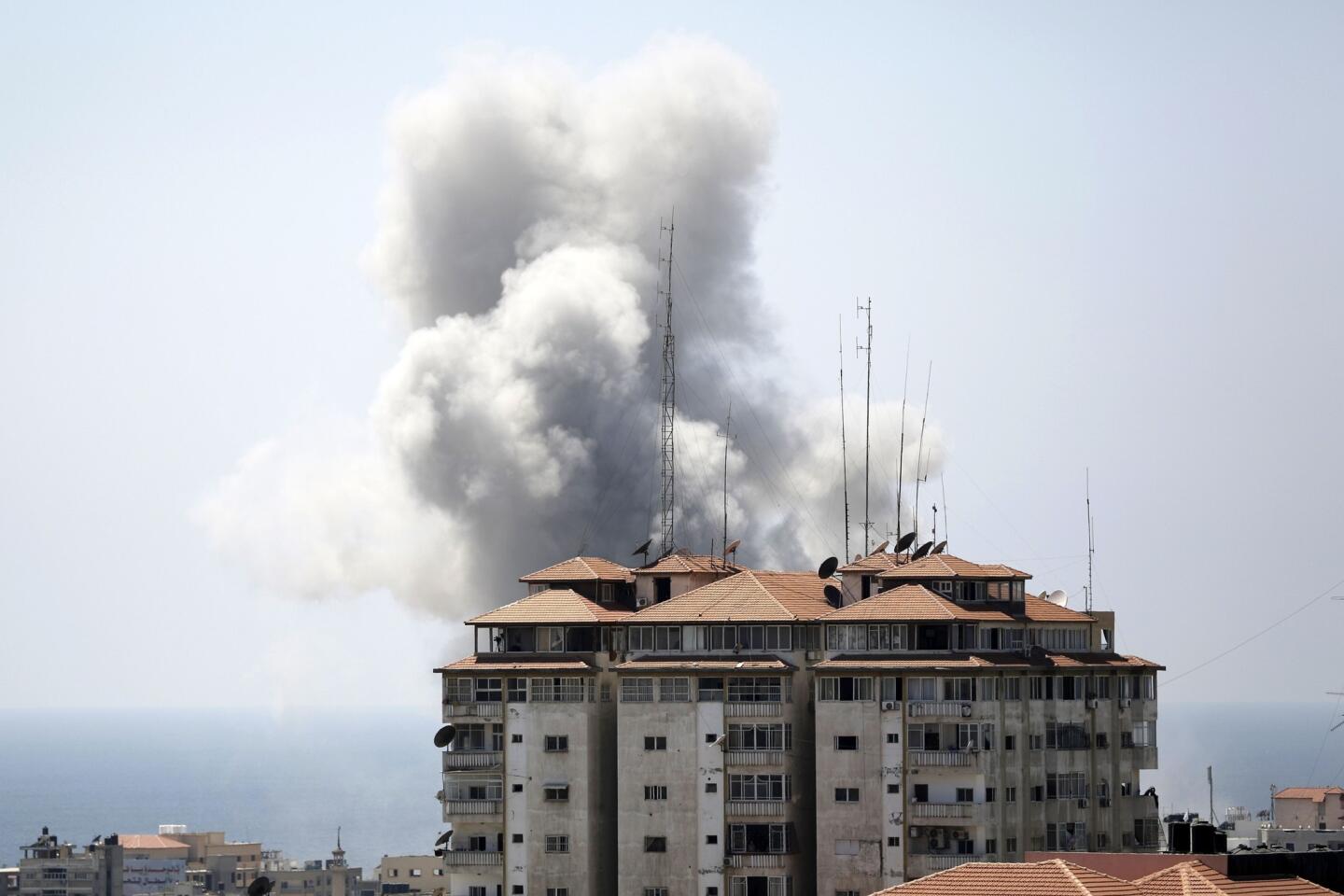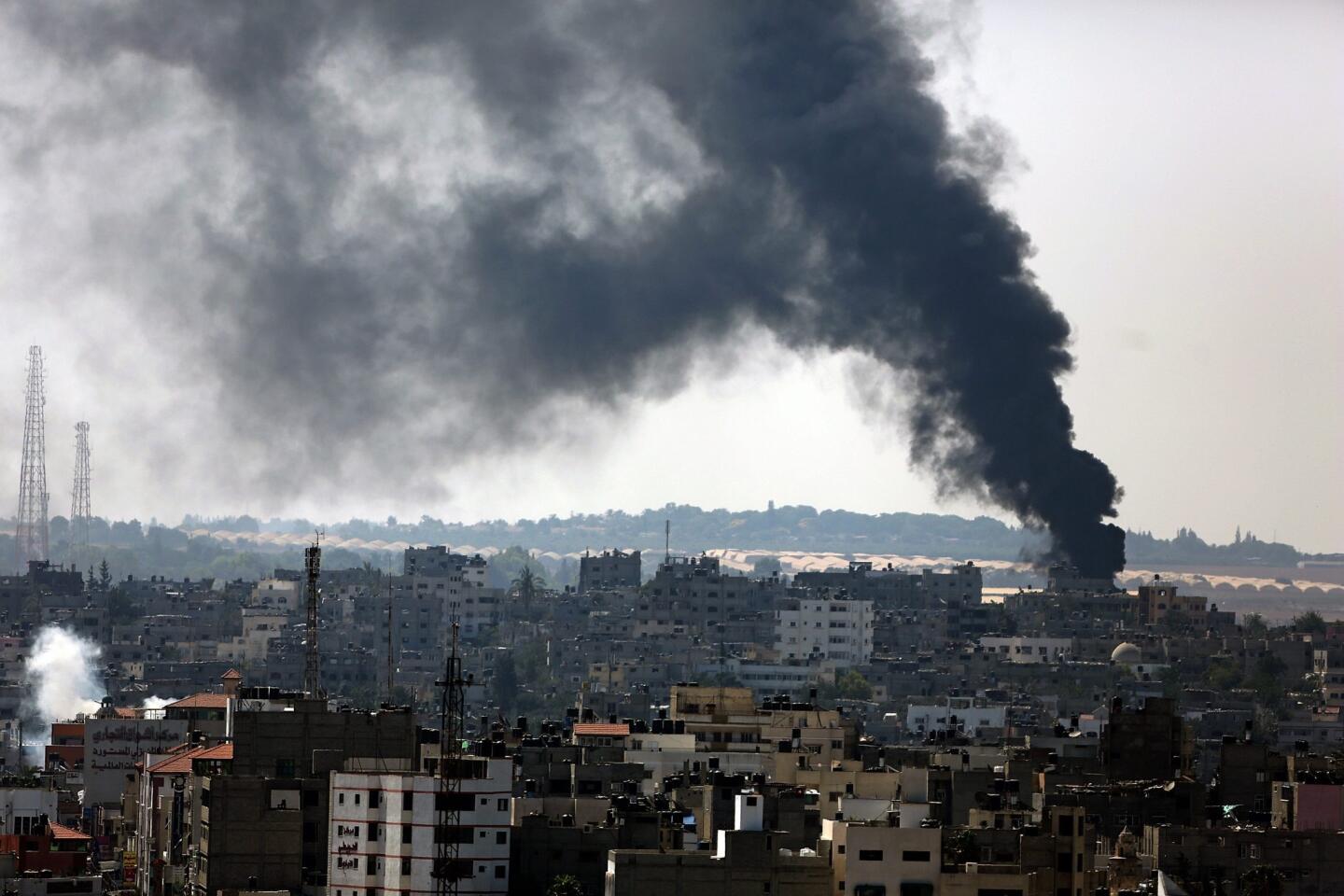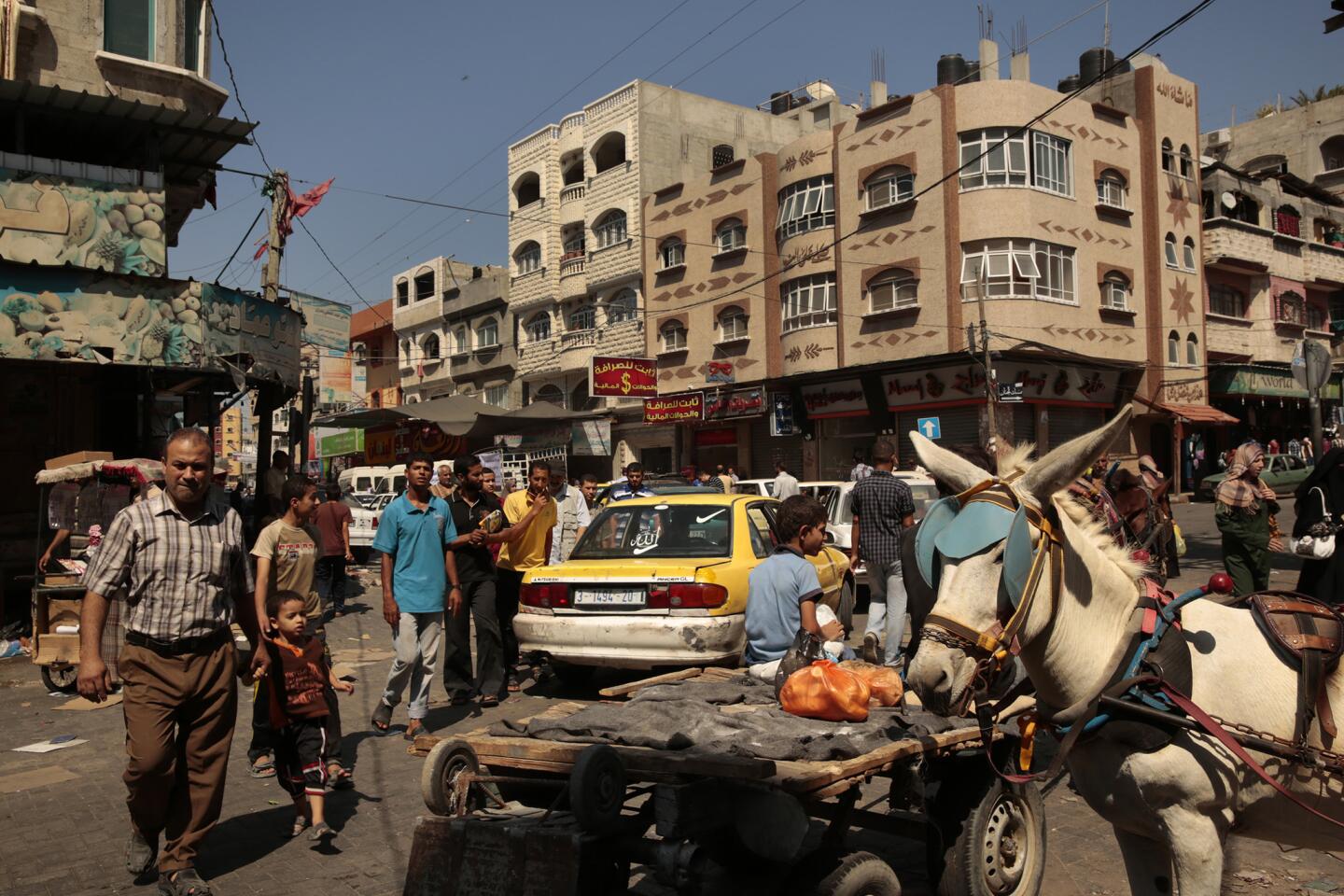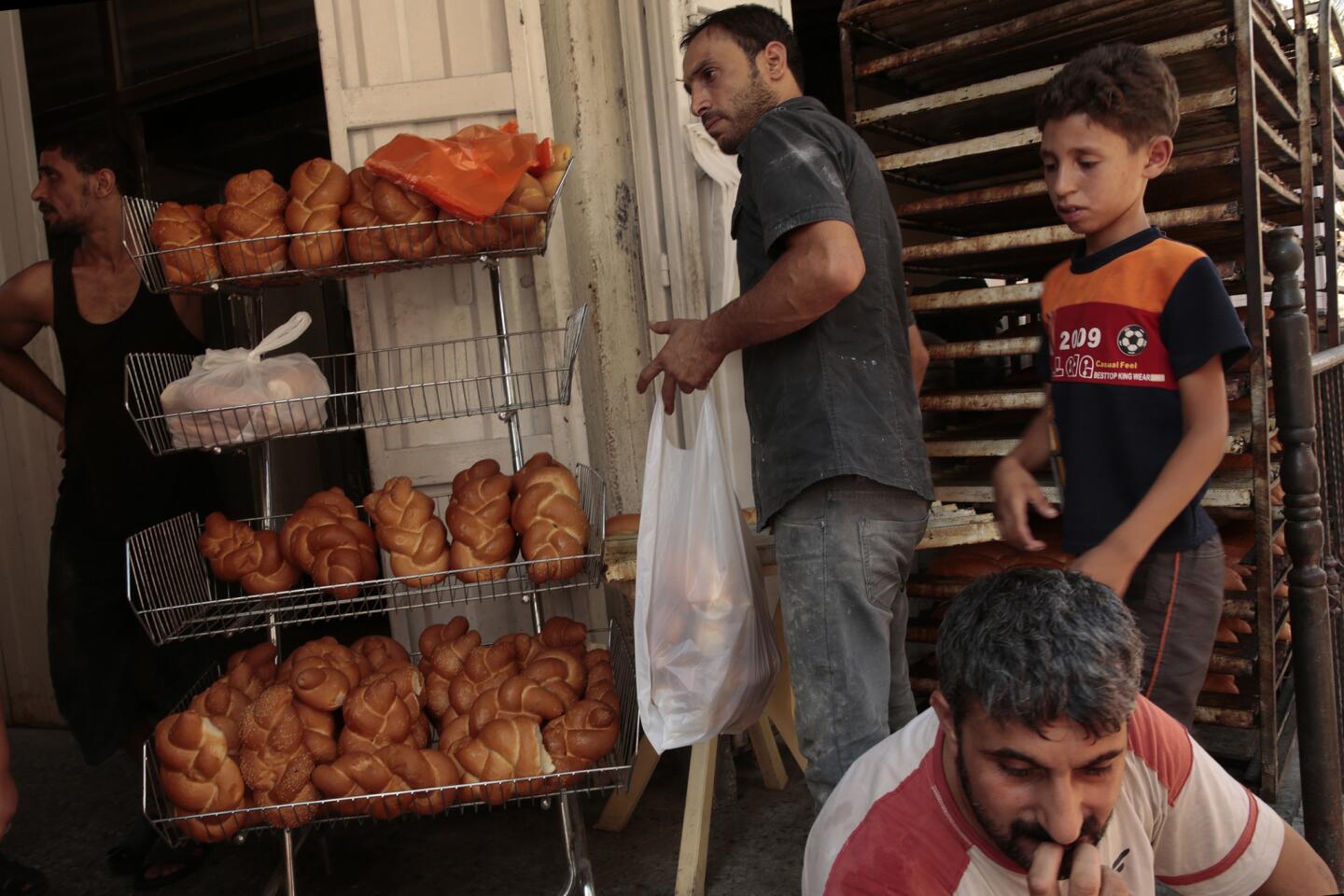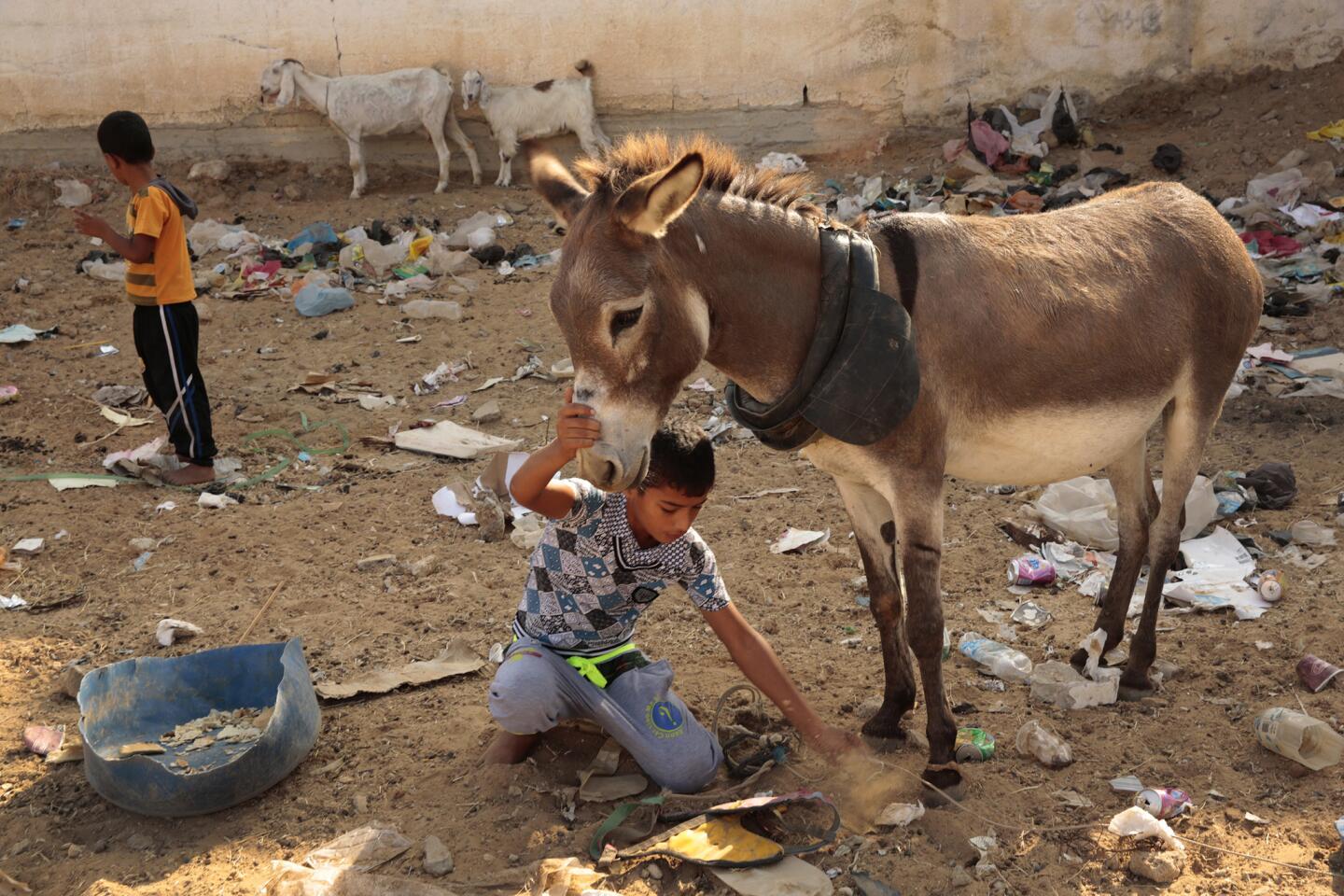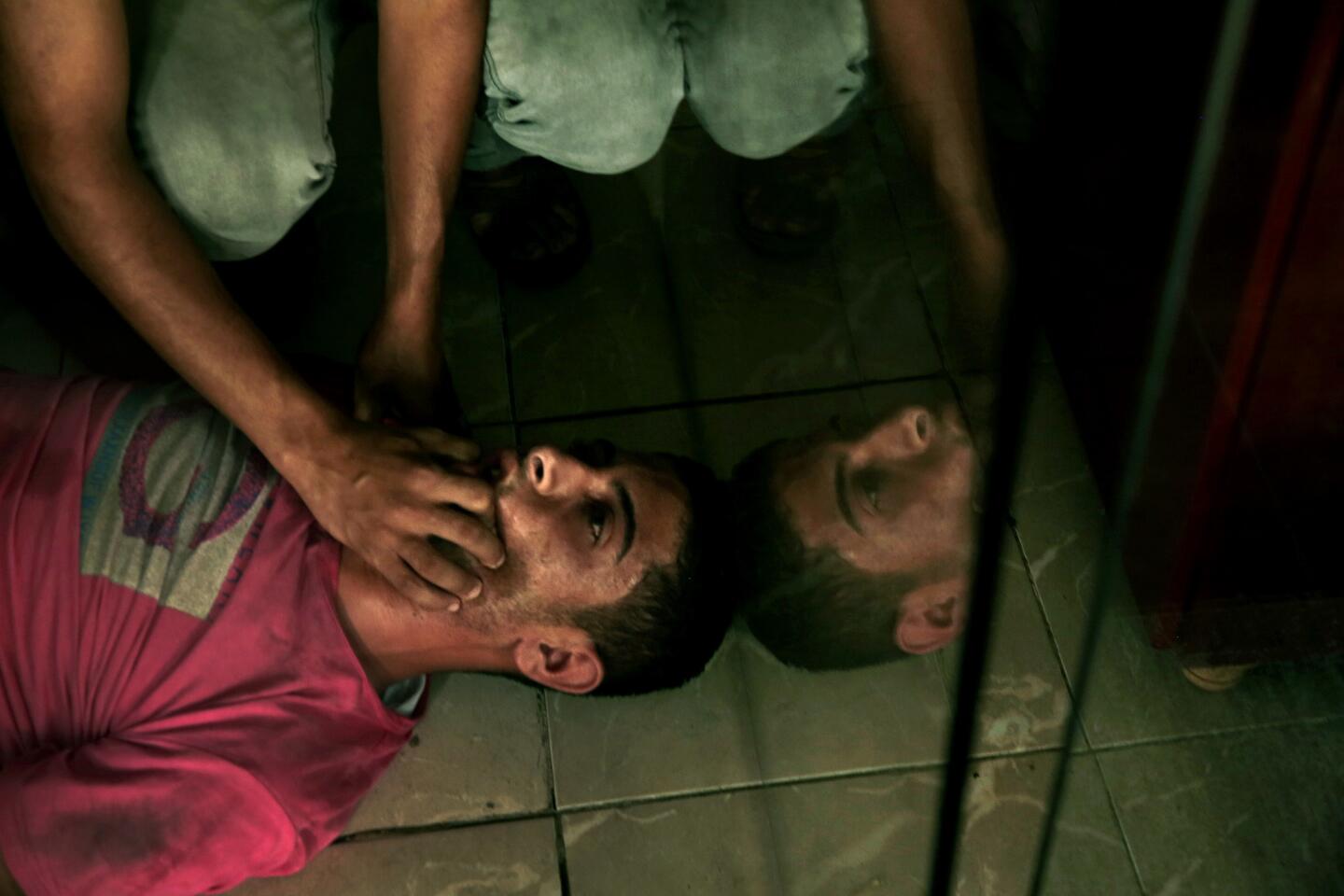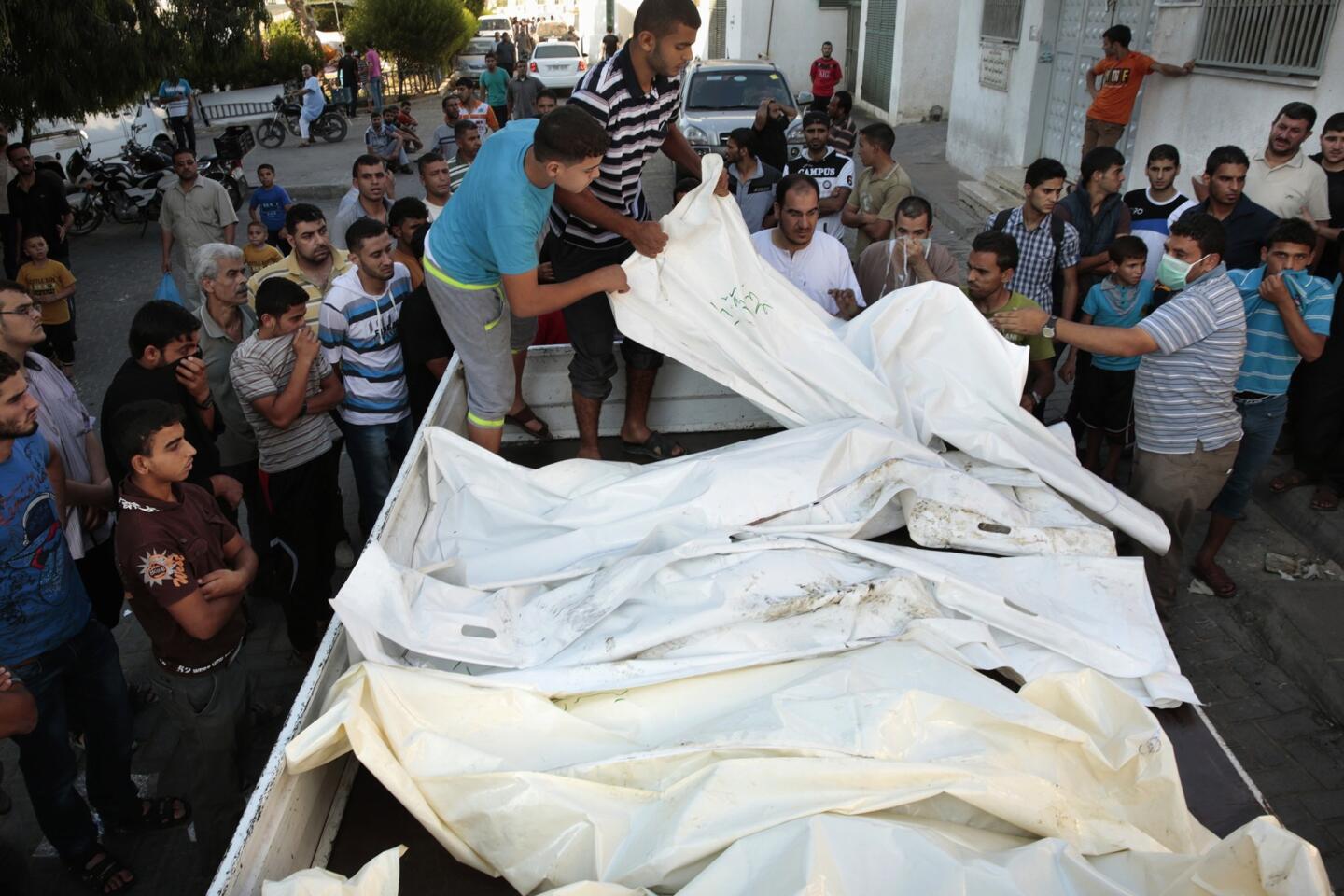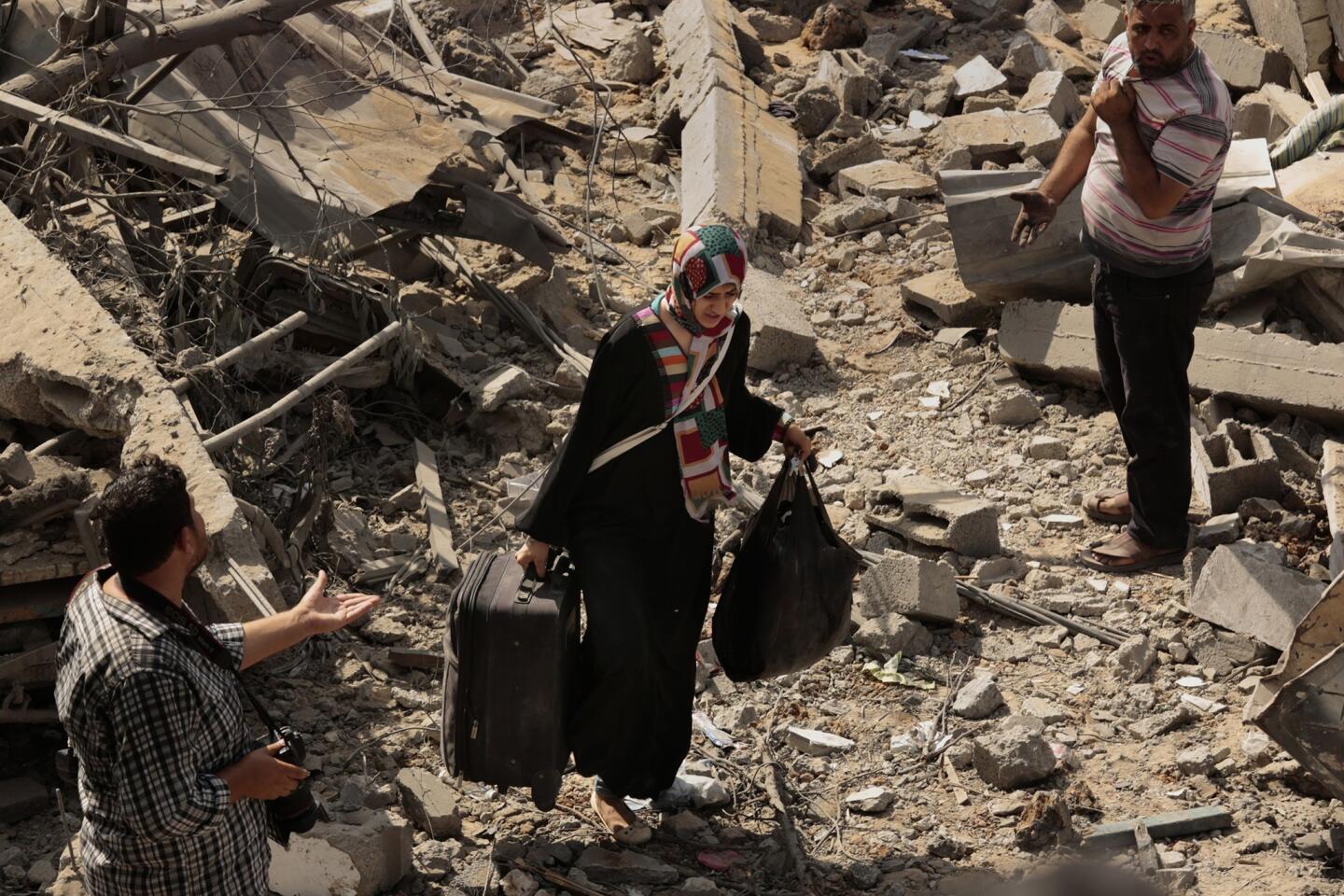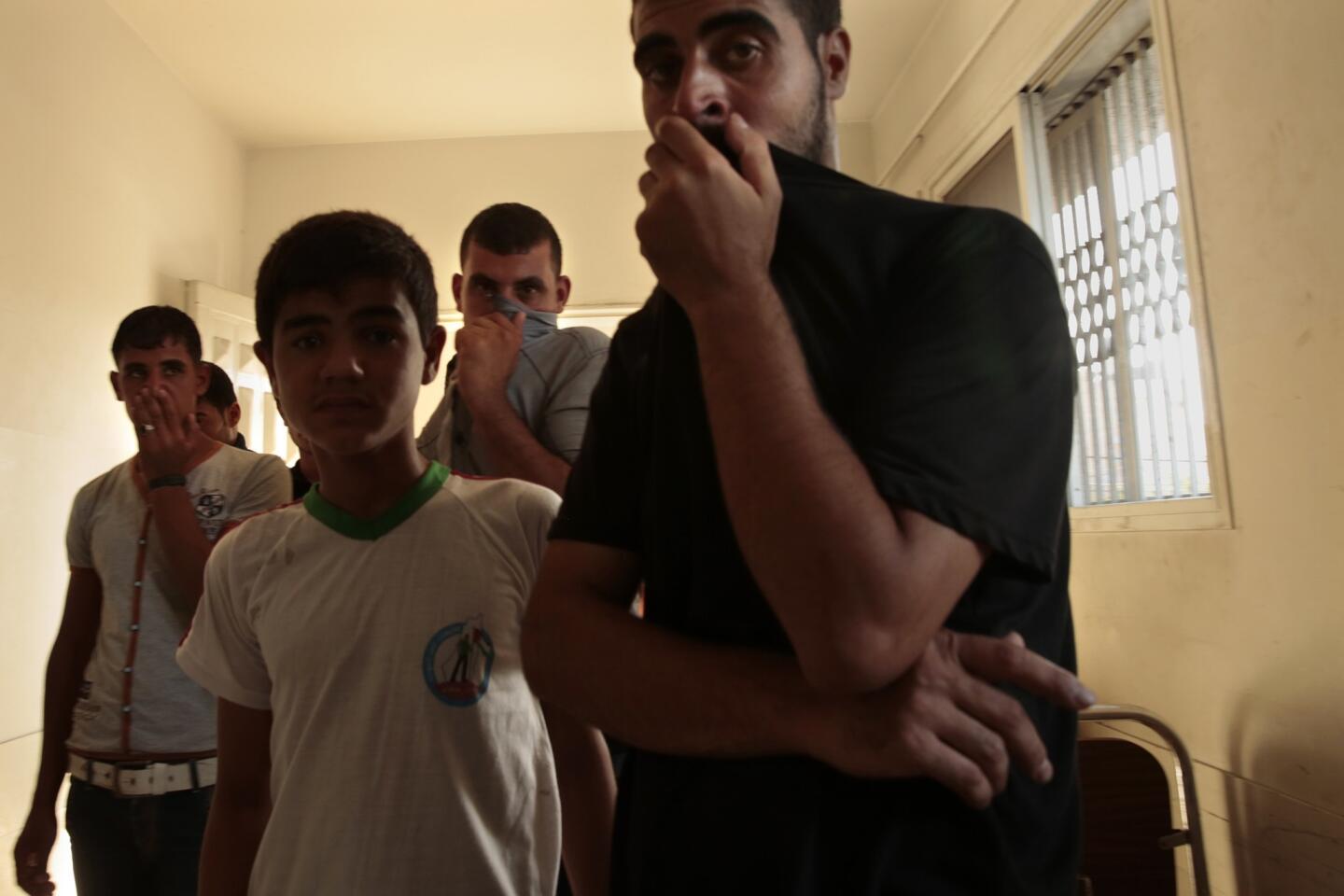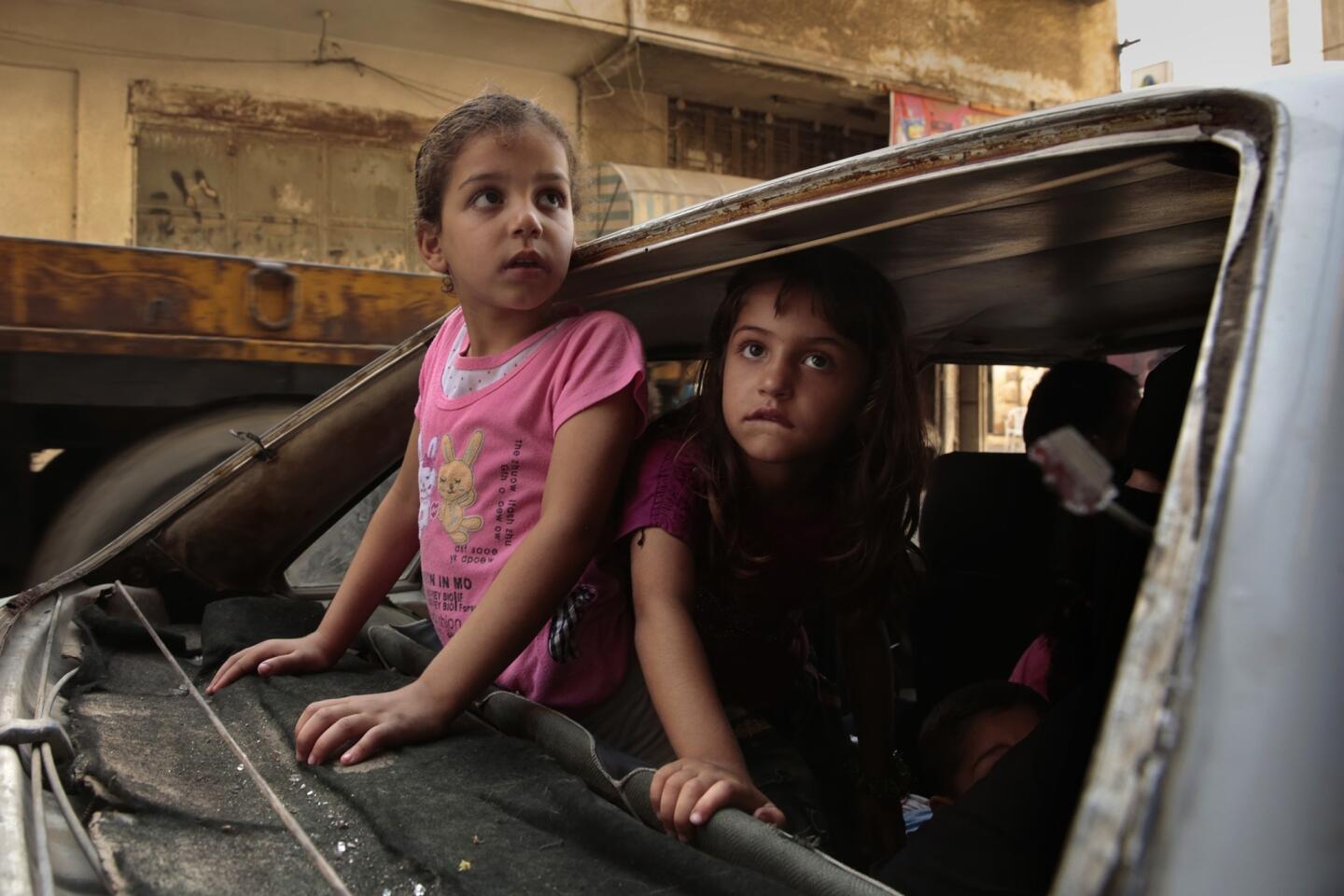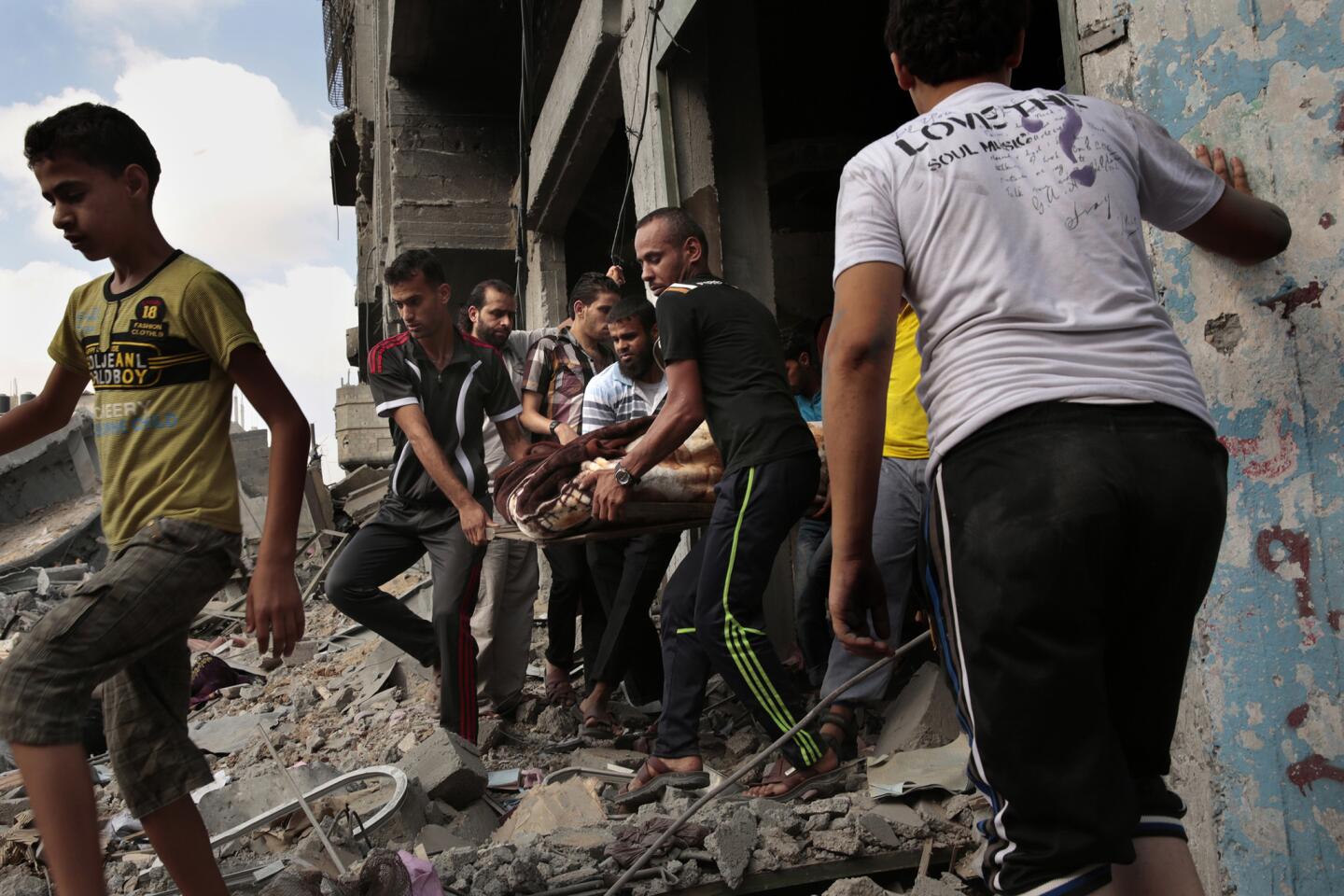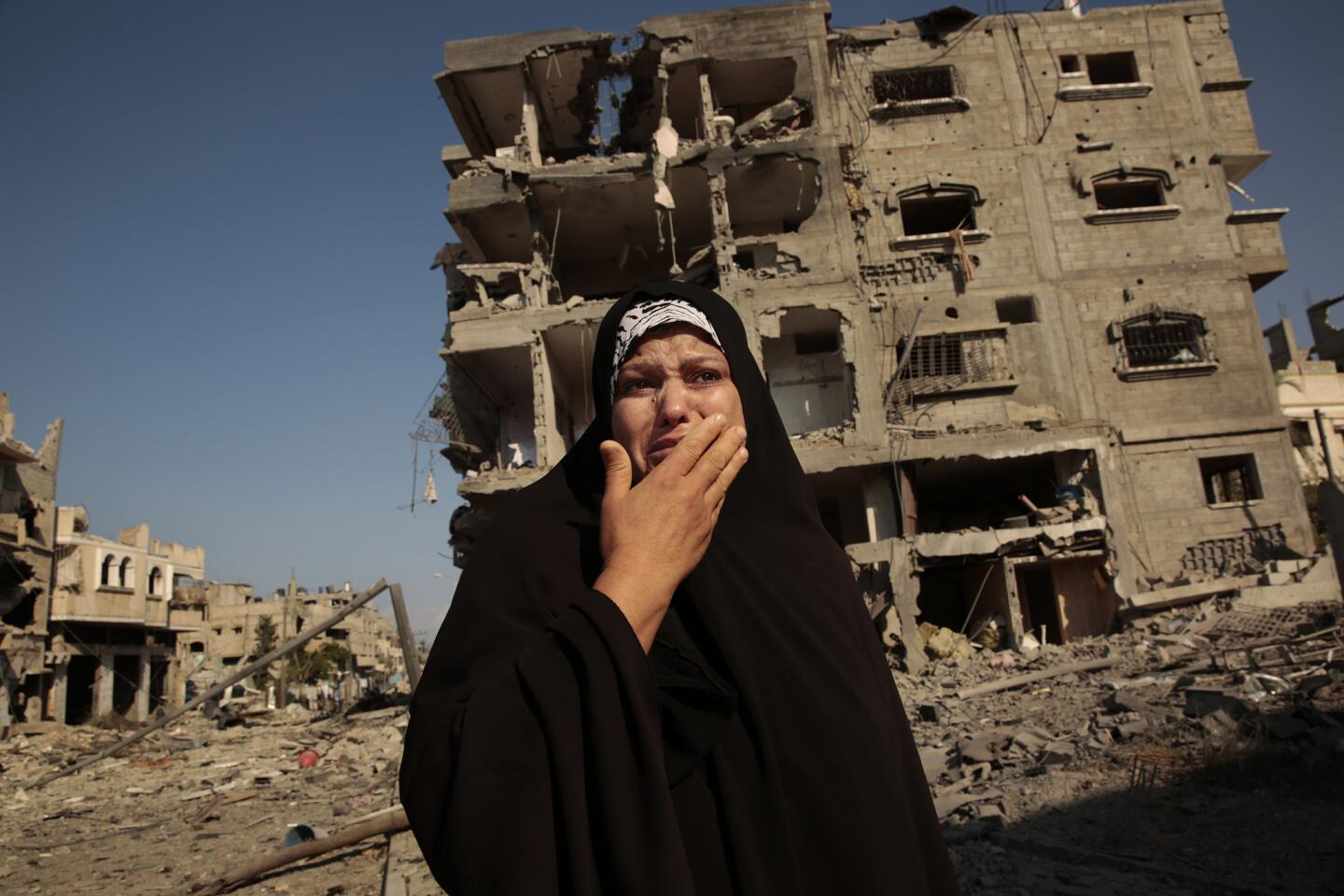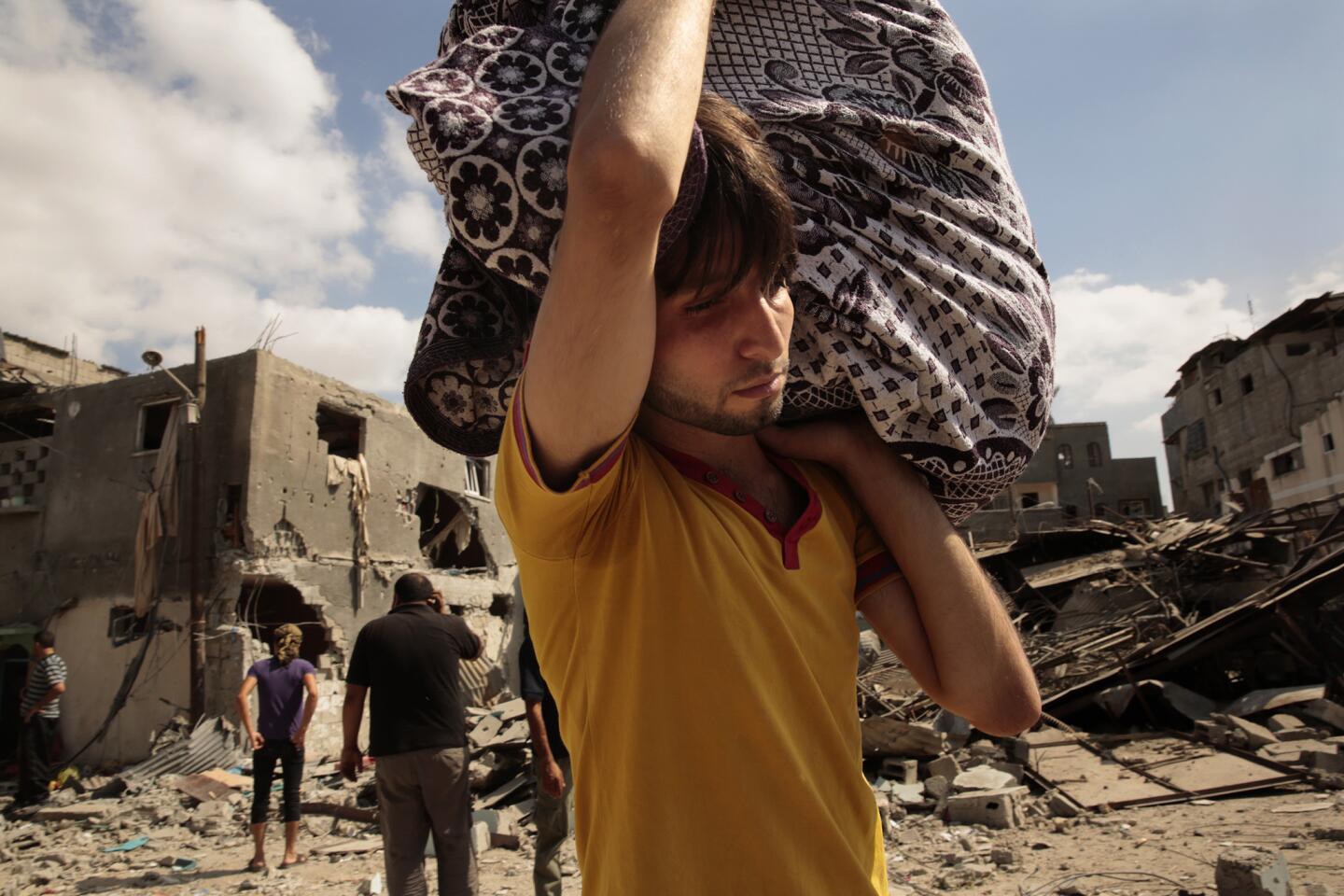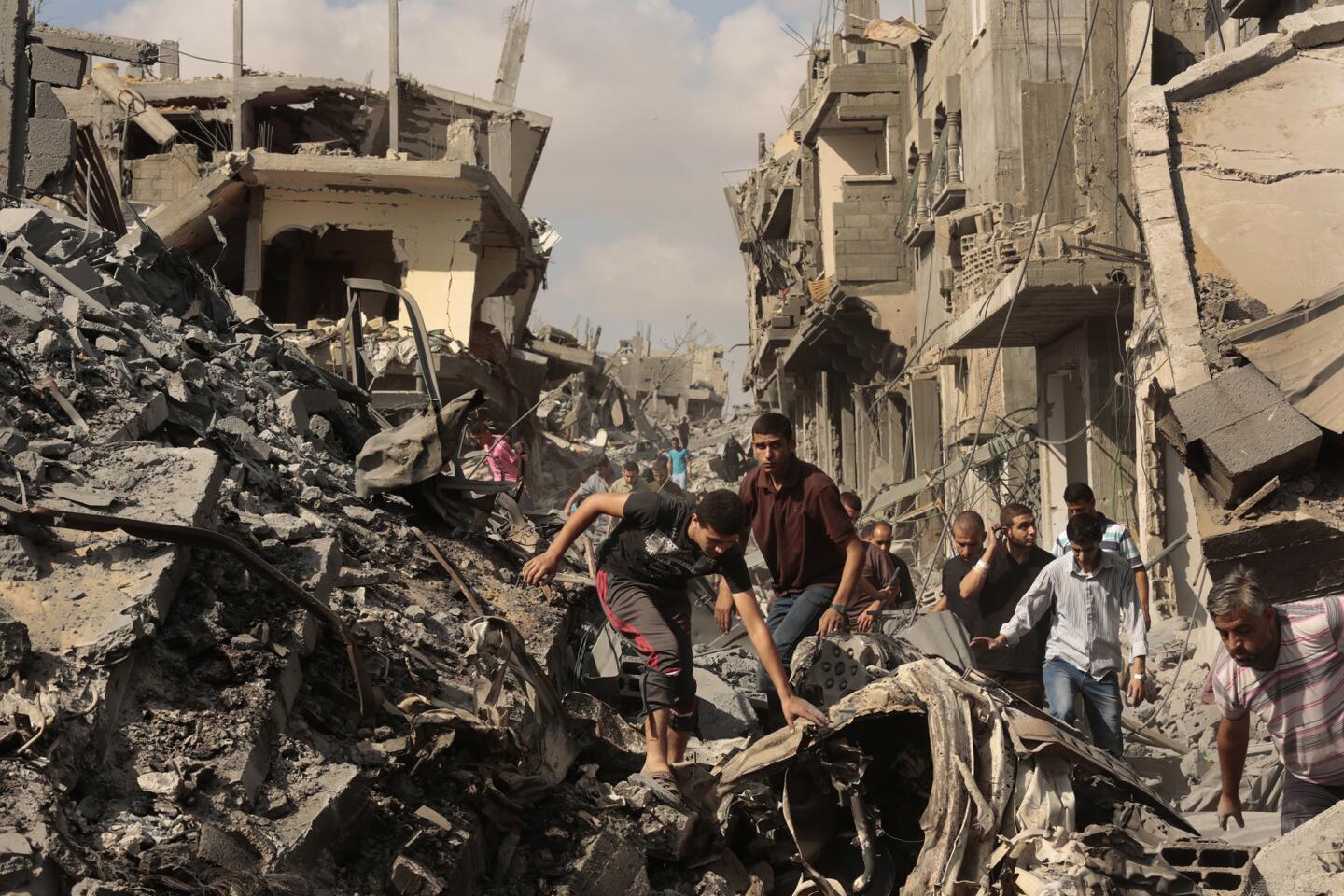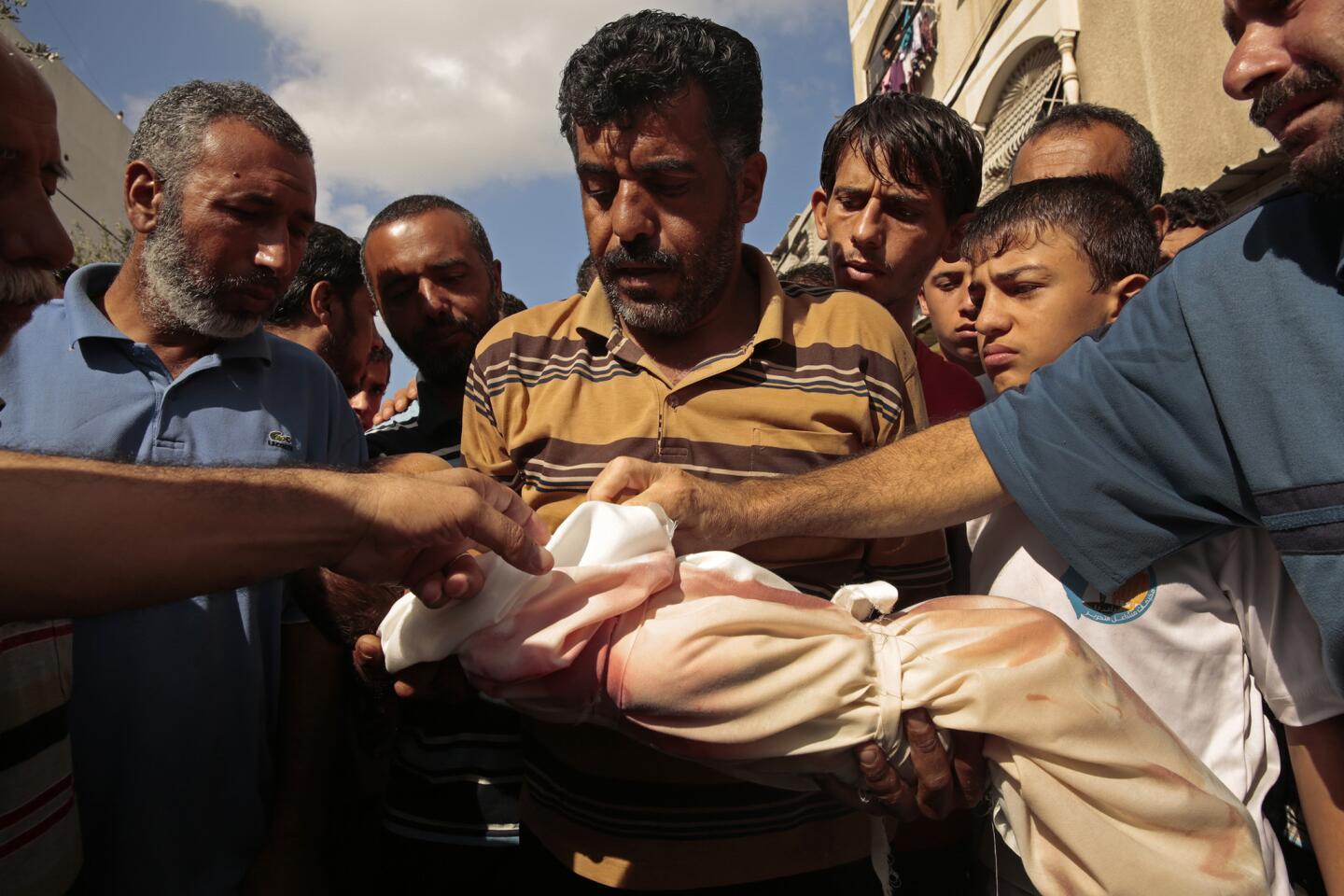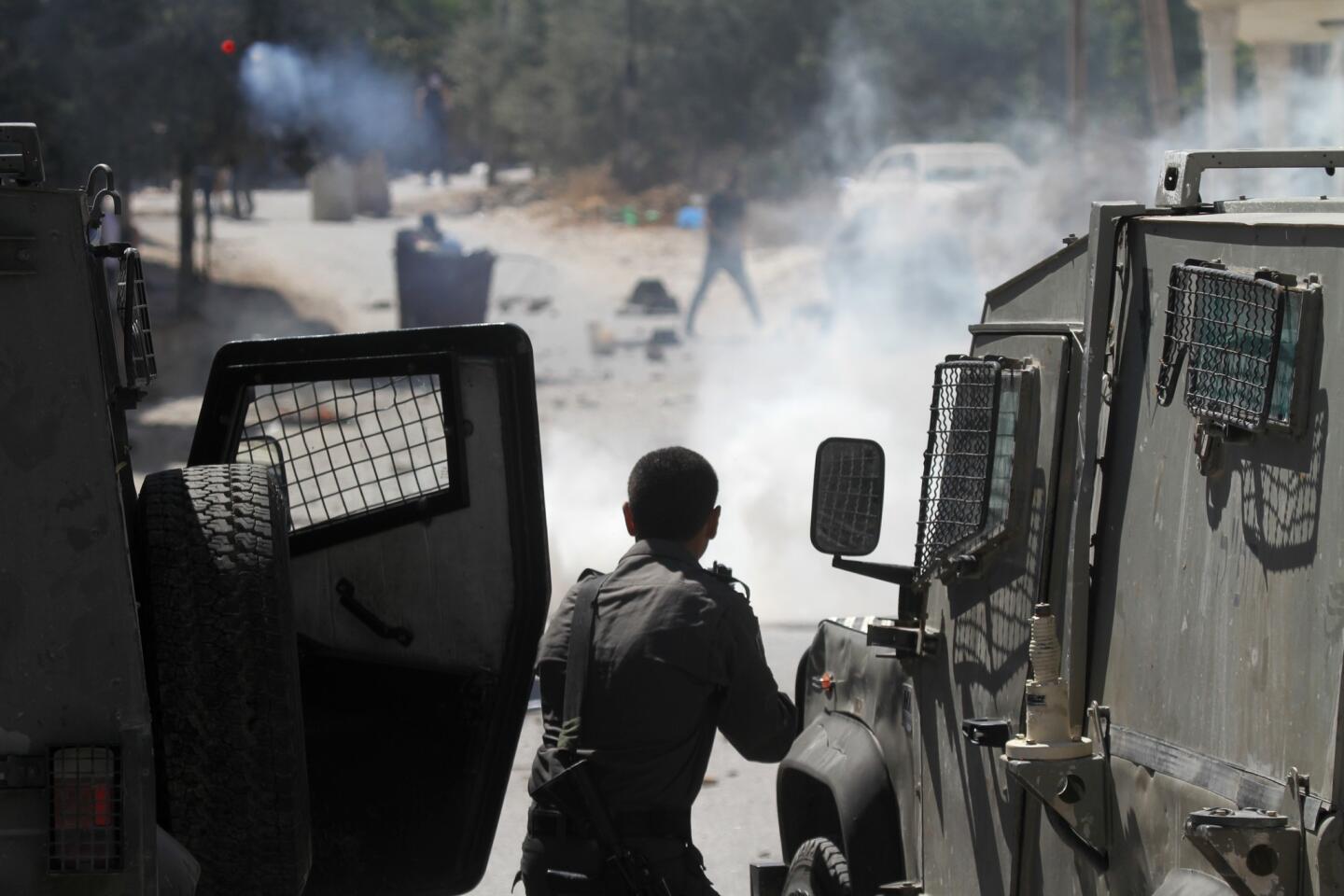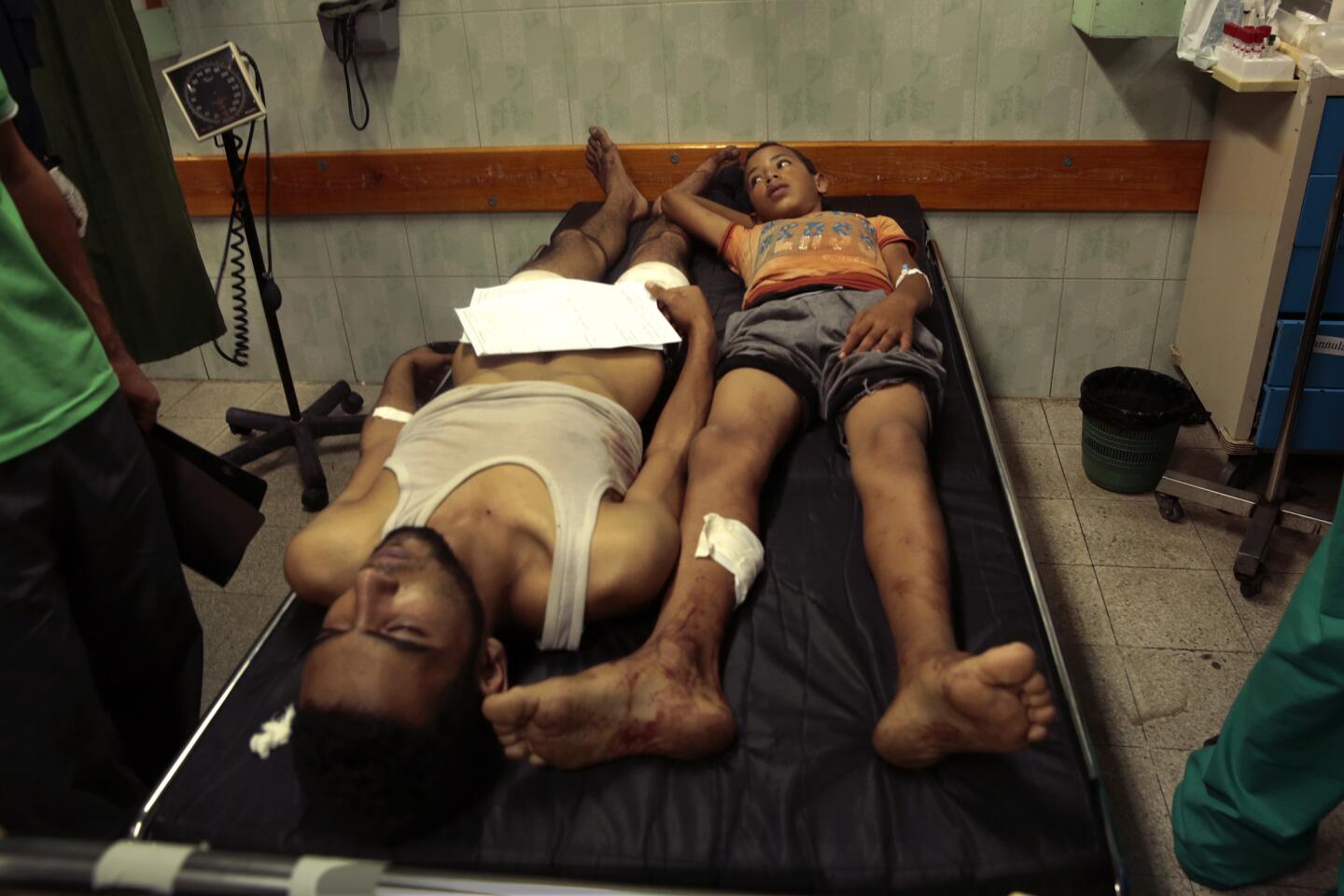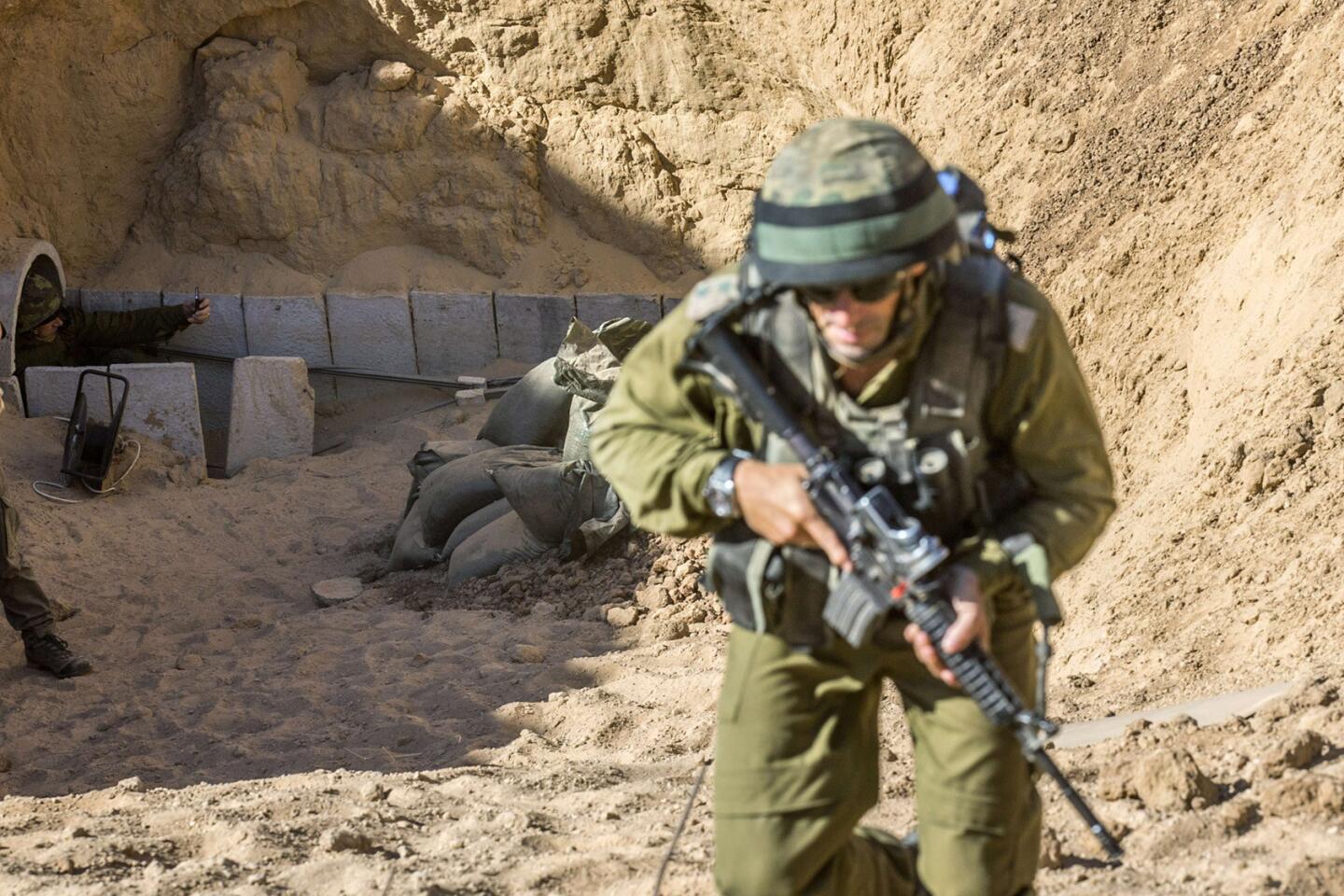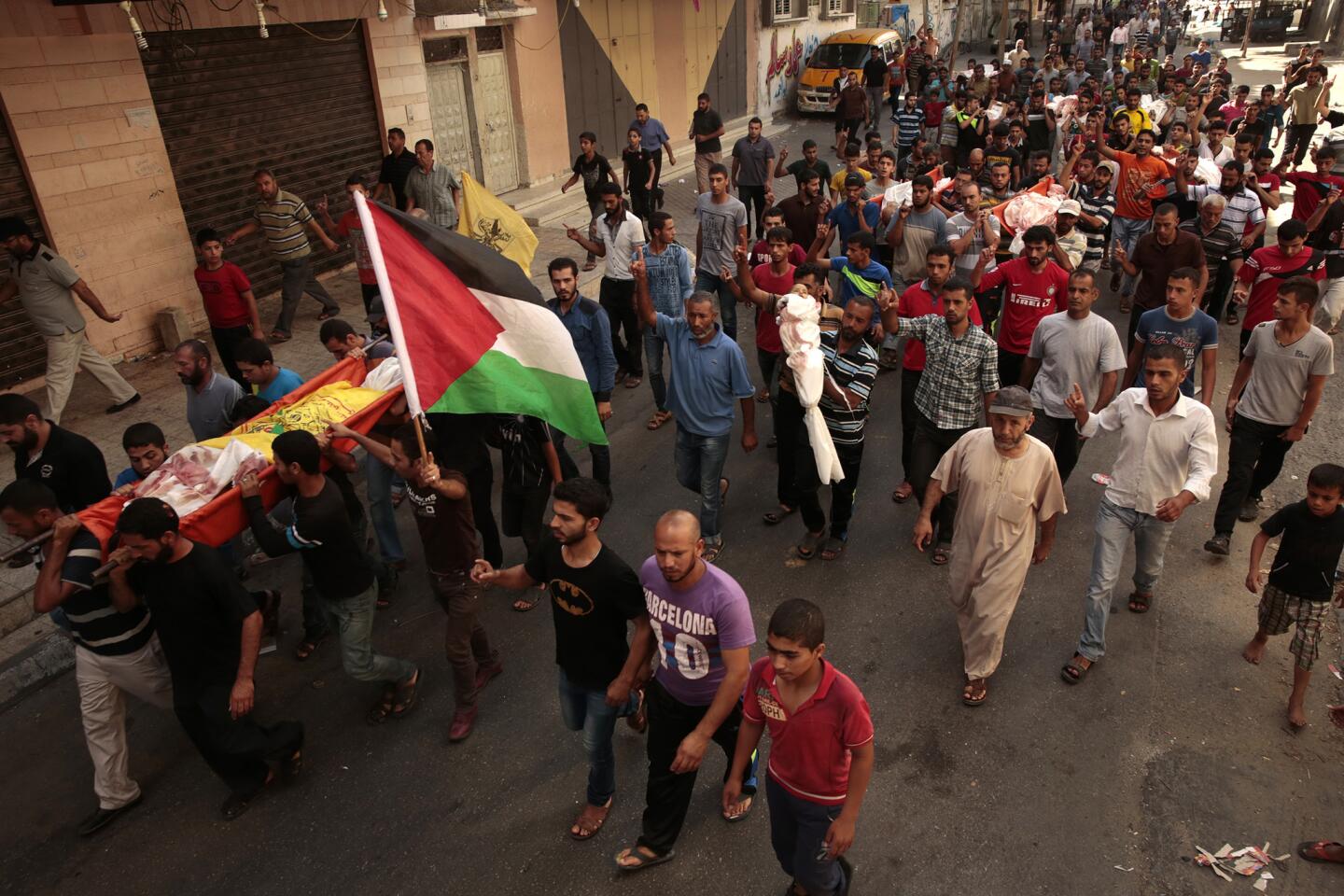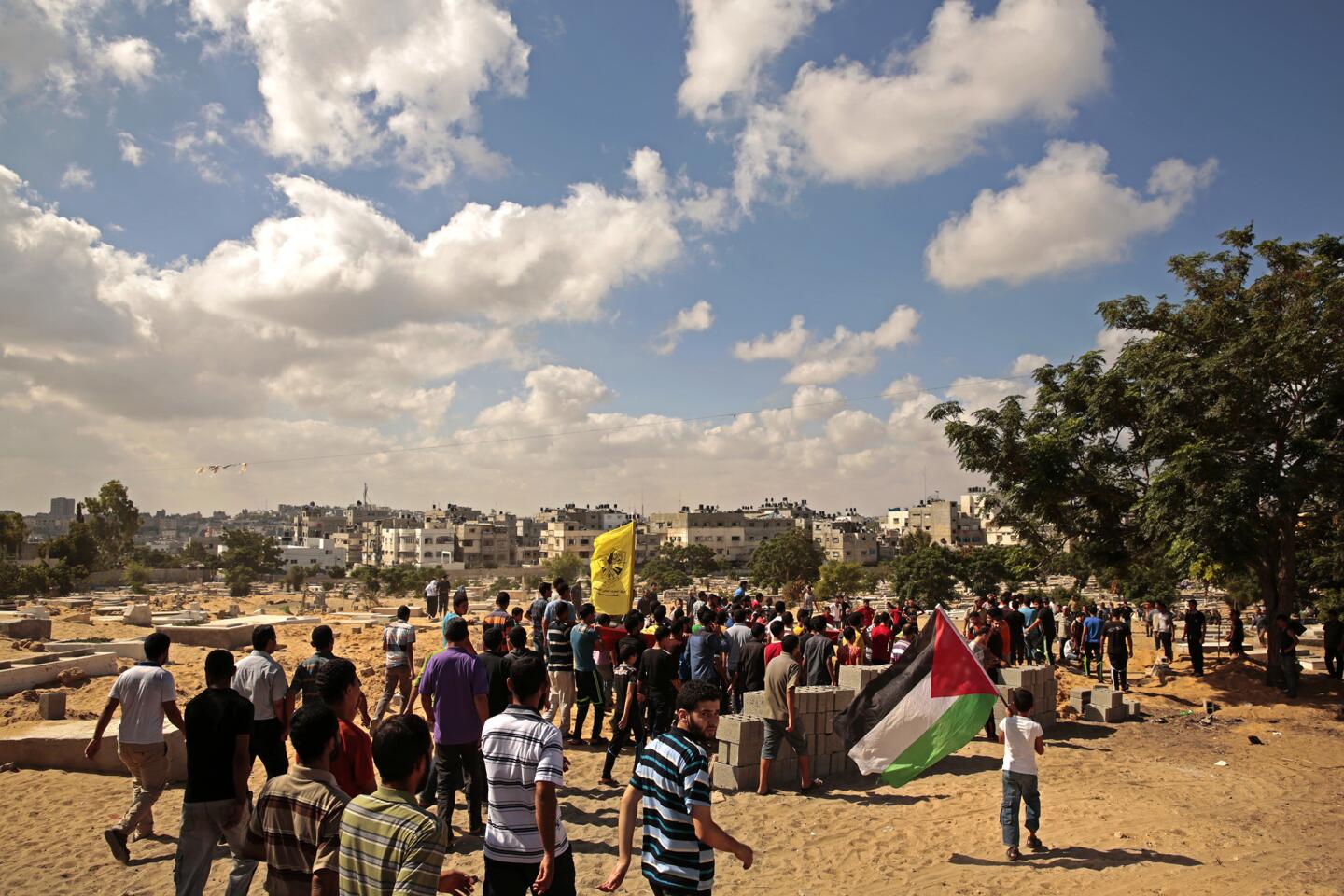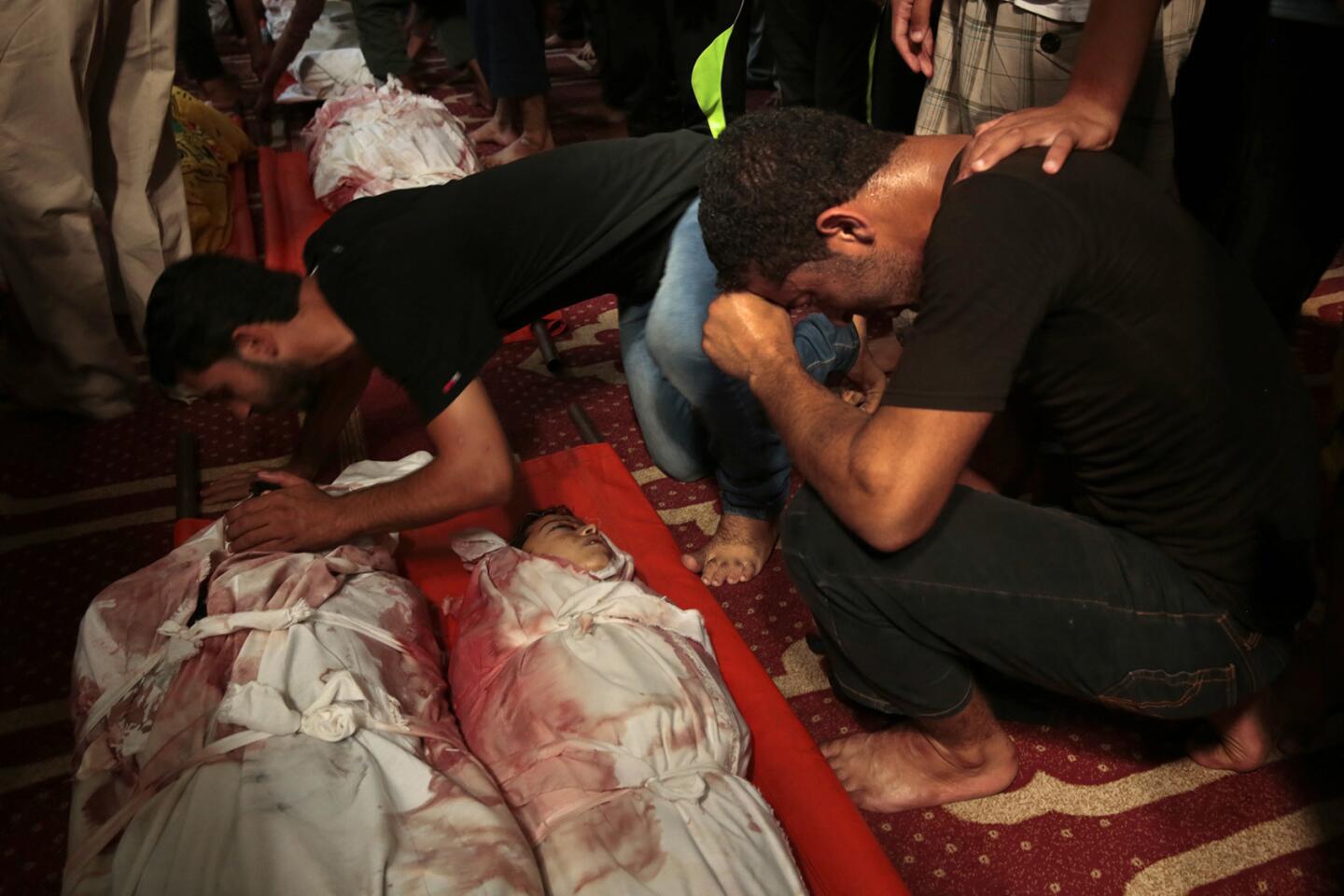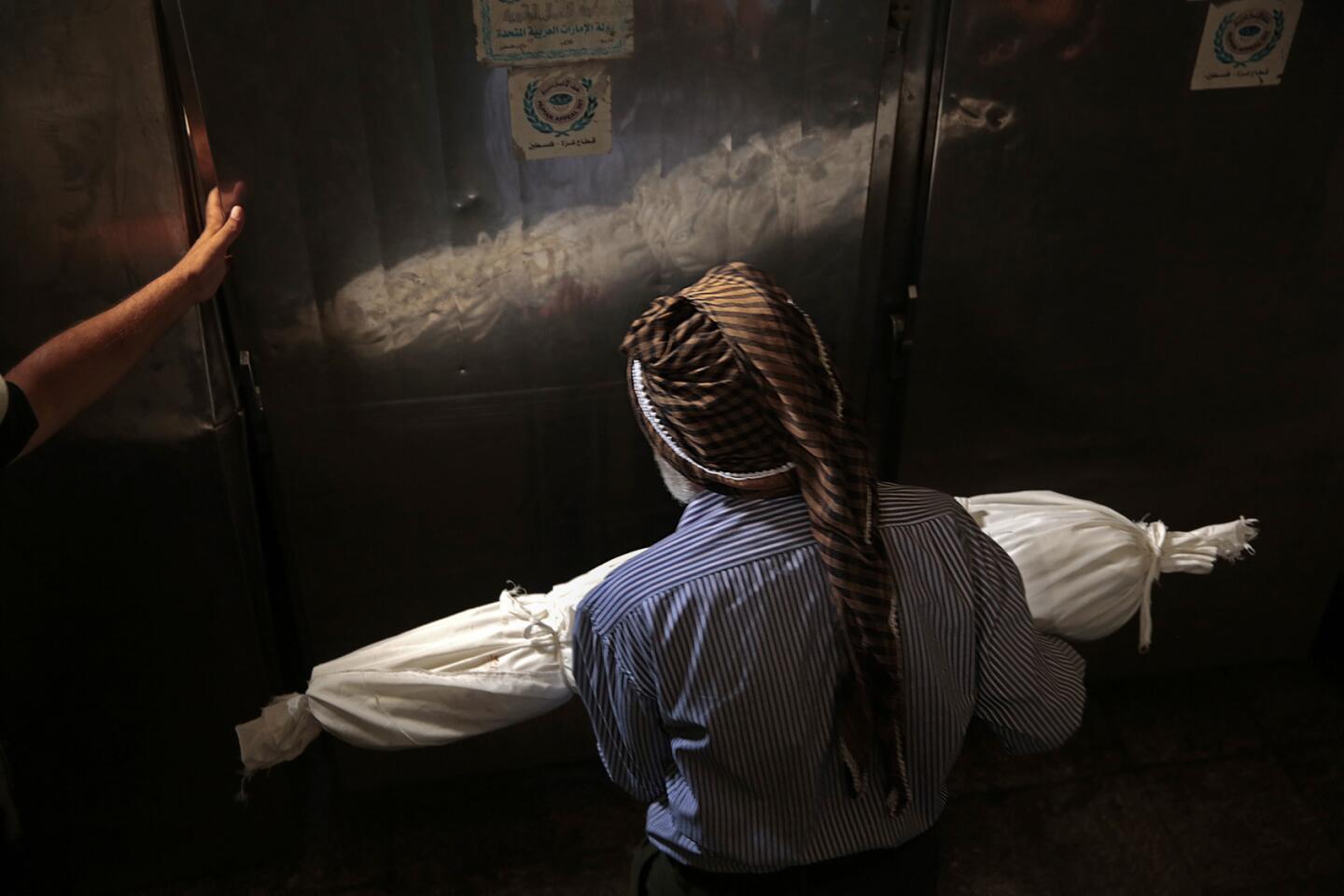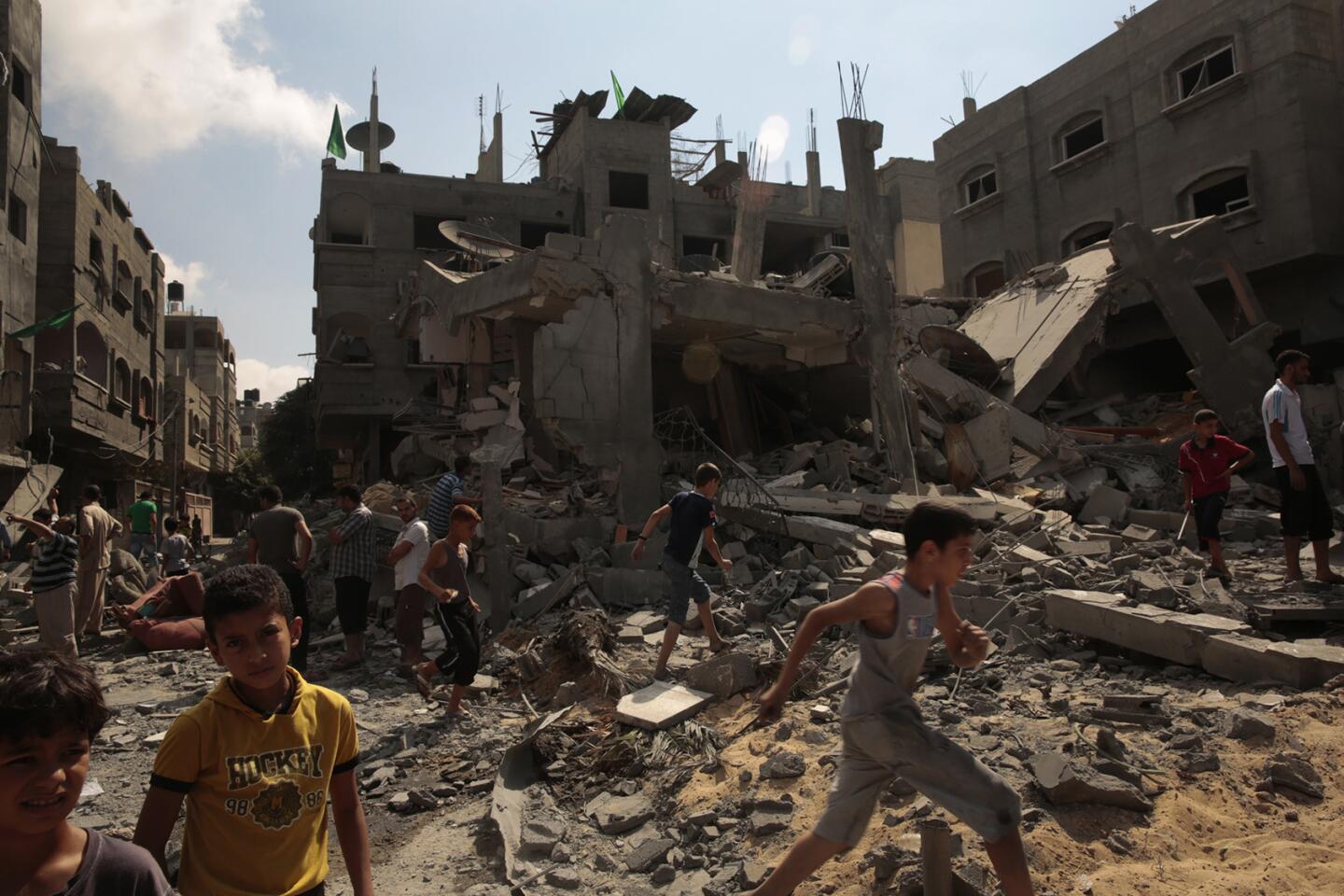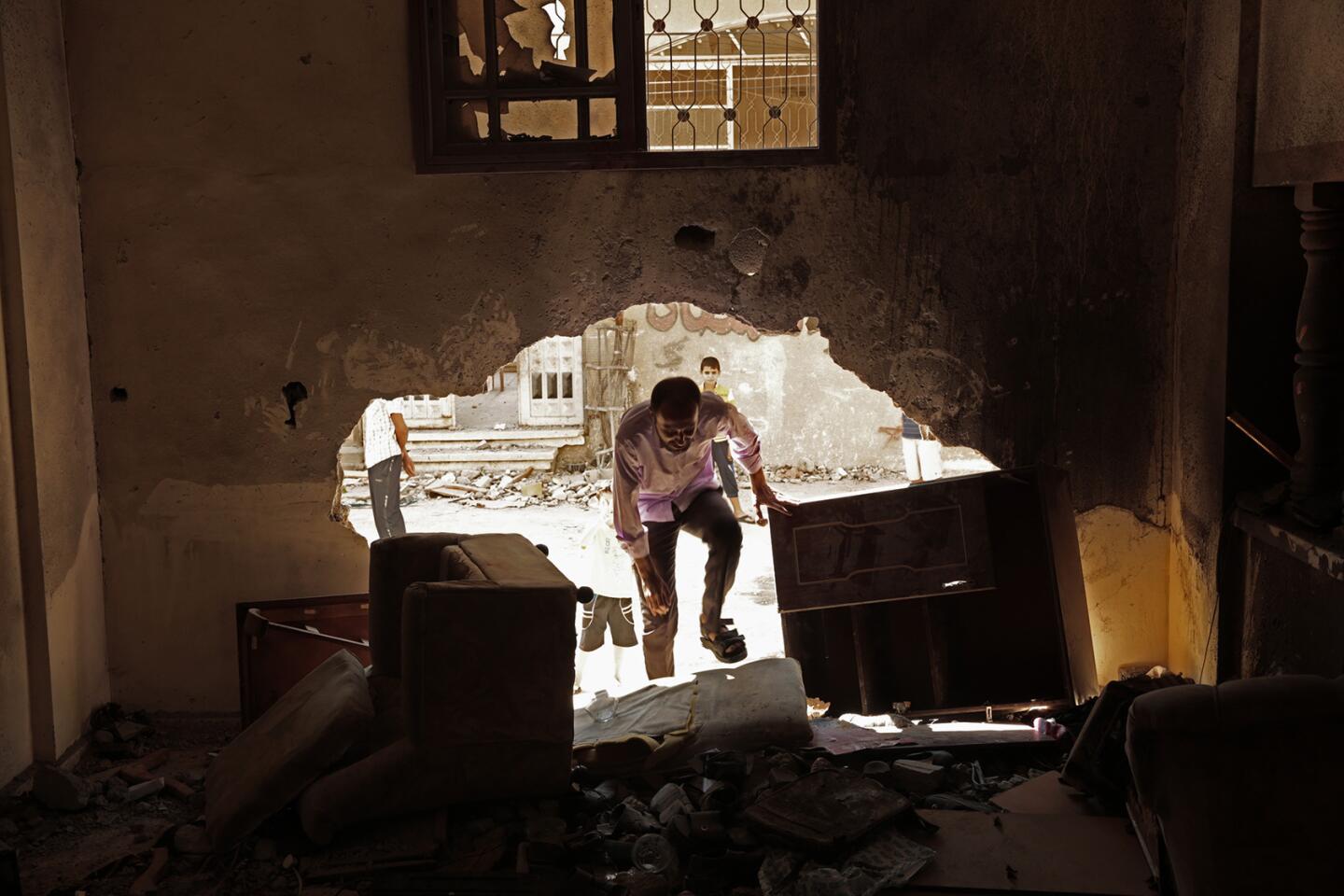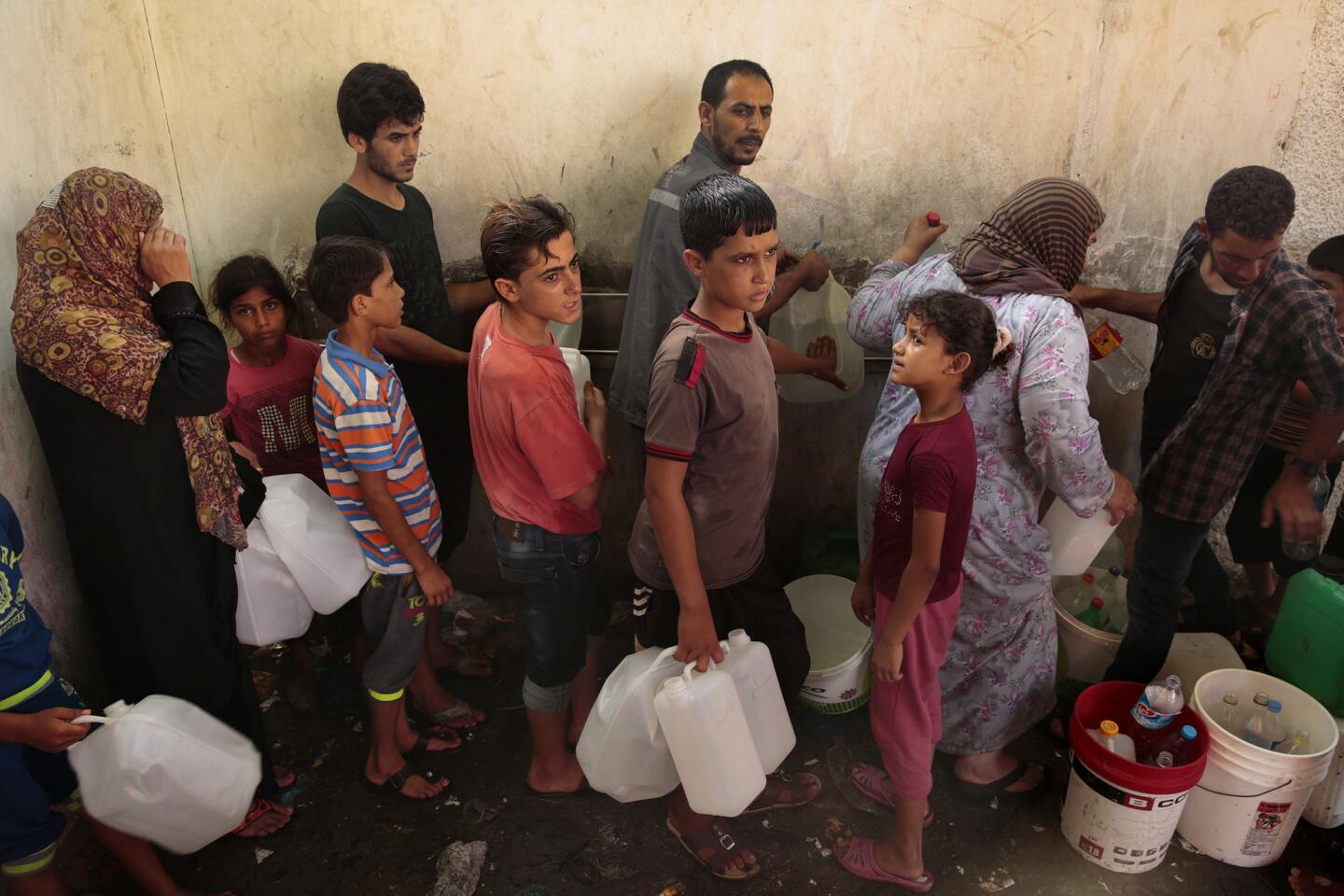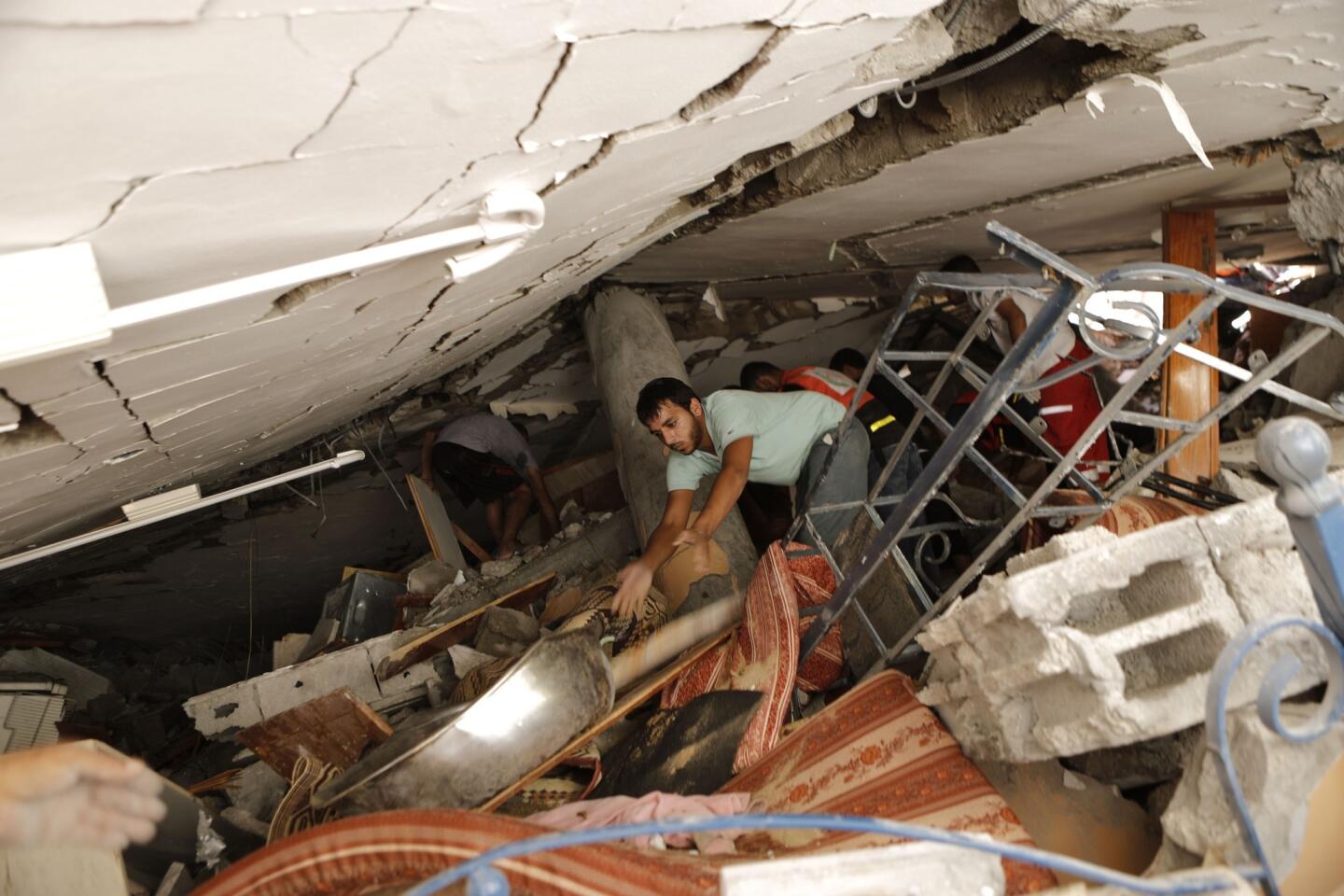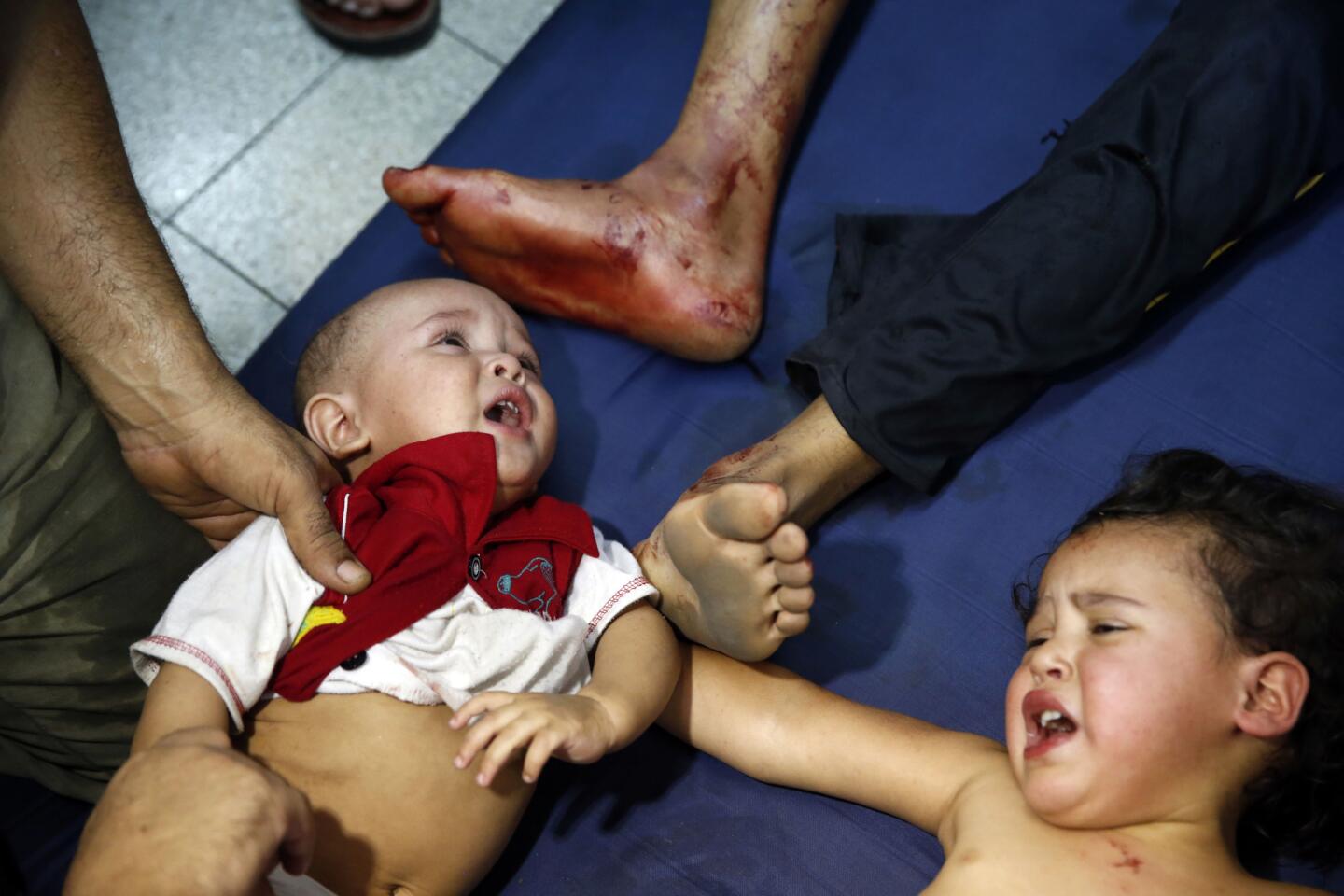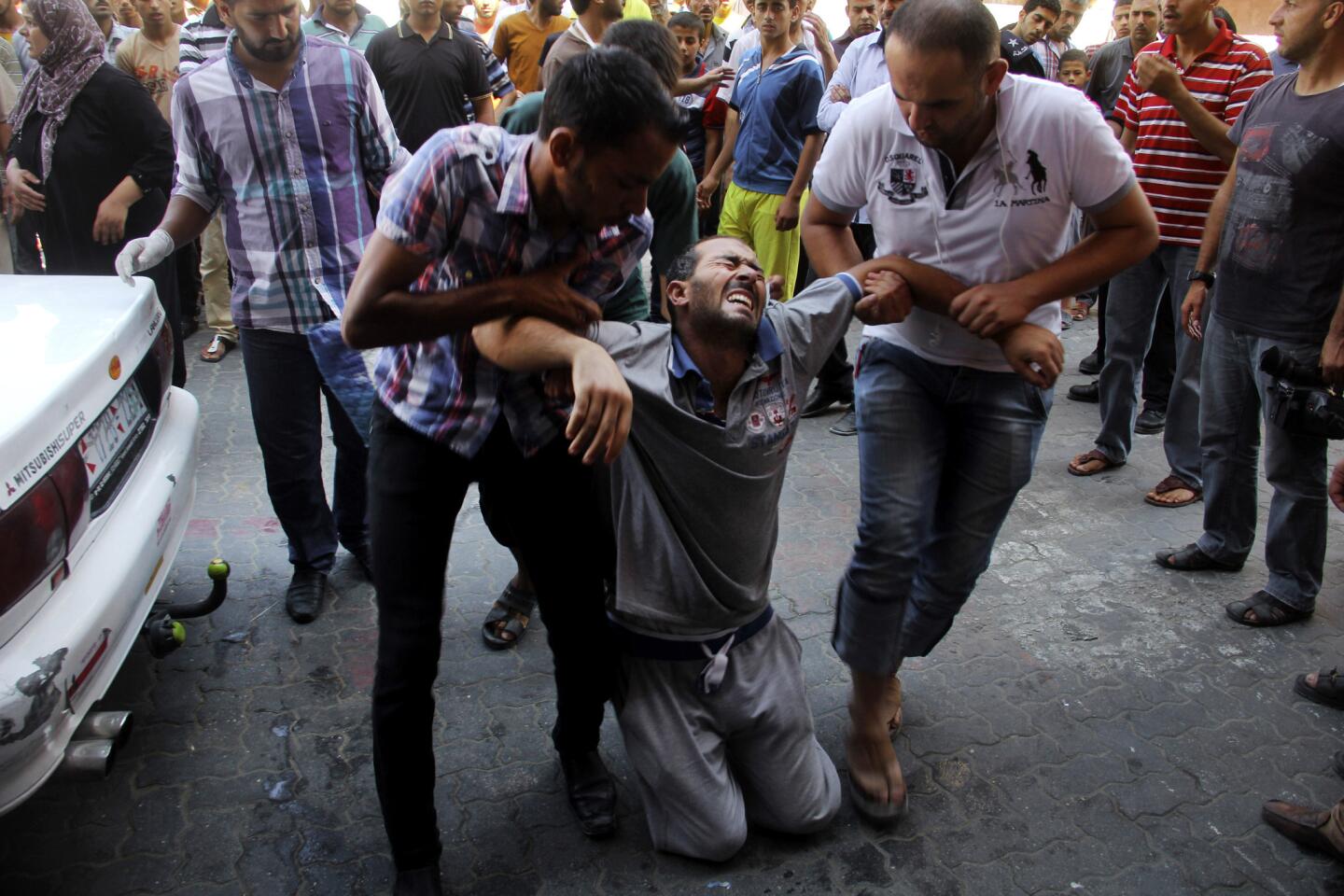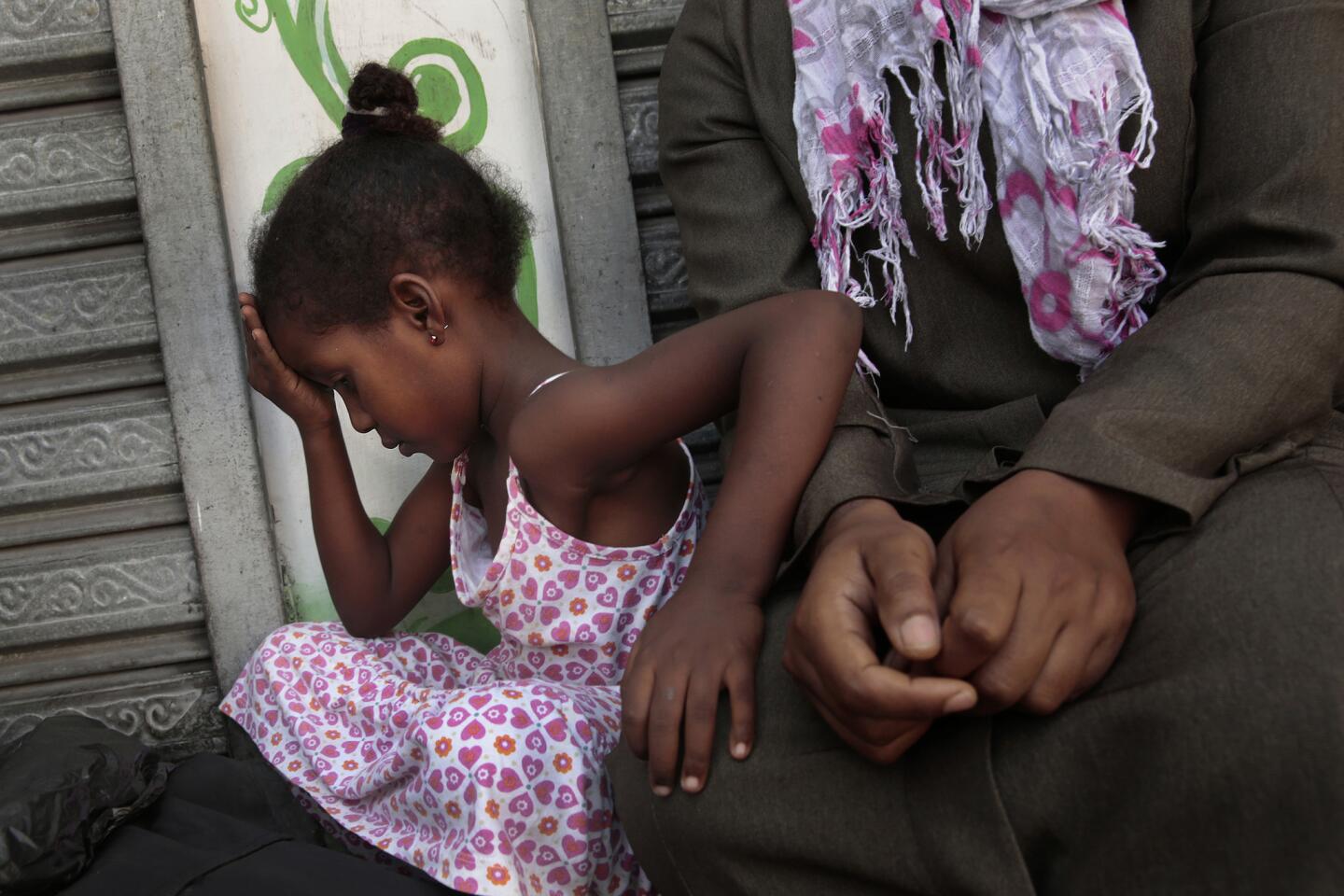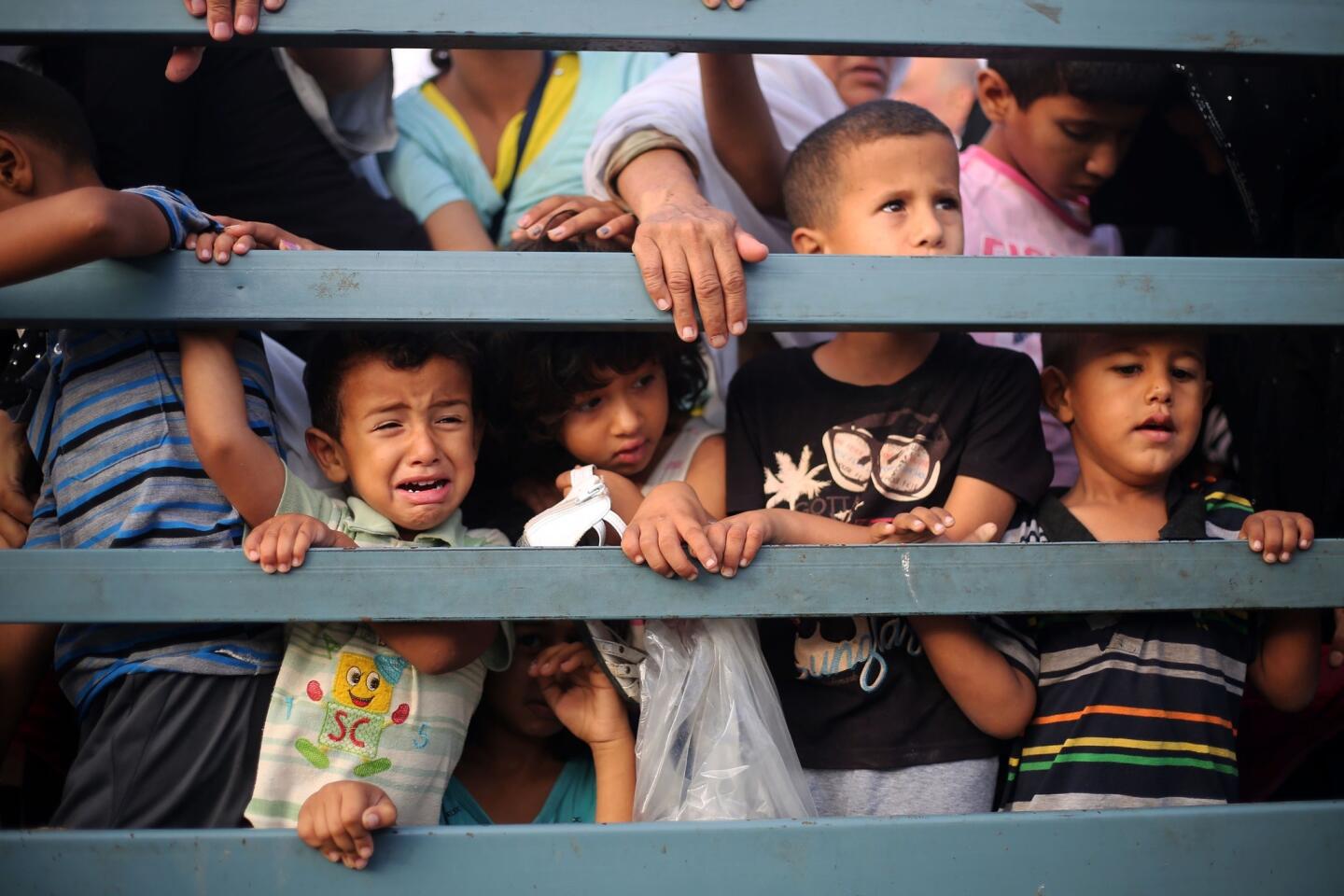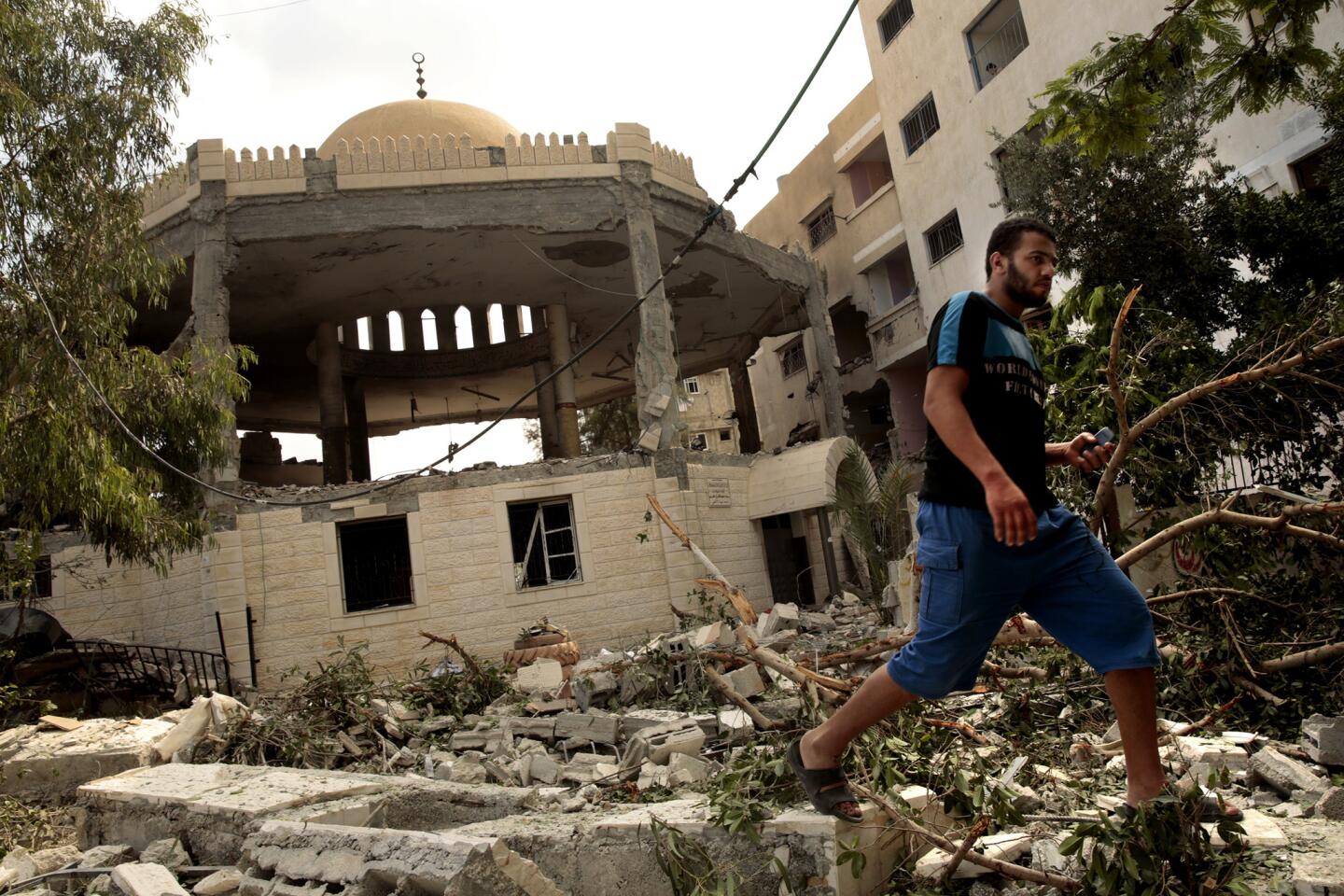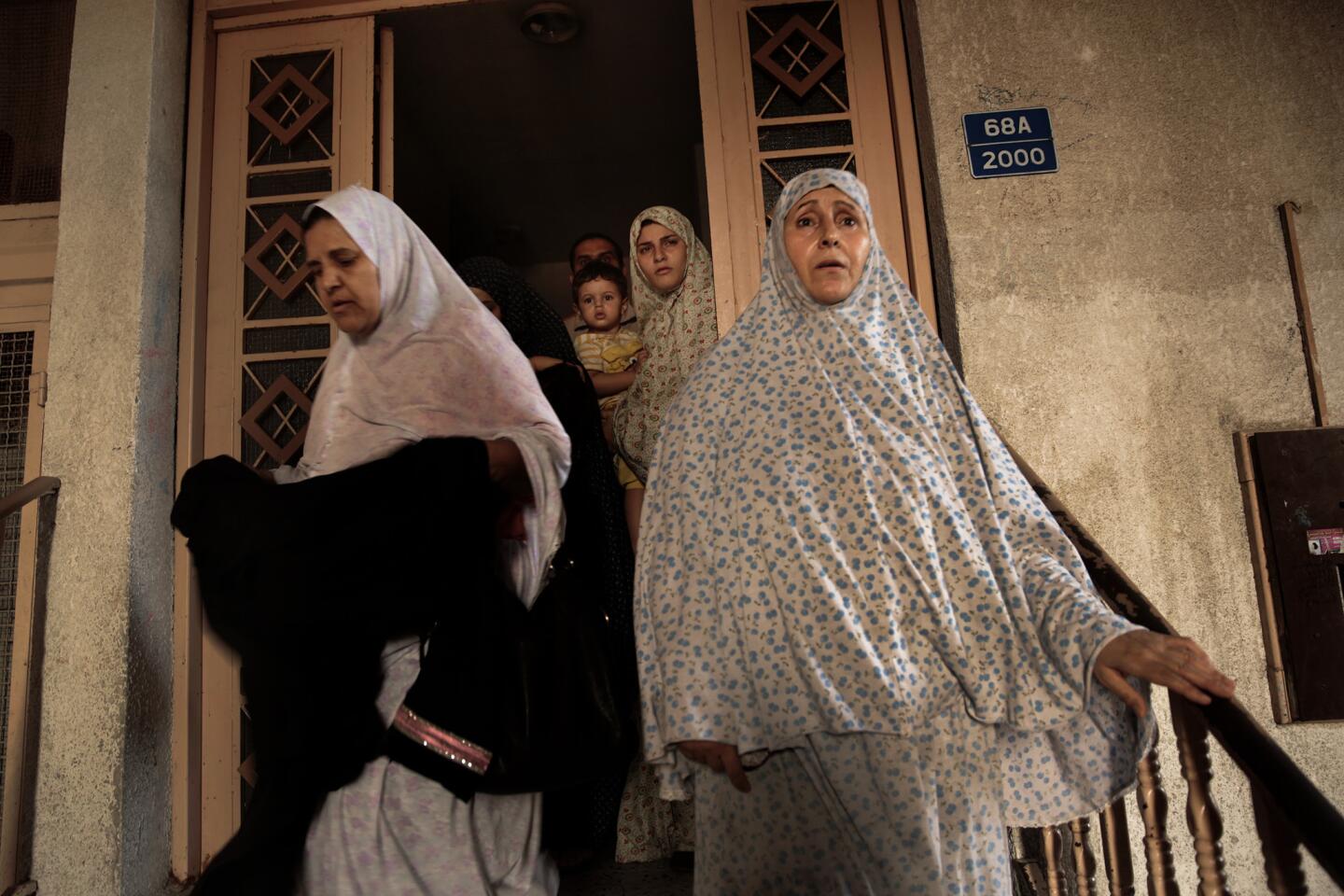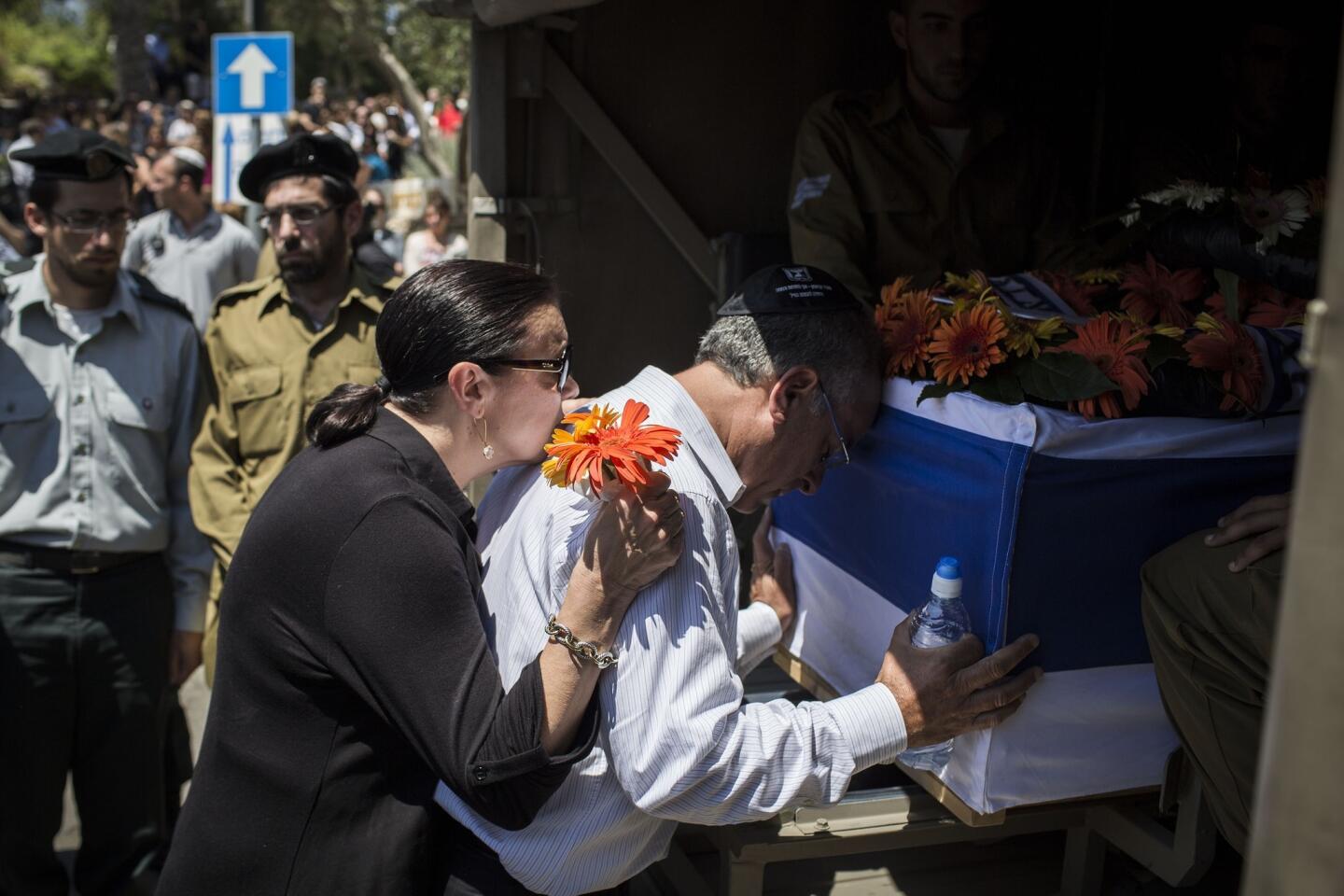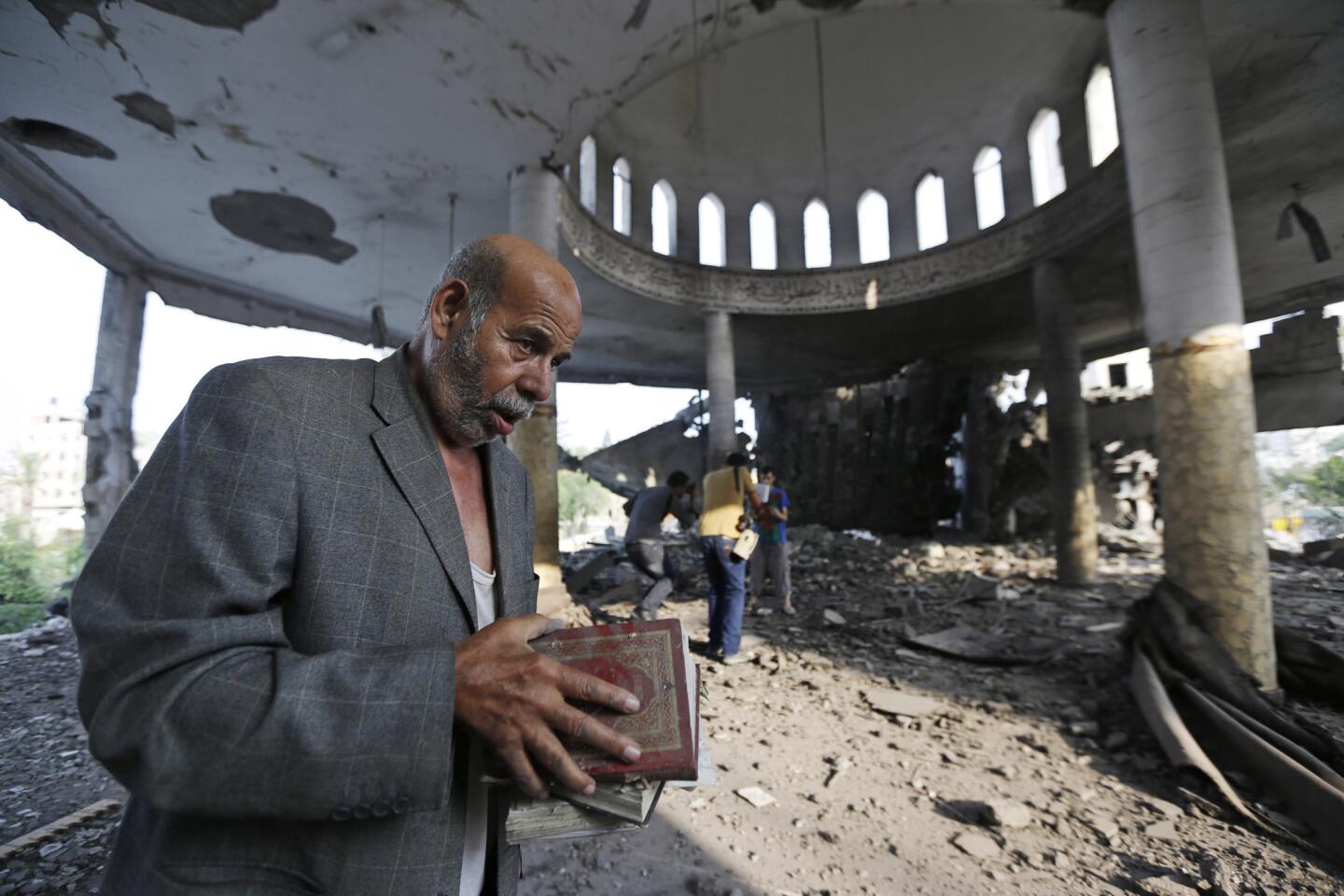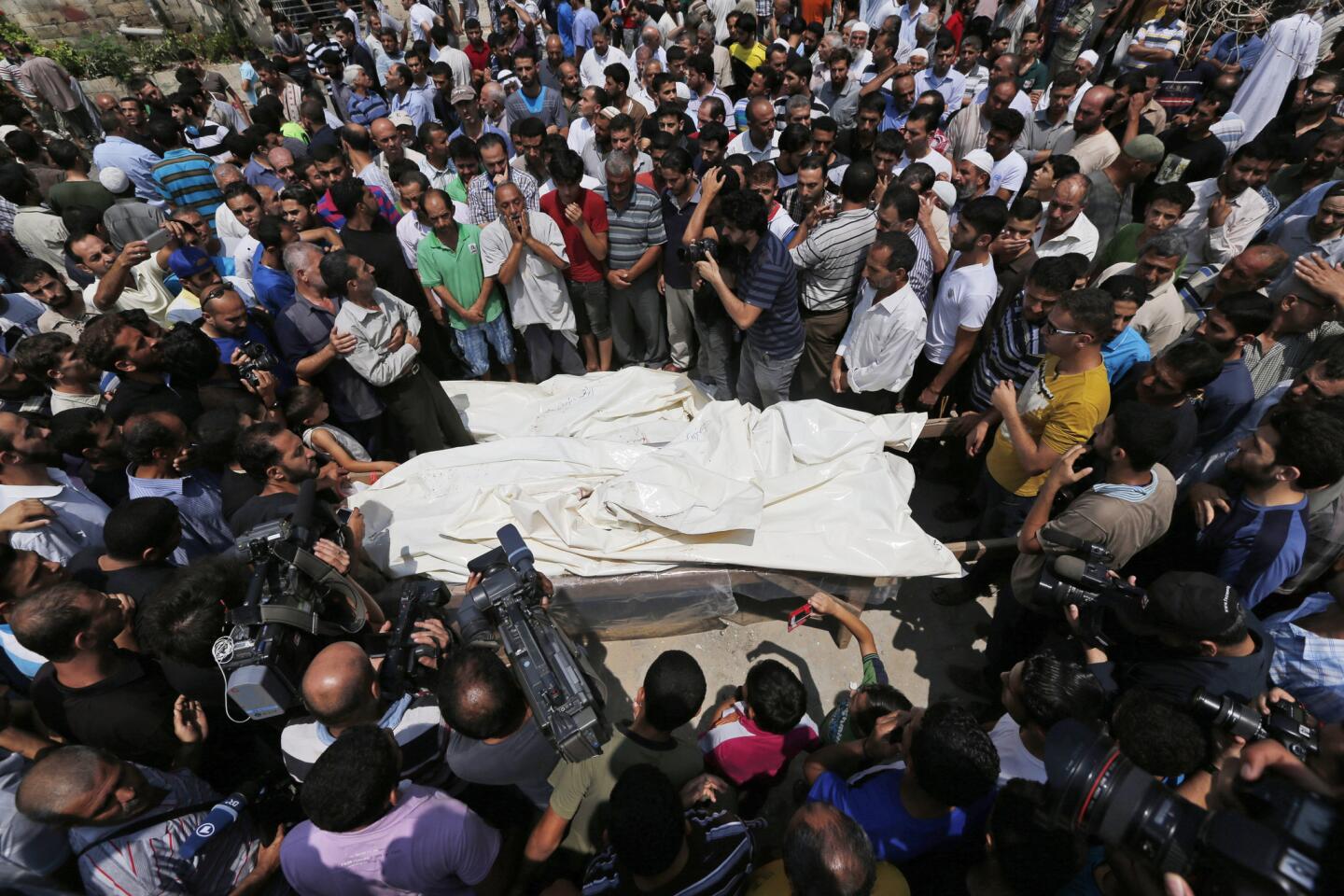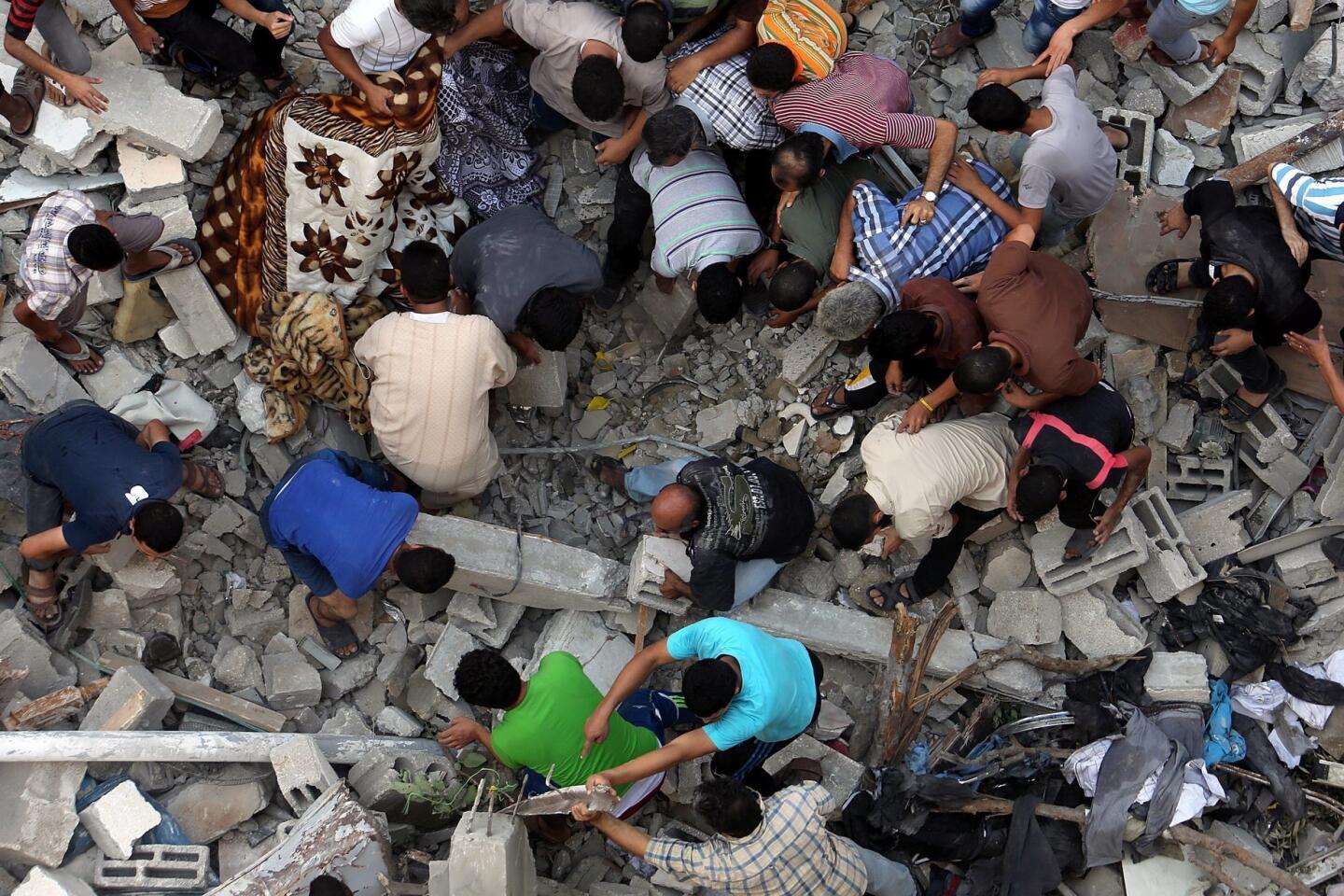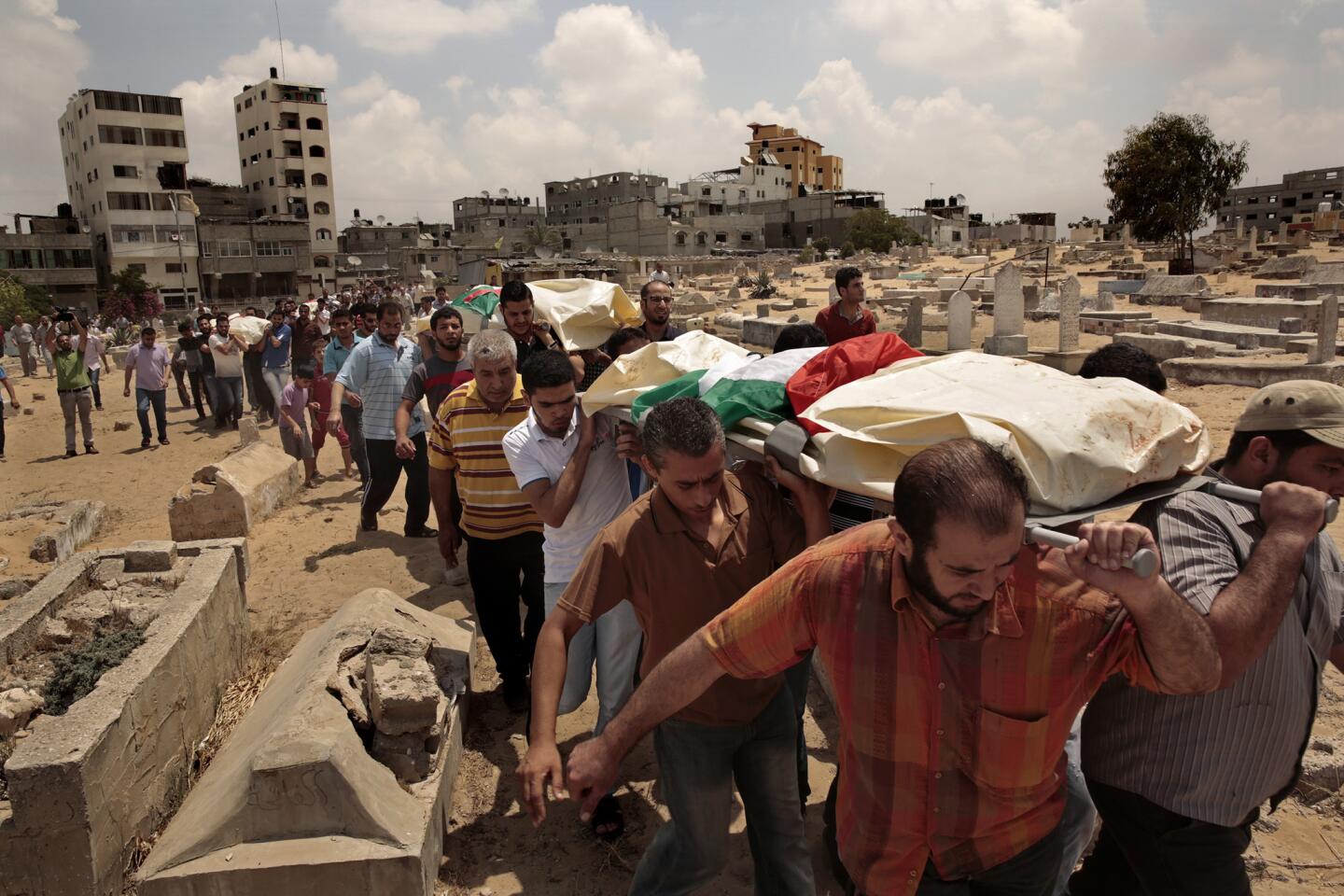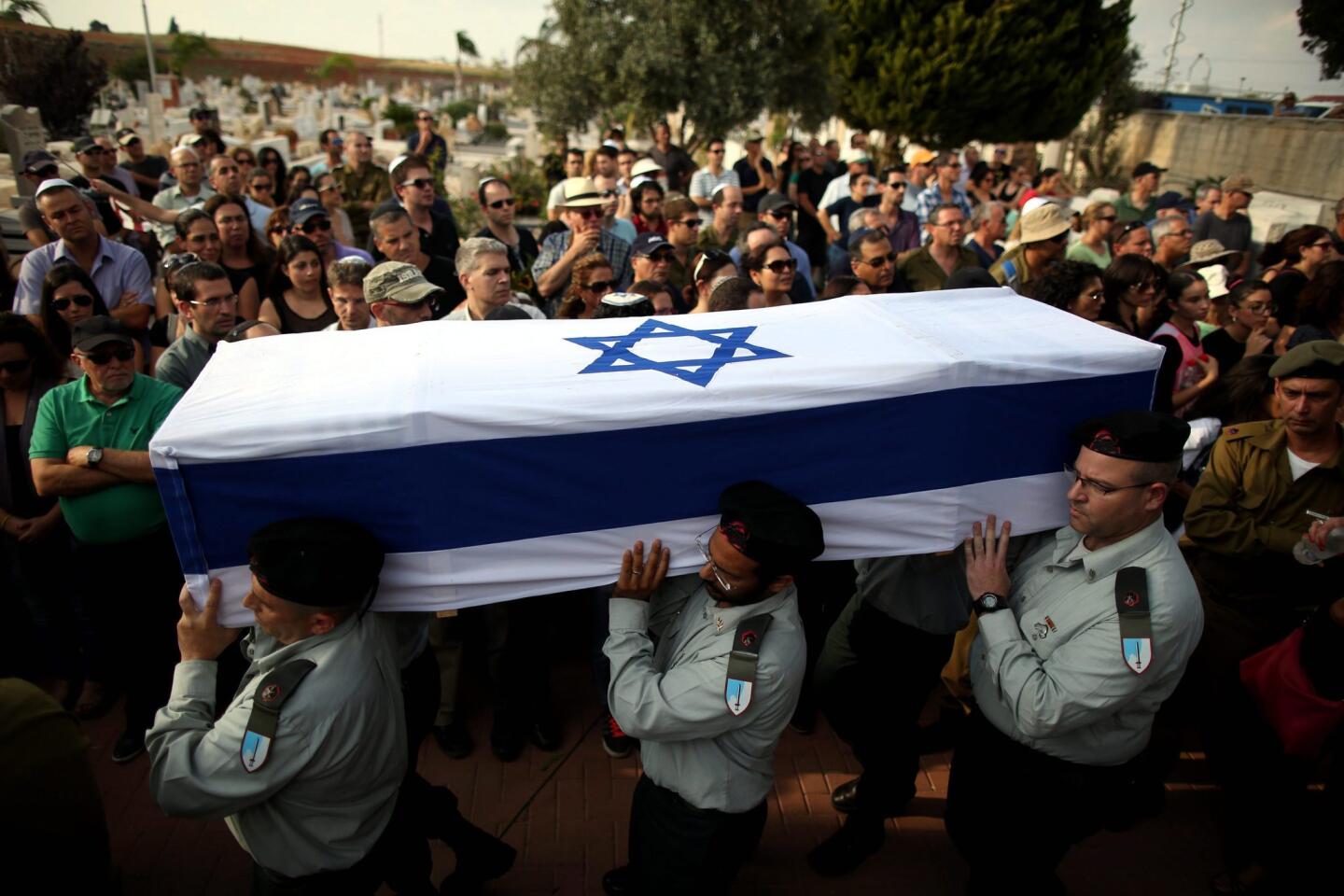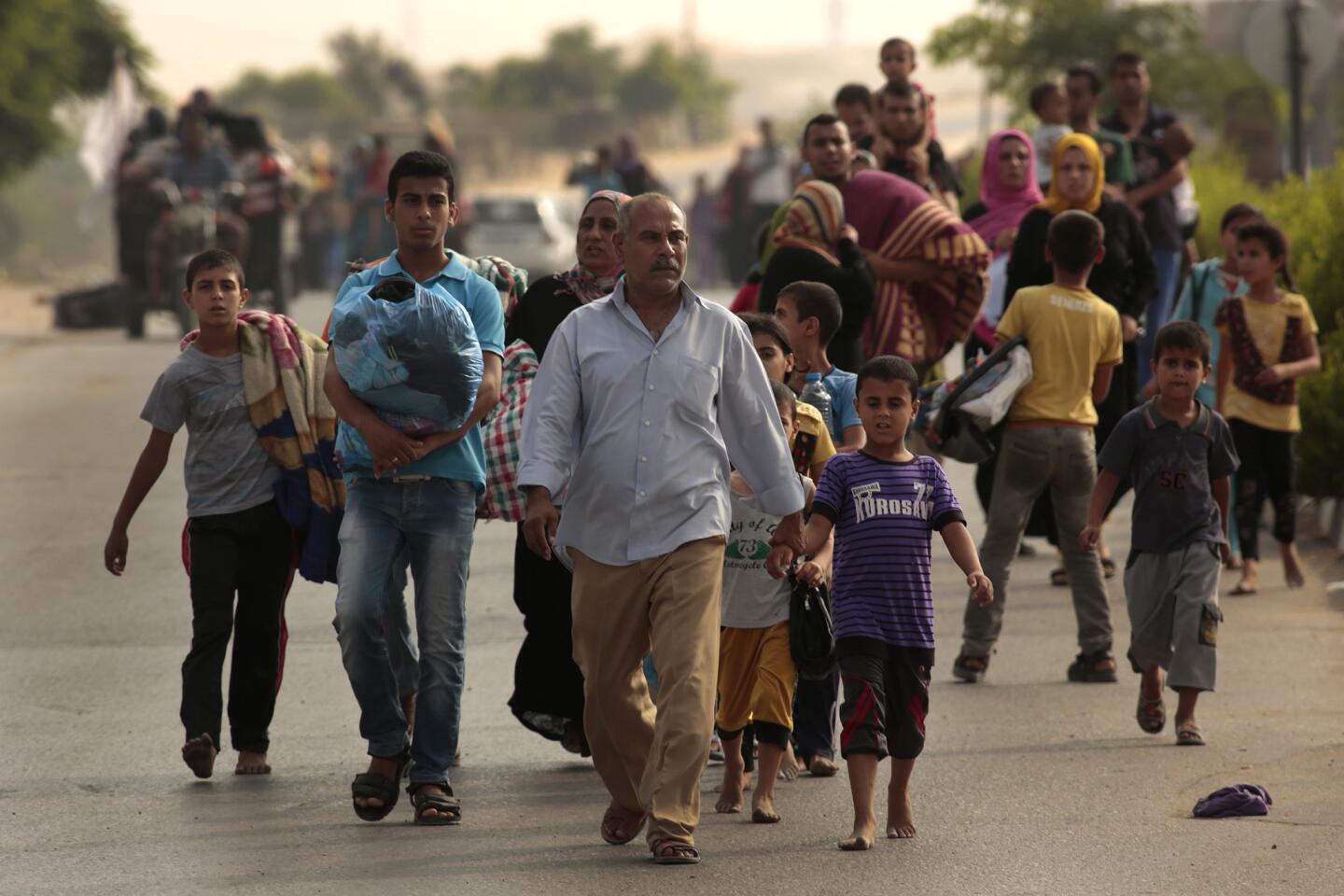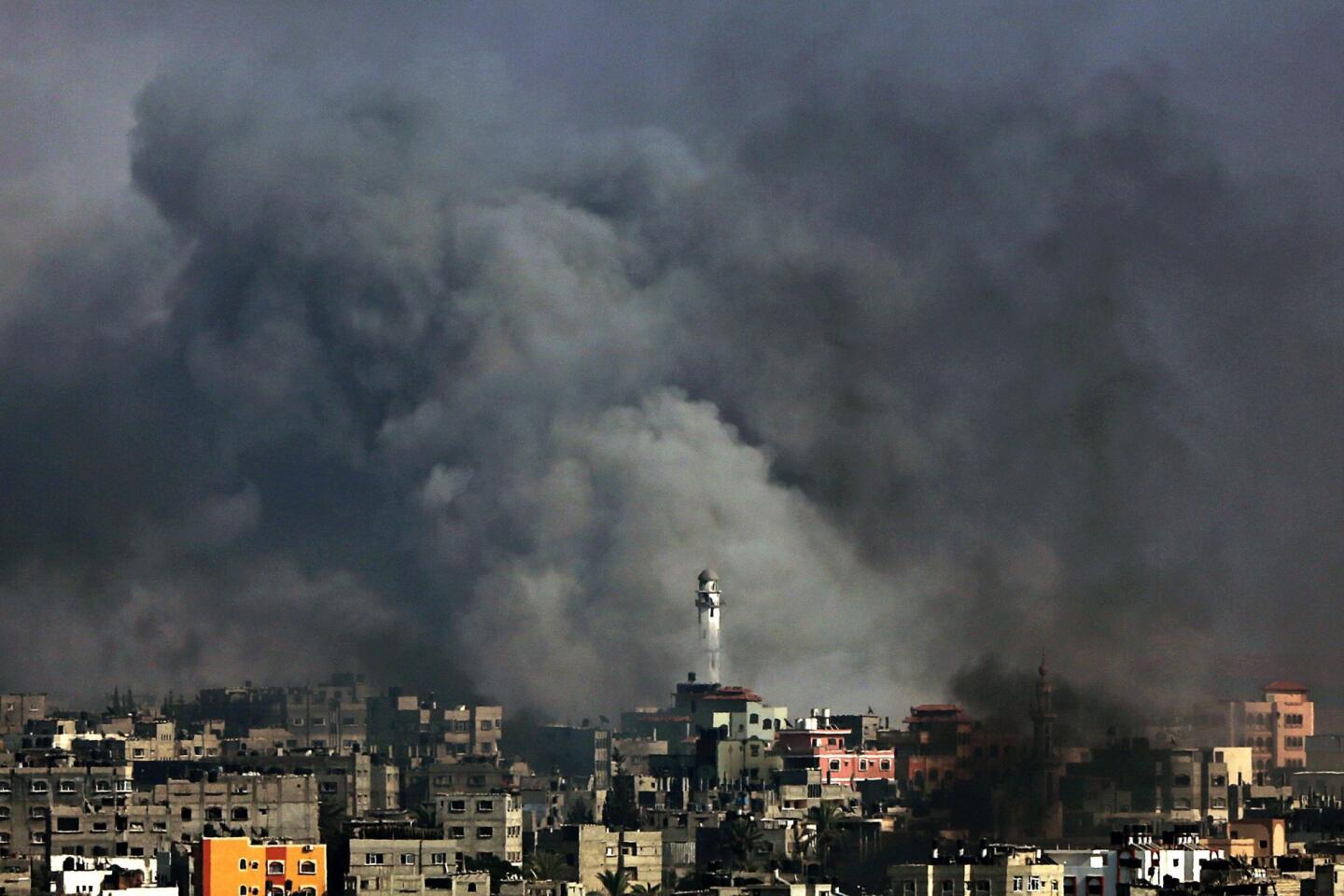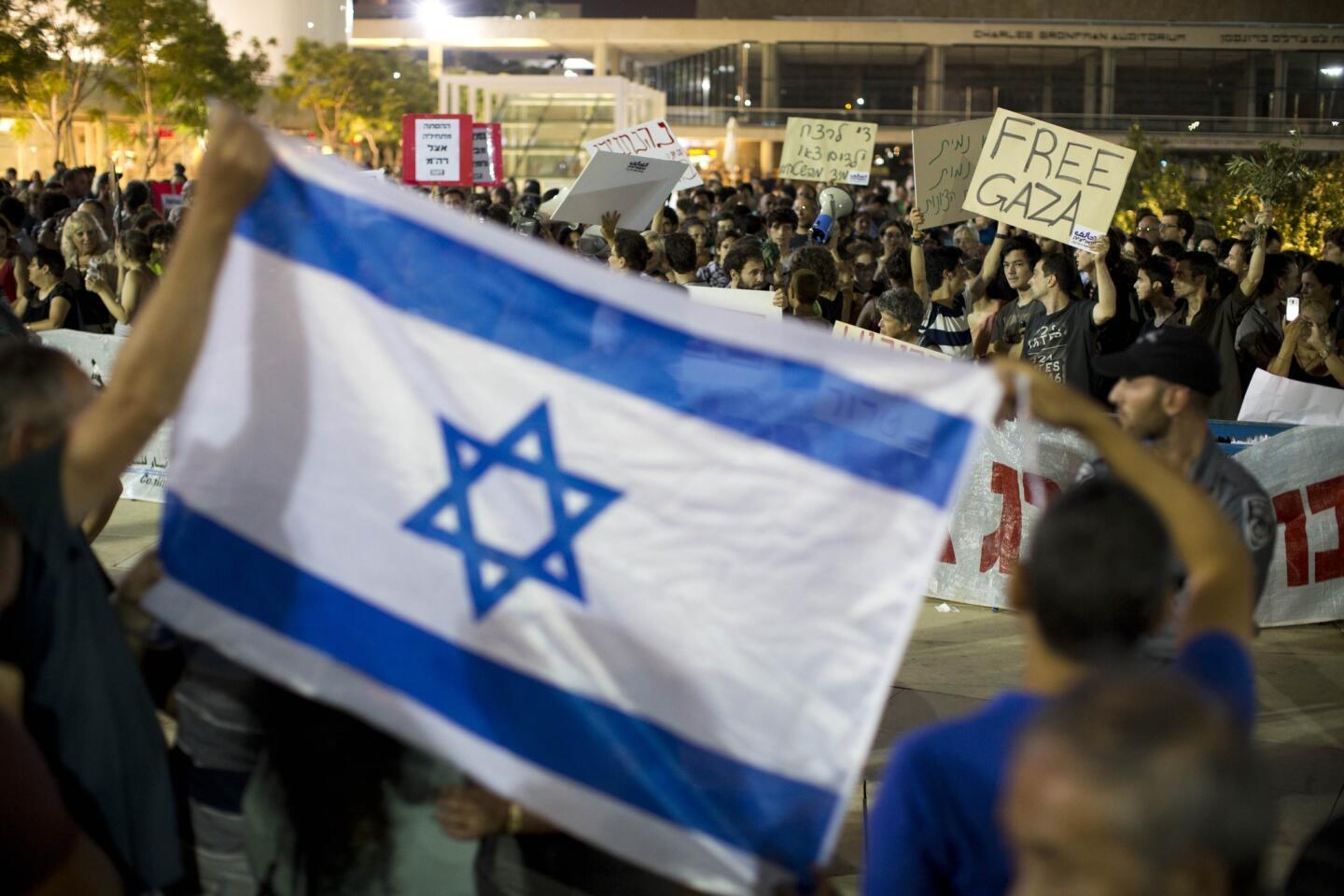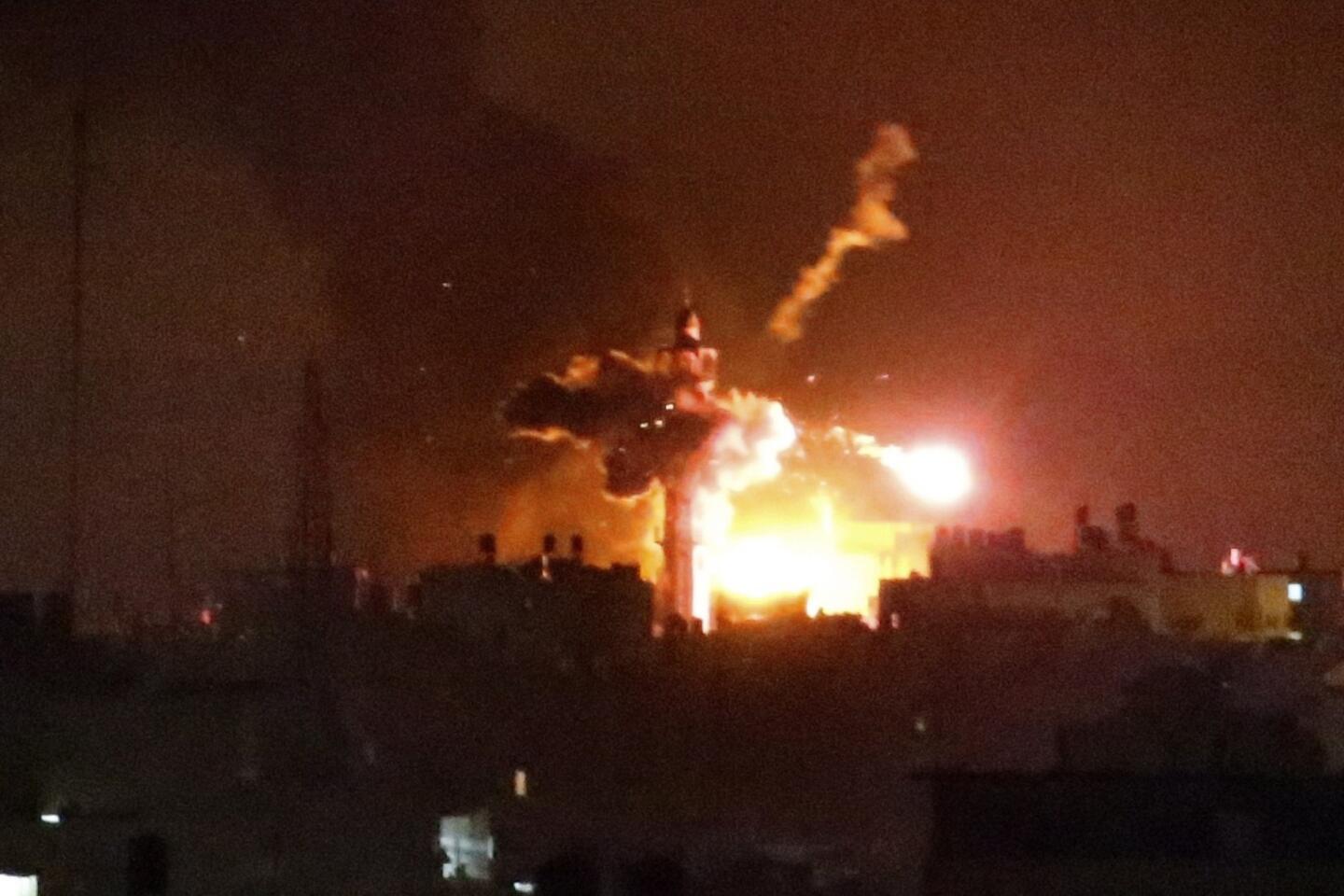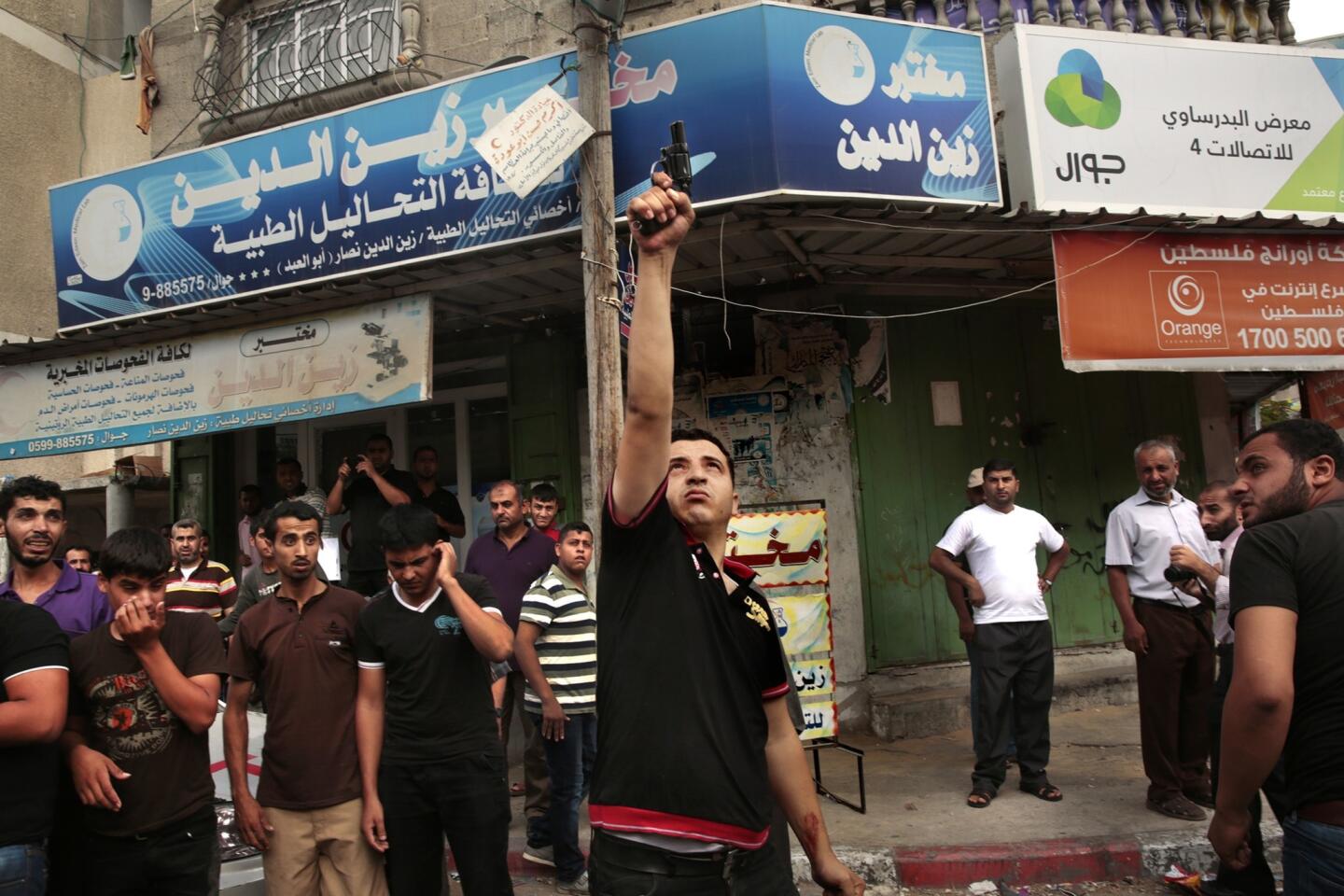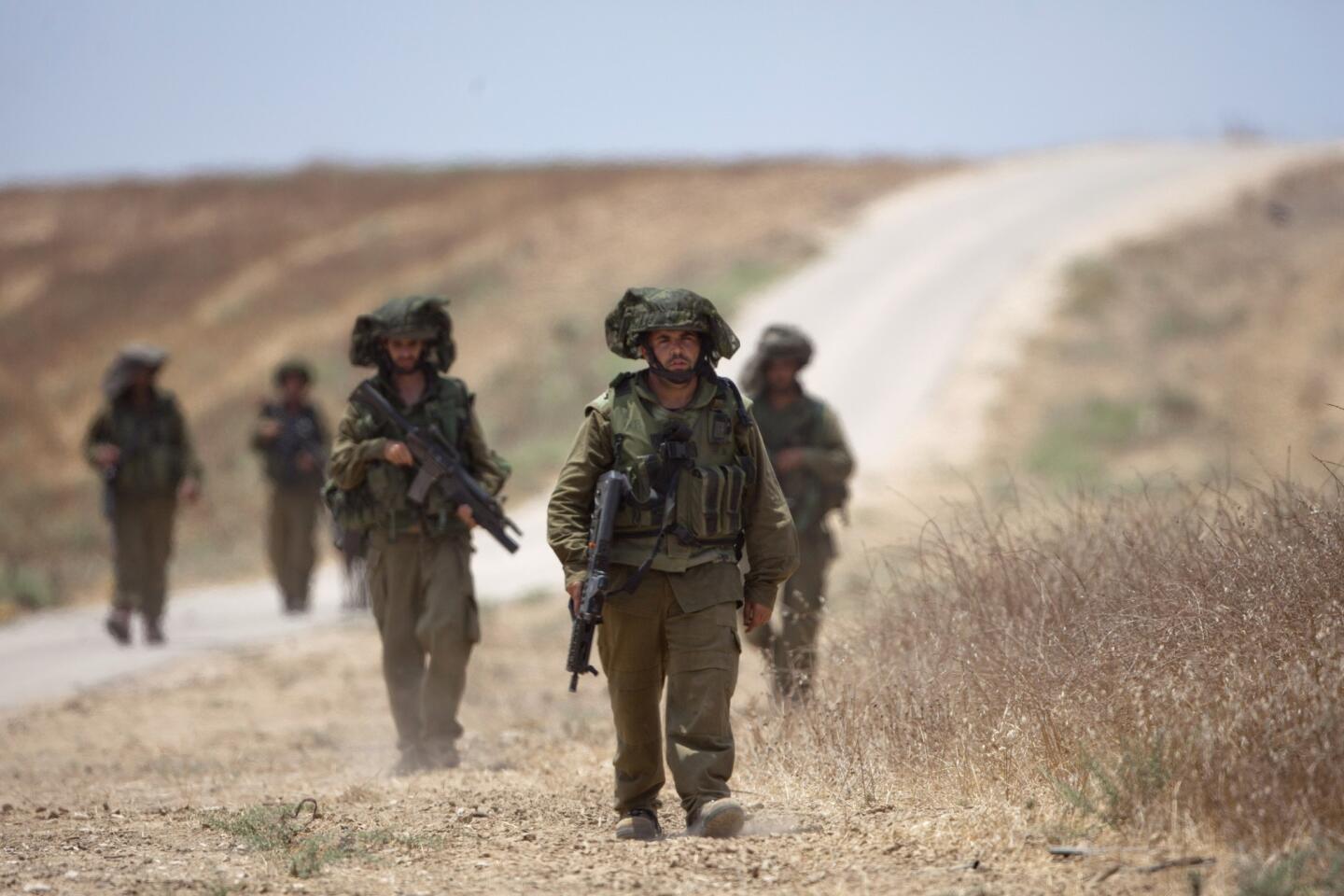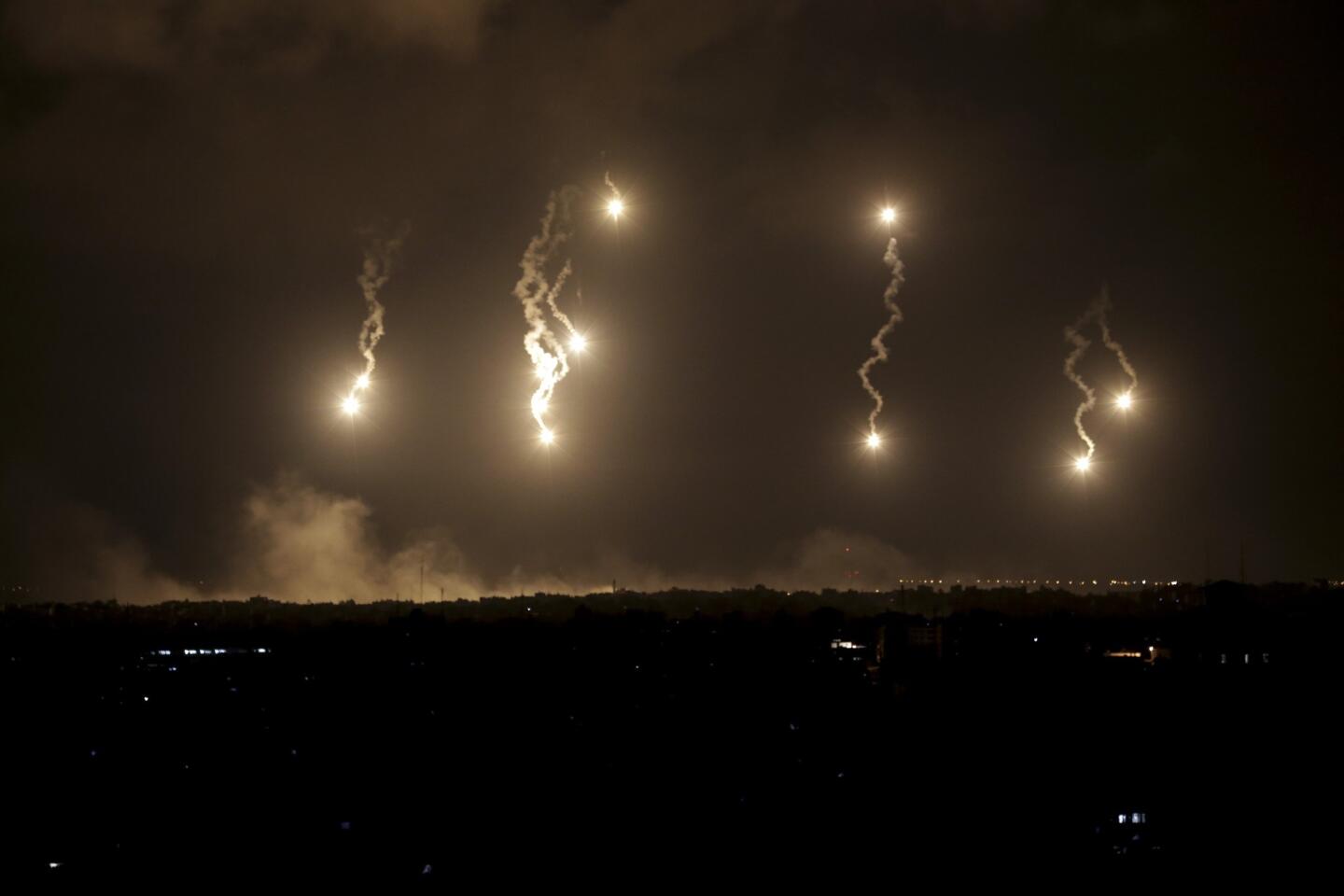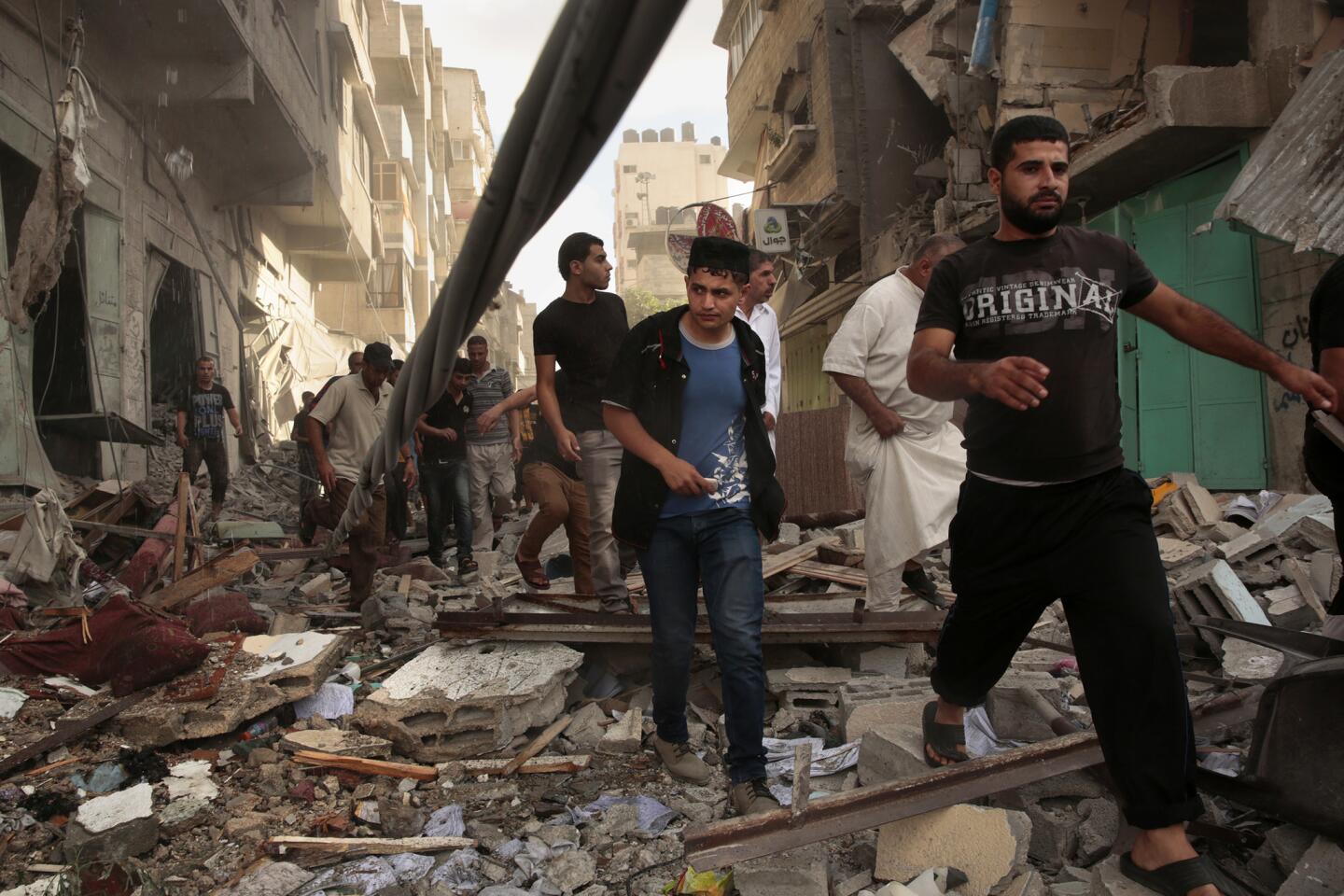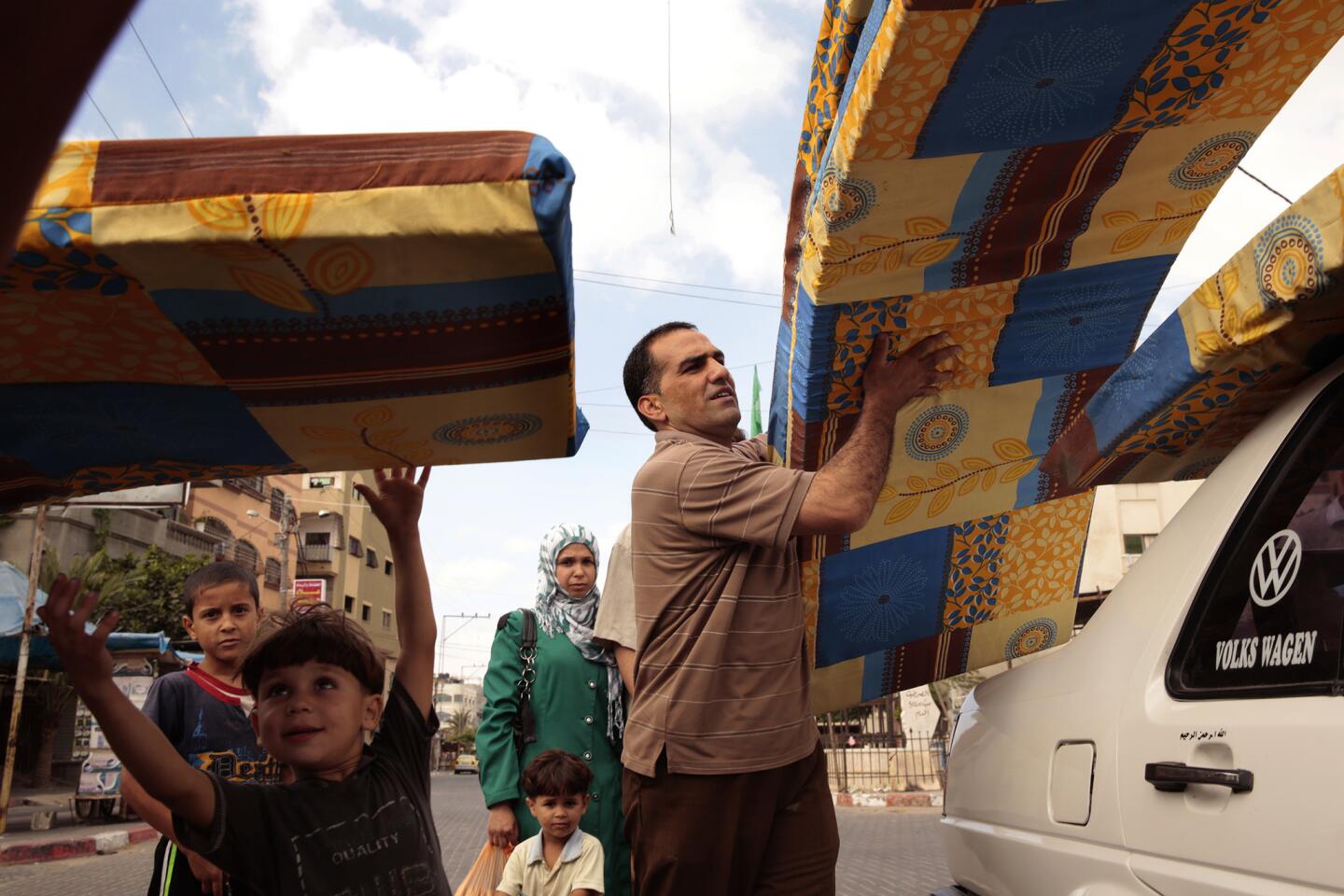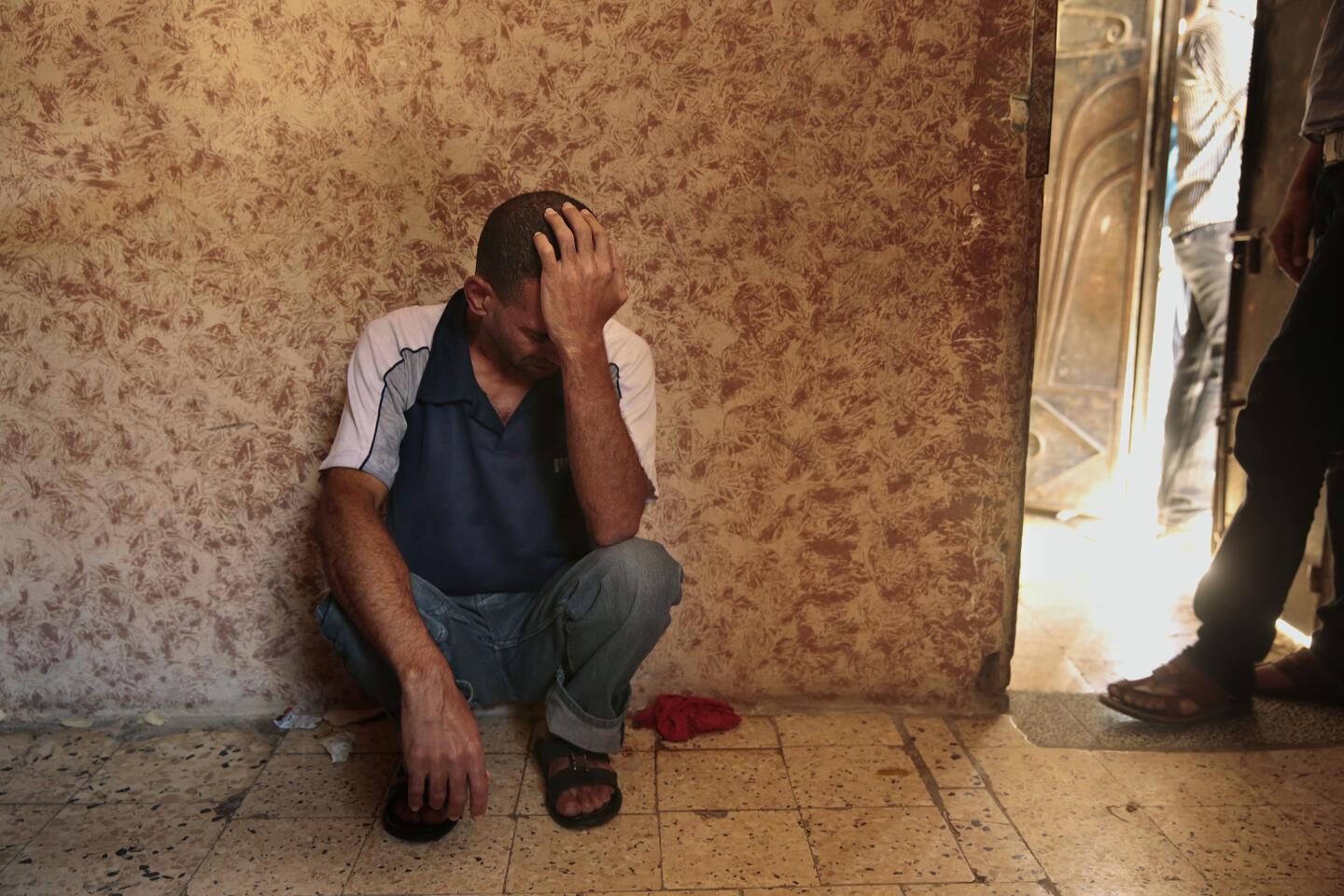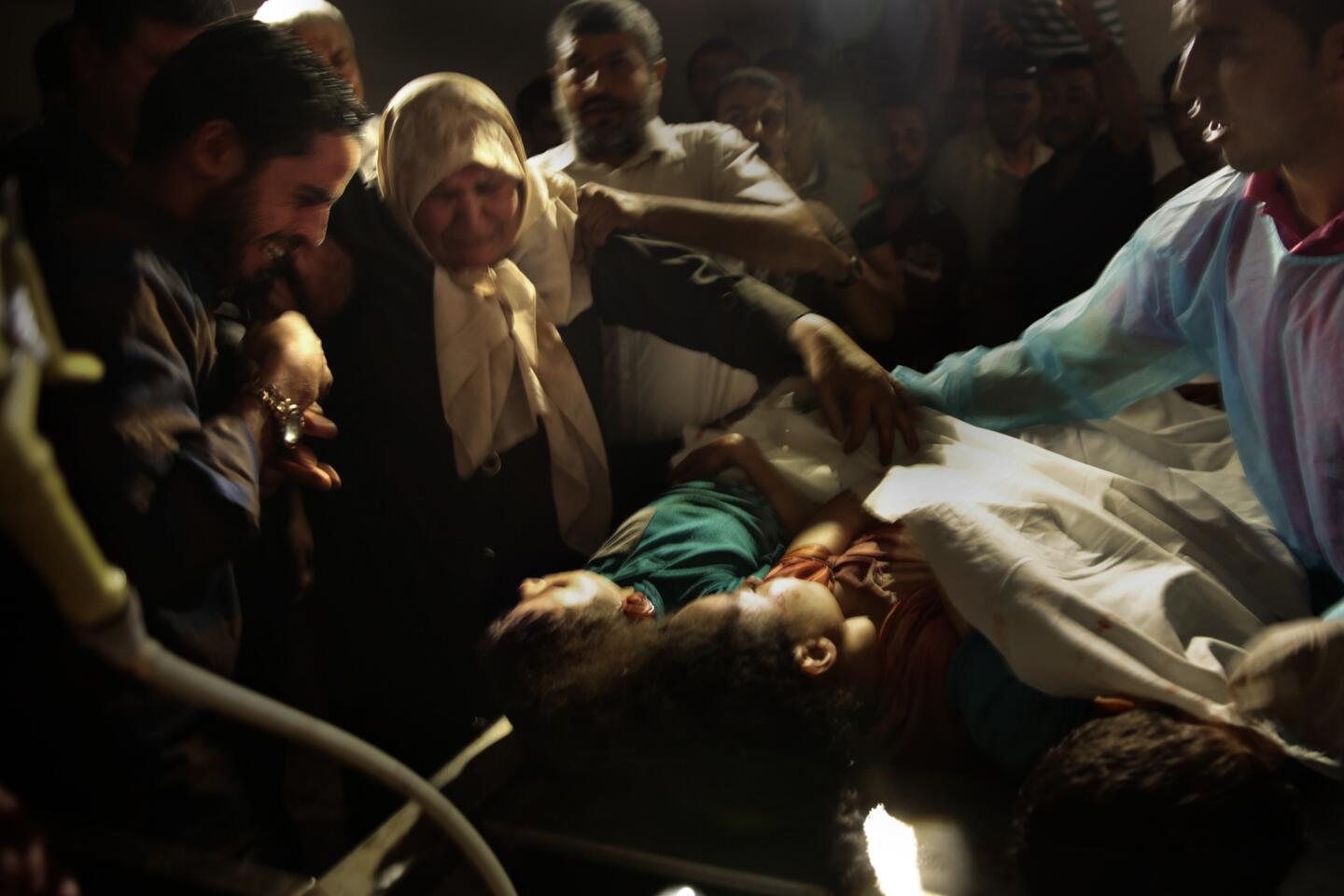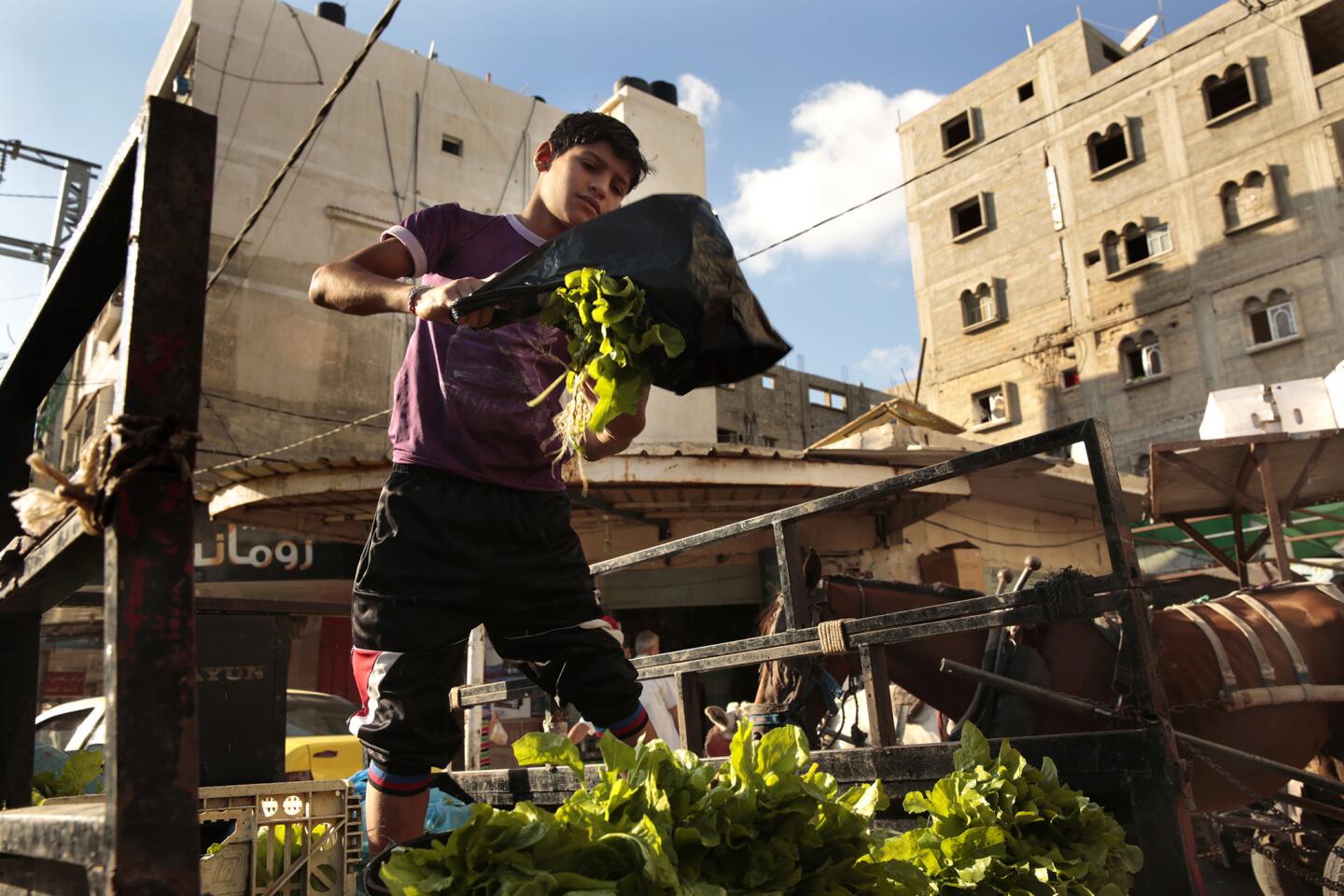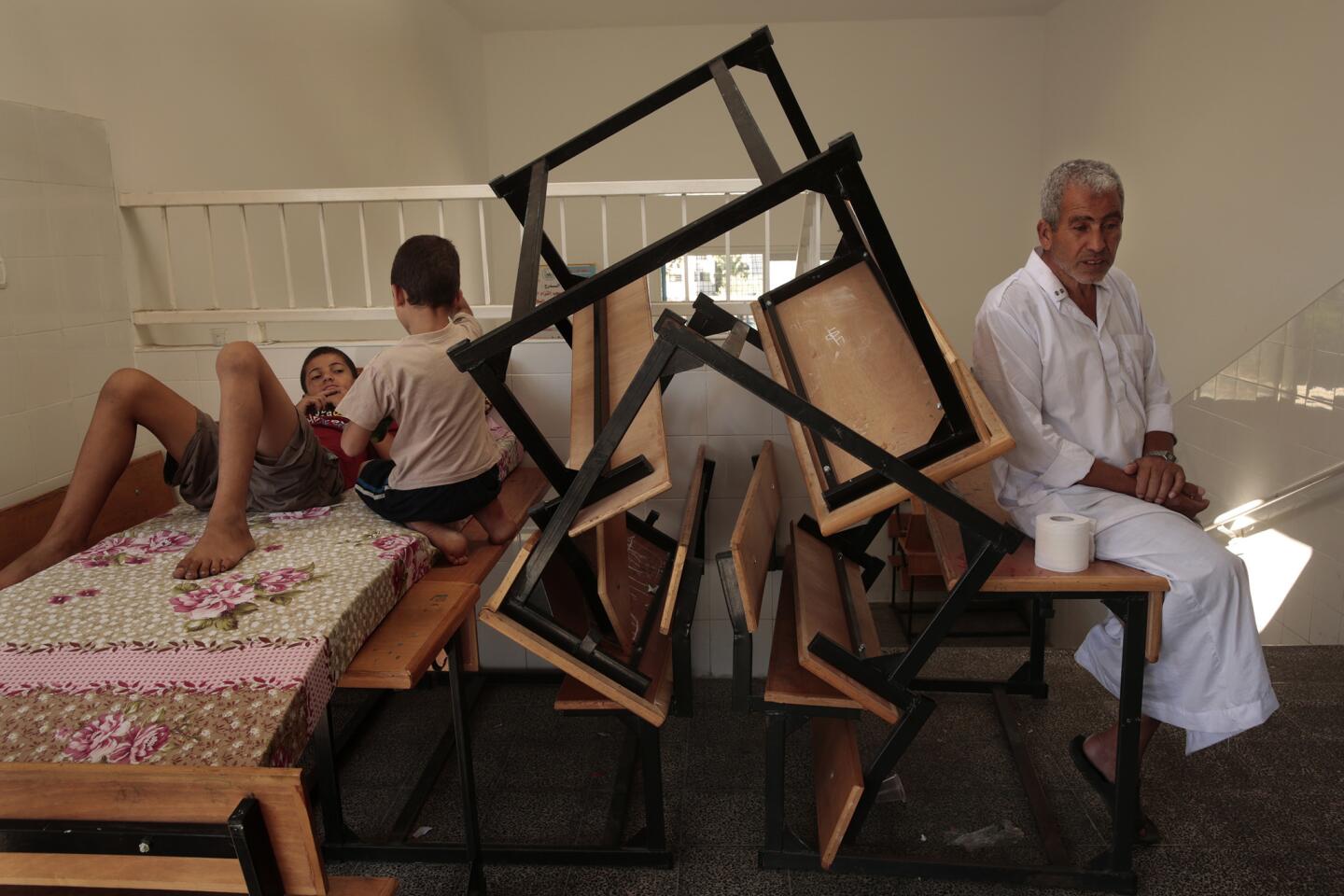Violence resumes in Gaza despite calls for new cease-fire
Hostilities resumed Sunday in the Gaza Strip after Palestinian militants unleashed volleys of rockets at Israel and the Israelis declared an end to a temporary humanitarian truce. Once again, huge explosions reverberated across the coastal enclave and plumes of black smoke stained the horizon.
The fighting, now in its 20th day, has killed more than 1,000 Palestinians, most of them civilians, with at least eight more deaths reported Sunday. At least 43 Israeli soldiers have died in the conflict, representing the country’s largest loss of life in a military operation in nearly a decade. Three civilians have died on the Israeli side.
In a statement, the Israeli government blamed “incessant rocket fire” for scuttling Israel’s unilateral 24-hour extension of Saturday’s daylong cease-fire. During that lull, Palestinians dug about 150 bodies from the rubble of ruined districts and carried away what they could salvage. Many sobbed when they got their first glimpse of destroyed homes.
“I didn’t even know which house was mine,” said 24-year-old Ibrahim Mohammed, who ventured Sunday into the heavily bombed area of Beit Hanoun. “One person’s wardrobe was blown into another person’s house. Everything was mixed up.”
On Sunday afternoon, Hamas called for another 24-hour pause in fighting, beginning at 2 p.m. local time -- which would span the final iftar, or the meal breaking a fast, of the holy month of Ramadan, and the start of the festive Eid al-Fitr. By nightfall, the two sides were firing on one another again, while exchanging verbal barbs. Israeli Prime Minister Benjamin Netanyahu told CNN that Hamas was violating its own cease-fire
Israel’s Iron Dome missile defense system has intercepted many of the rockets fired by Palestinian militants in Gaza, with most others falling in open areas, although a rocket on Sunday injured a woman living in Israel’s south when it crashed through the ceiling of a room where she was sleeping. But Israelis, long accustomed to the rocket threat, have been considerably more alarmed by the revelation that Hamas has constructed a sophisticated network of tunnels under Gaza, some extending under the frontier to Israel and meant for use in terror attacks.
Diplomatic efforts to forge a weeklong cease-fire, with negotiations to be carried out in tandem, have so far failed despite nearly a week of intensive talks. U.S. Secretary of State John F. Kerry arrived in the Egyptian capital last Monday and has spent days shuttling to meetings in the region and then holding a day of talks in Paris, none of which bore fruit.
Hamas spokesman Sami Zuhri said Sunday that the militant group would not accept a truce that allowed Israeli troops to remain inside Gaza, and also demanded that tens of thousands of Palestinians displaced by fighting be allowed to return home.
Palestinian frustration boiled over Sunday in the southern Gaza town of Khan Younis, where the International Committee of the Red Cross said dozens of angry residents broke into the ICRC office and set it on fire. They were apparently angry that the organization could not assist them, said Ran Goldstein, a spokesman for the ICRC in Israel.
In Israel, there was growing resistance to a longer-term cease-fire until the tunnel threat has been dealt with. Israeli troops have destroyed around a dozen underground passages and discovered dozens more beneath Gaza.
“A permanent cease-fire now is the wrong thing,” said Haim Yellin, the mayor of the regional council of Sdot Negev, in Israel’s south, which has borne the brunt of rocket fire and is near the militants’ infiltration tunnels. “We are asking the government to give the army all the time it needs to remove this threat from beneath our feet.”
Israel blames Hamas for building the tunnels in densely populated areas, saying it put Palestinian civilians in harm’s way by doing so.
Special correspondent Sobelman reported from Jerusalem and staff writer Zavis from Gaza City. Staff writer Laura King in Cairo contributed to this report.
More to Read
Sign up for Essential California
The most important California stories and recommendations in your inbox every morning.
You may occasionally receive promotional content from the Los Angeles Times.
